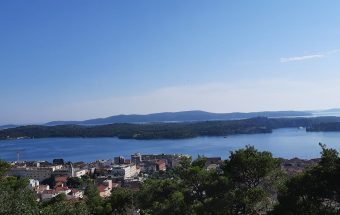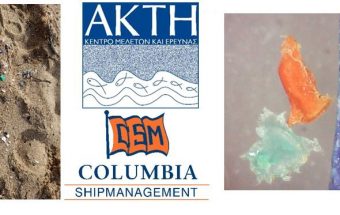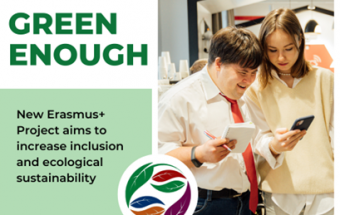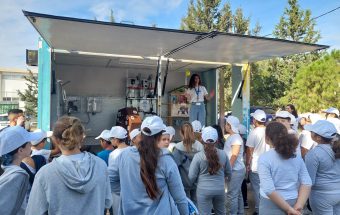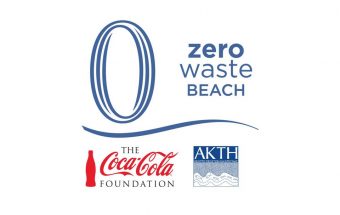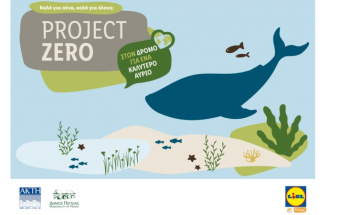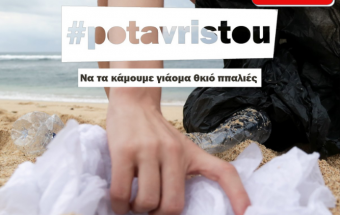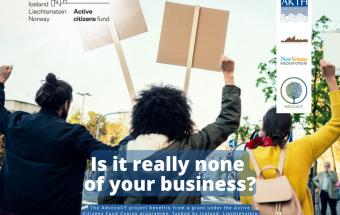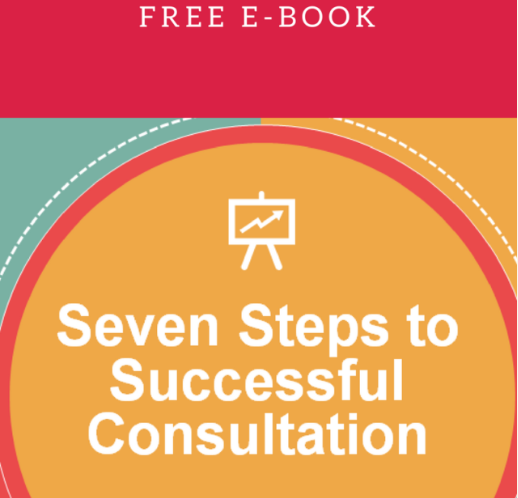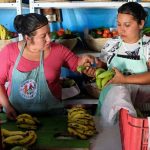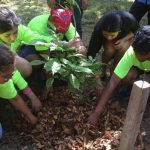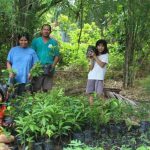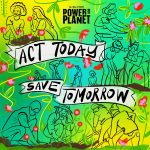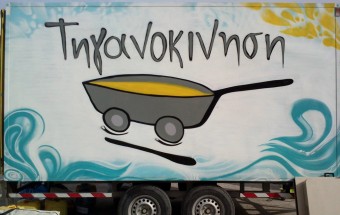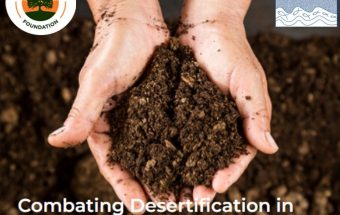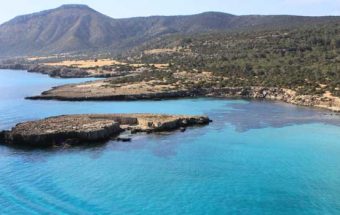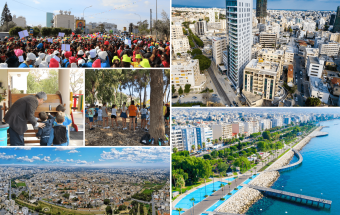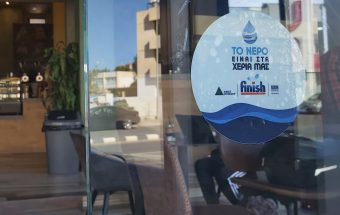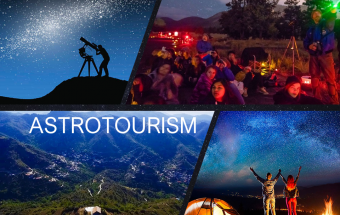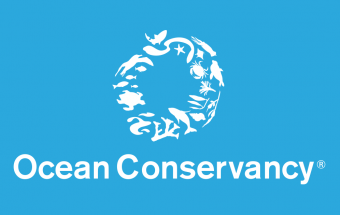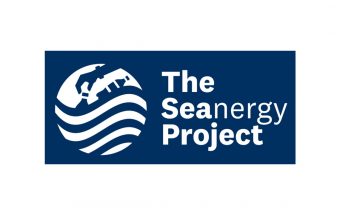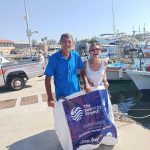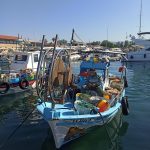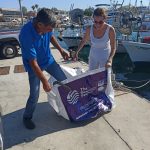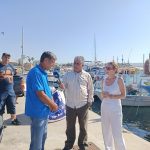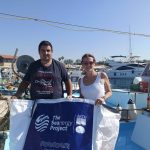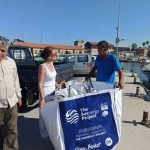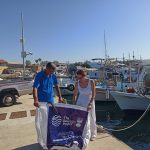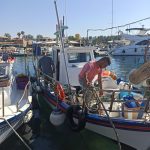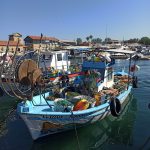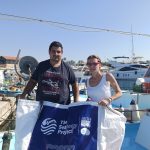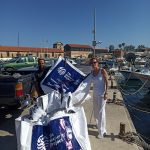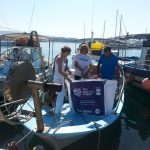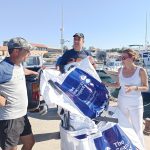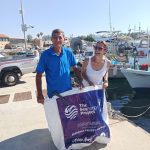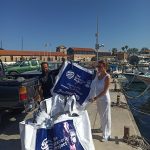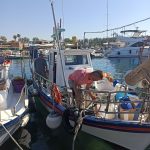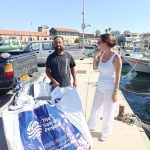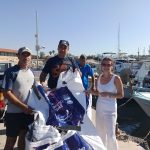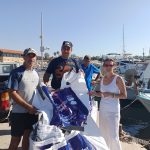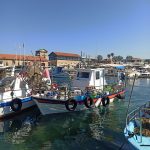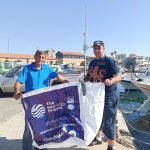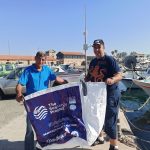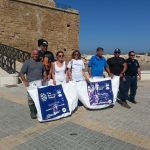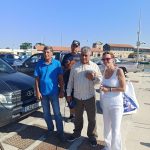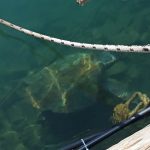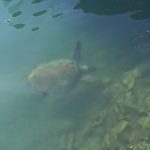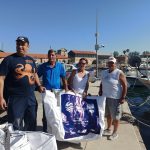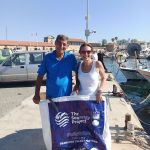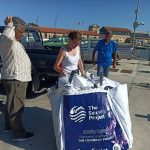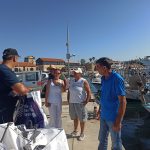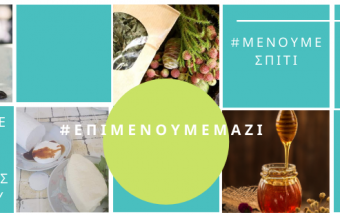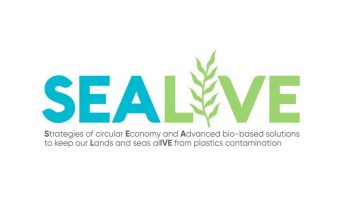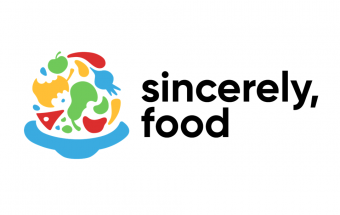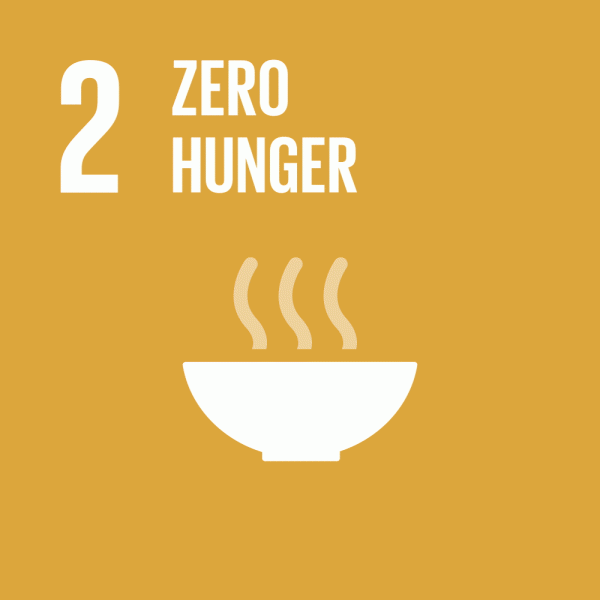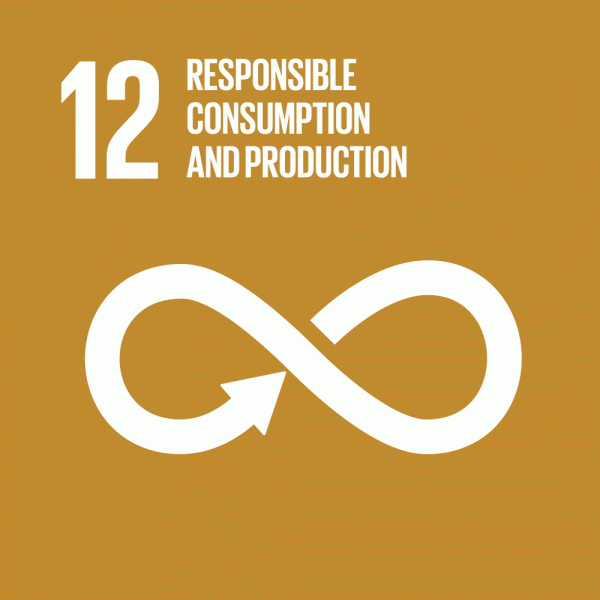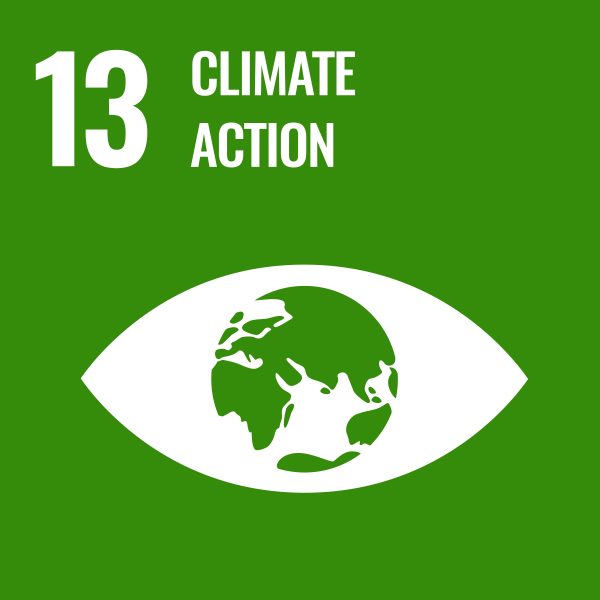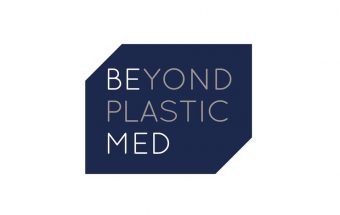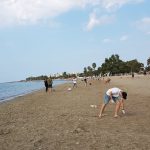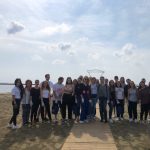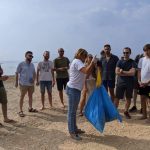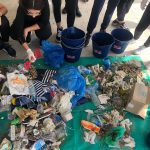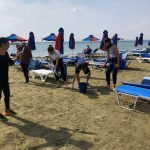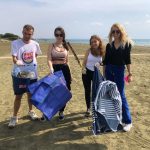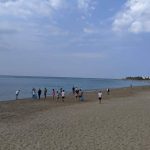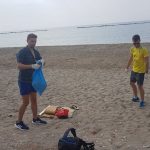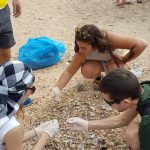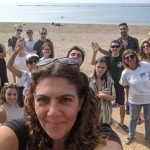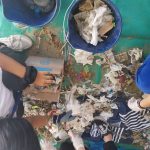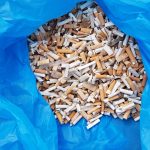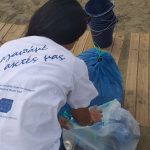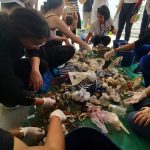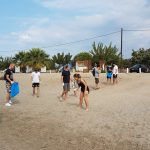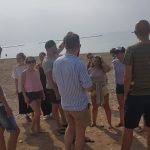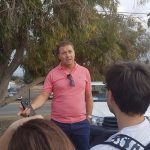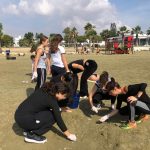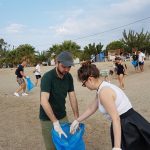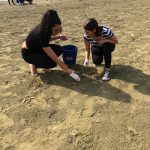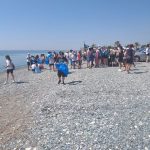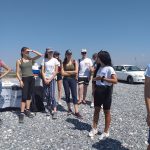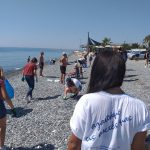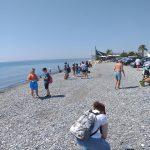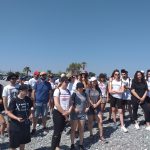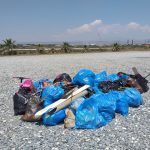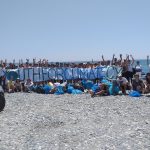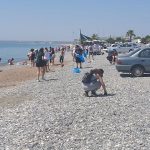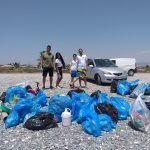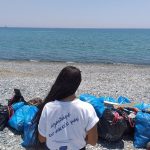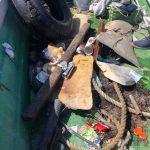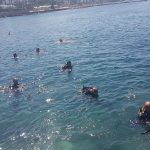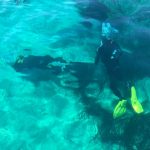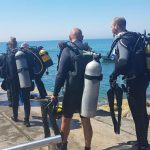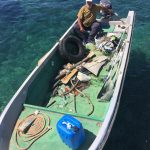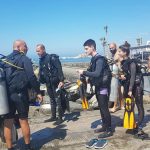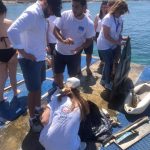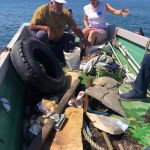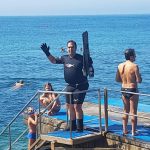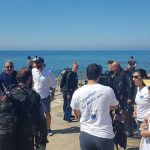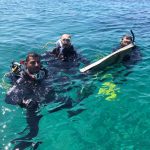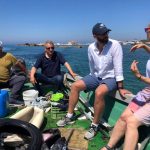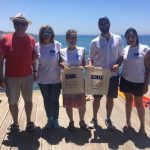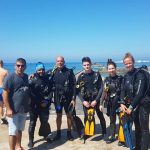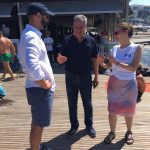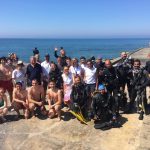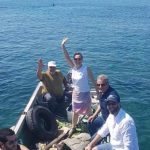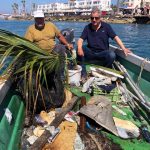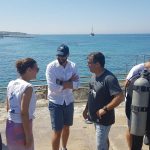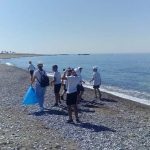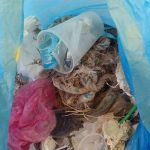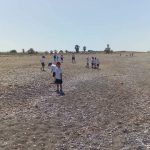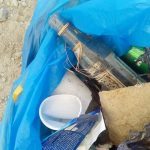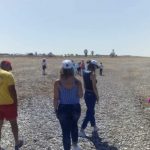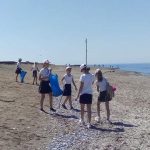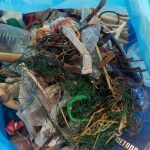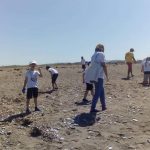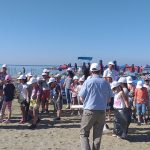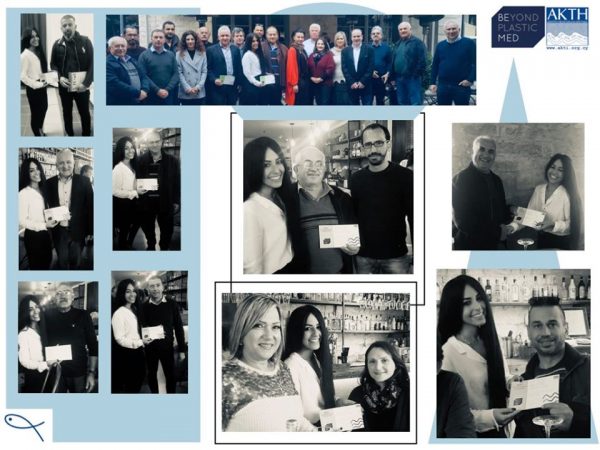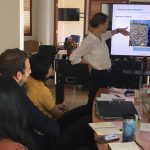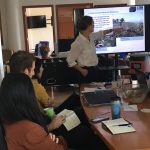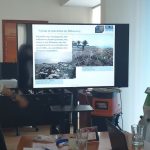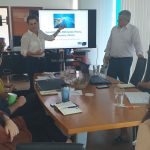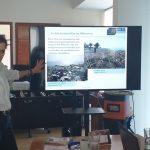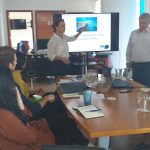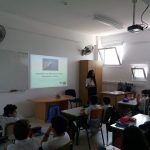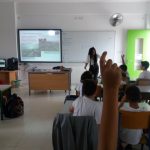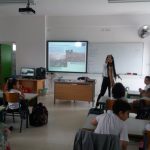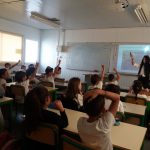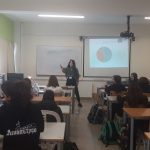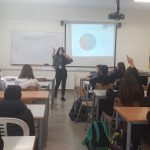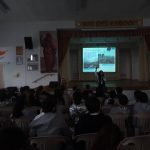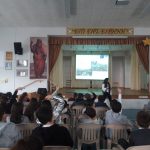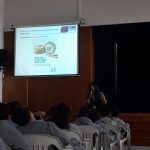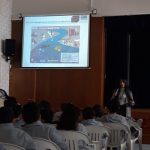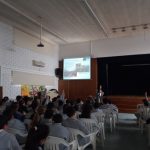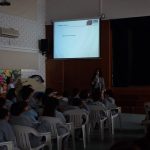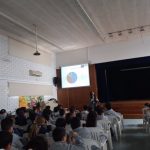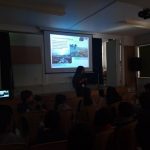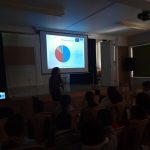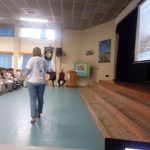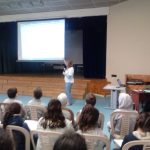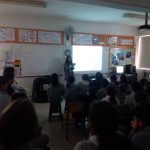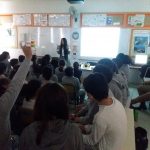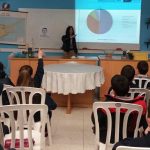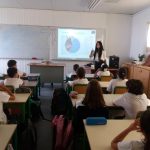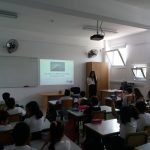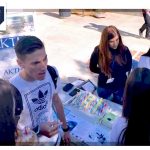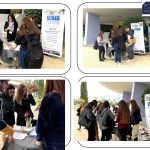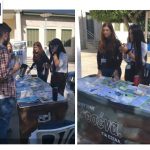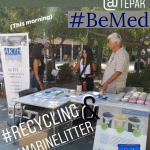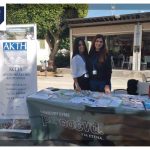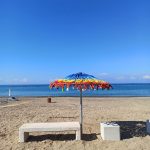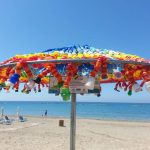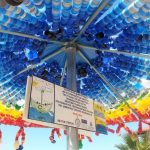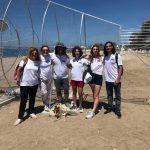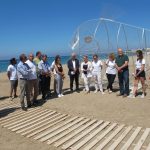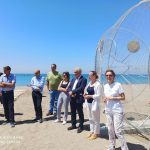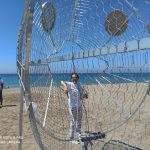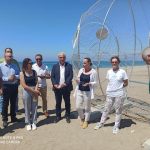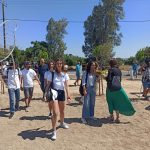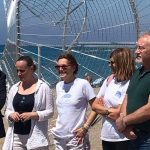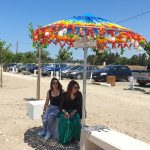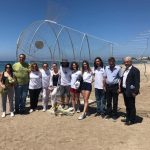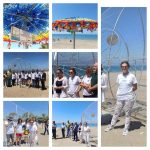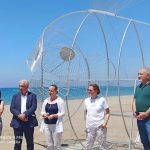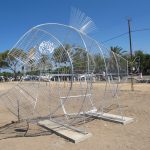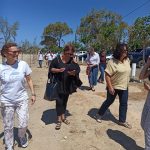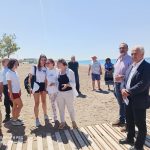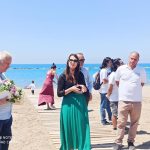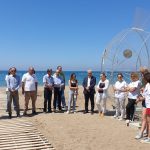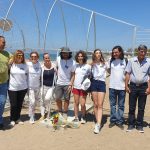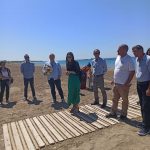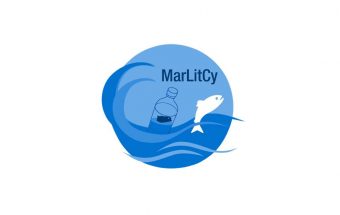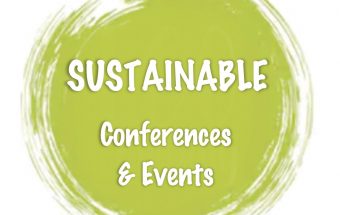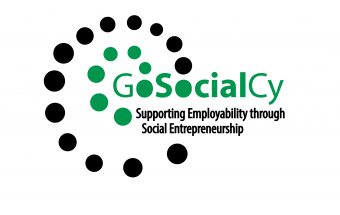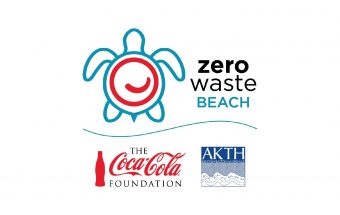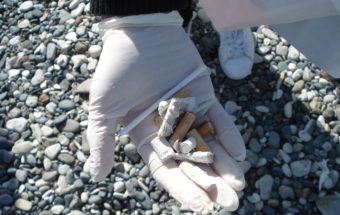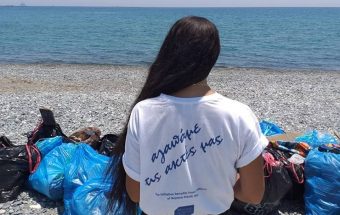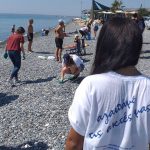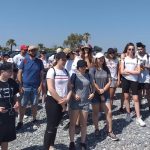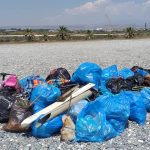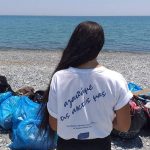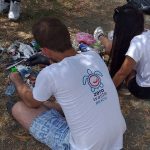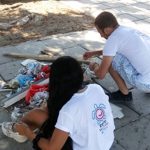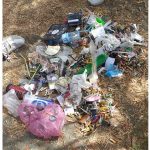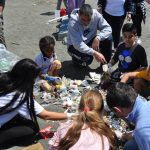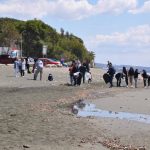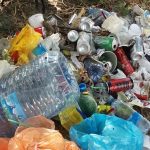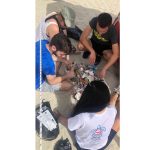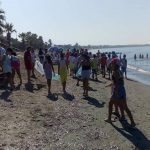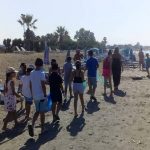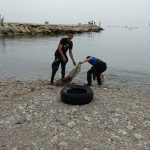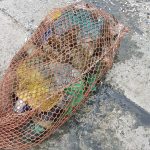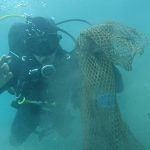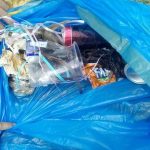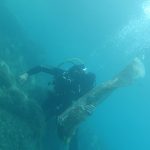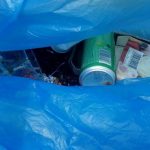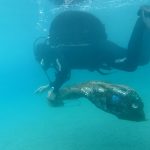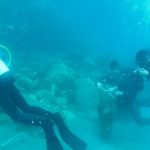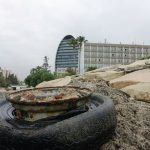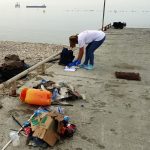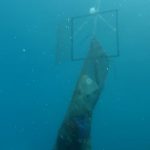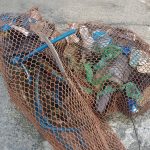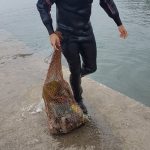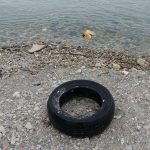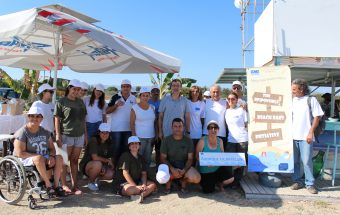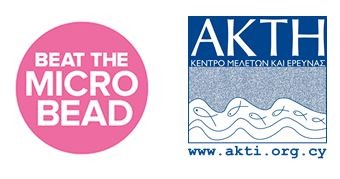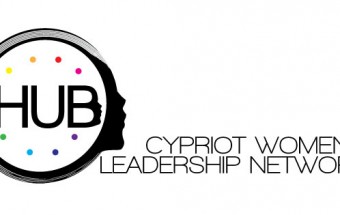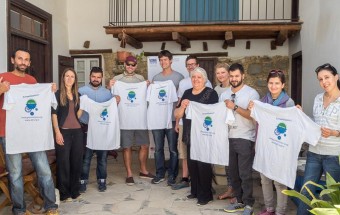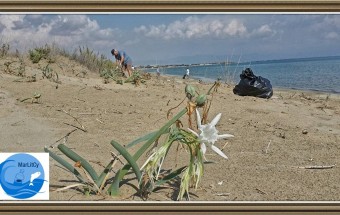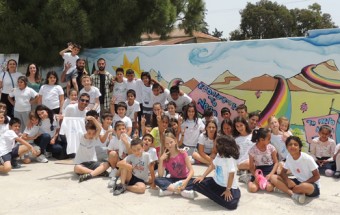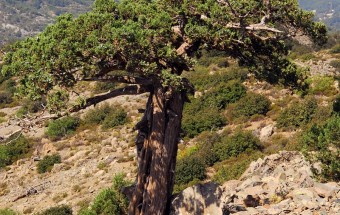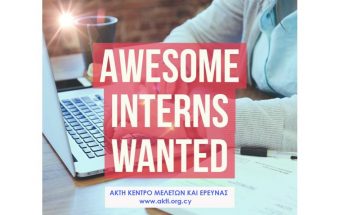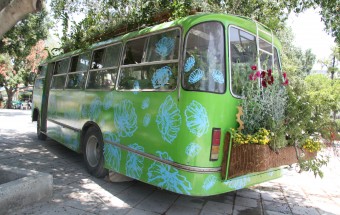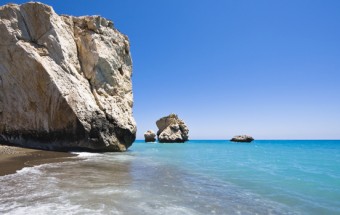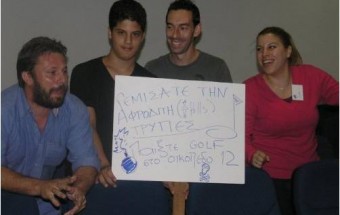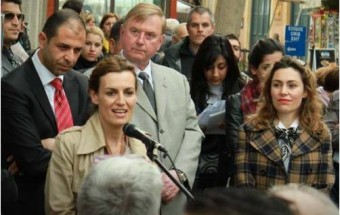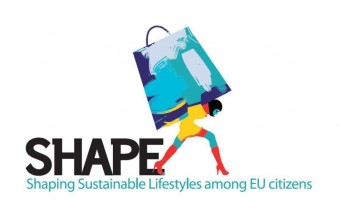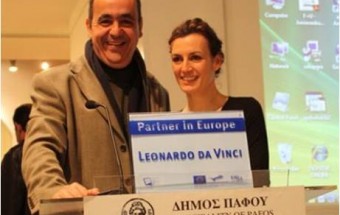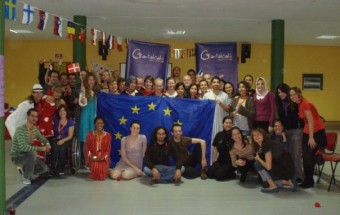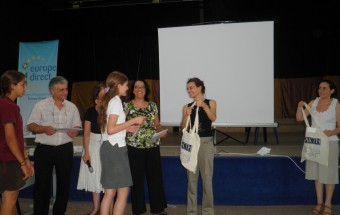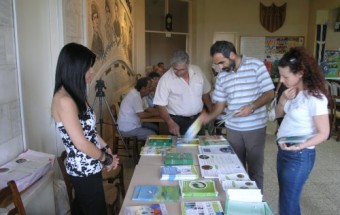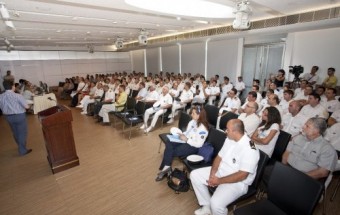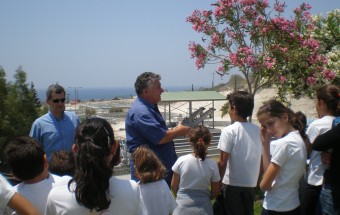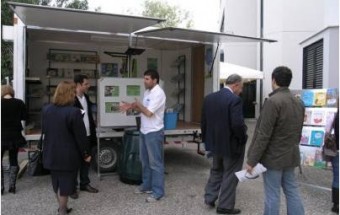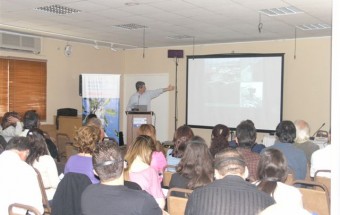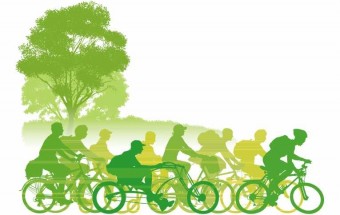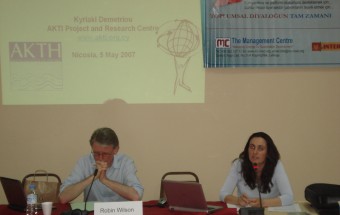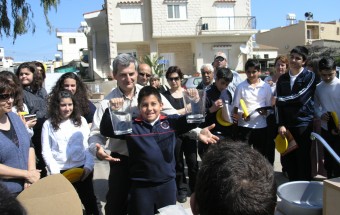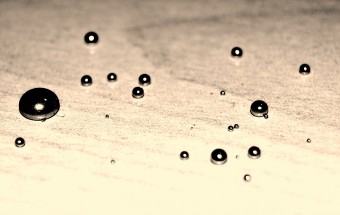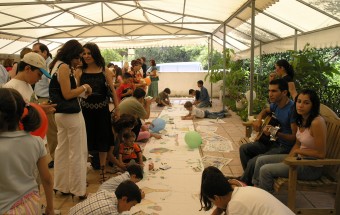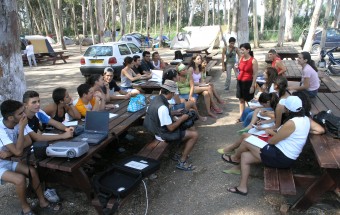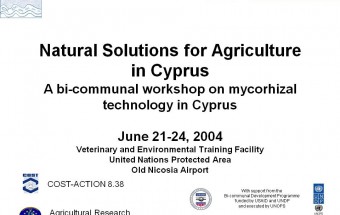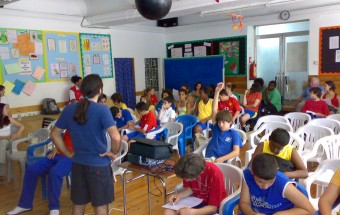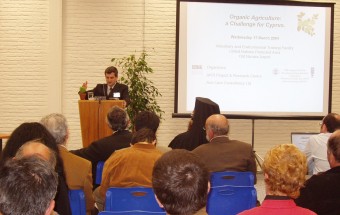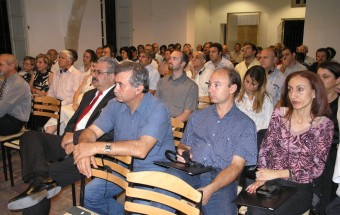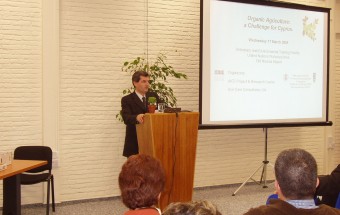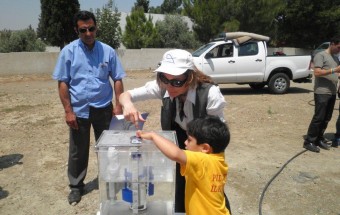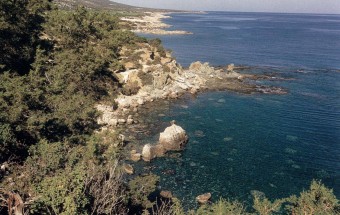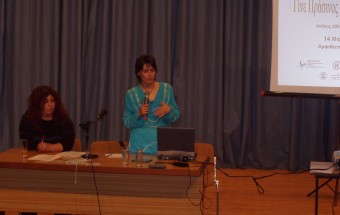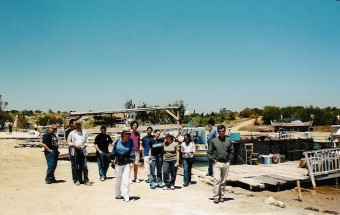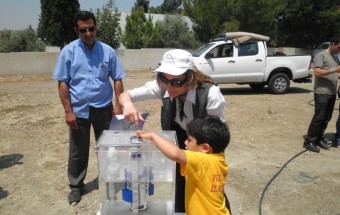Projects
TERRASAFE: TErrestrial Resilience and RestorAtion Strategies for (semi) Arid and Fragile Ecosystems through a multiactor approach
Duration:60 months
Project name: TErrestrial Resilience and RestorAtion Strategies for (semi) Arid and Fragile Ecosystems through a multiactor approach
Project acronym: TERRASAFE
Call: HORIZON-MISS-2023-SOIL-01
Topic: HORIZON-MISS-2023-SOIL-01-04
Type of action: HORIZON Innovation Actions
Granting authority: European Research Executive Agency
Topic of the initiative: TERRASAFE is a pioneering initiative envisaging to empower local communities in southern Europe and northern Africa to successfully face the escalating challenges of desertification through the adoption of nature-based, social and technological innovations. TERRASAFE’s vision will be operationalized in 5 pilot areas that share a high vulnerability to desertification but, simultaneously, represent the 4 main types of desertification (vegetation decline, soil degradation, water scarcity, and depopulation) and strongly contrast in socio–cultural-ecological circumstances. This vision is supported by a transdisciplinary consortium, ranging from universities to SMEs commercially exploiting innovations.
TERRASAFE’s vision is implemented through a multi-actor approach covering all WPs, in particular by setting up 5 partnerships in the 5 pilot areas. In a co-creation process, these partnerships will then (i) define their visions on building desertification resilience and plan their ensuing TERRASAFE work; (ii) map and analyze past and ongoing desertification, identifying hotspots; (iii) evaluate and demonstrate innovations at these hotspots, comparing them with current and traditional/organic practices; (iv) elaborate policy recommendation for the wider uptake of the TERRASAFE certified innovations, both within and beyond the pilot areas, taking into account lessons learnt from past and ongoing policies against desertification; (v) share their TERRASAFE’s experience with the other areas, other desertificationprone communities and the general public. The consortium will support the partnerships by providing not only harmonized frameworks for each activity but also advice on adapting these frameworks to their specific needs. Finally, the SMEs will provide a wide offer of innovations that they will tailor towards the respective desertification hotspots, in close collaboration with the partnerships.
The project is co-financed by the European Union under the Horizon Europe Framework Programme.
Project Coordinator: UAveiro
Project Partners: Wageningen University & Research, NIBIO (Norsk institutt for bioøkonomi), Università degli Studi della Basilicata – Unibas, The Cyprus Institute(CYI), Institute for European Environmental Policy (IEEP), Consejo Superior de Investigaciones Científicas (CSIC), AKTI Project and Research Centre, Institut des Régions Arides (IRA), Institutul Național de Cercetare-Dezvoltare în Silvicultură “Marin Drăcea”, The Mediterranean Sustainable Development Foundation (MEDES), Isotech Ltd, IO-dit AB- Agrodit, AgroBiogel GmbH, Ibero Massa Florestal, S.A., EDAFOTEC Soluciones Basadas en la Naturaleza Sl, University of York, University of Gloucestershire
Contact info
The Cyprus Institute: Dr. Christos Zoumides c.zoumides@cyi.ac.cy
AKTI Project and Research Center: Ms. Dimitra Petsa akti@akti.org.cy
ISOTECH LTD: Dr. Michalis Loizidis info@isotech.com.cy
Follow the project on Social Media:
RESisles: Resilient Euro-Mediterranean Islands: Democratic Participation for Informed and Responsible Decisions on Climate and the Environment
Duration: 18 months
Project Title: RESisles: Resilient Euro-Mediterranean Islands: Democratic Participation for Informed and Responsible Decisions on Climate and the Environment
Project number: 101146782
Project name: Resilient Euro-Mediterranean Islands: Democratic Participation for Informed and Responsible Decisions on Climate and the Environment
Project acronym: RESIsles
Granting authority: European Education and Culture Executive Agency
Topic of the initiative: Euro-Mediterranean islands face economic and social challenges that are related to limited land resources, limited diversification in economic activities, and reduced inhabitant mobility. They are also particularly vulnerable to the effects of climate change and environmental degradation. The European Green Deal and the Blue Economy strategy aim at building a more resilient future for Europe, so it is imperative that actions and policies implemented are inclusive, considering the needs of all European territories and people, especially the most vulnerable ones. The RESIsles project will promote and facilitate civic participation on the islands of Cyprus, Malta and Crete, three of the most populated and vulnerable Mediterranean islands, in democratic processes concerning climate change and the environment. The project will directly involve a diverse range of citizens from different backgrounds and genders, with a focus the most vulnerable groups to climate change: youth, women, and those in rural or remote areas. Through interactive presentations at schools,
“train-the-trainer” educator workshops, video competitions and award ceremonies, co-creation cafés, participation in youth festivals and organization or rural festivals, and knowledge transfer events, the project will directly engage over 1650 people. The project’s awareness raising, communication and dissemination activities on traditional and online media will reach an additional 6 million people.
The RESIsles comprehensive approach will create a greater understanding of the EU policy-making process and provide citizens with the tools to practically engage in European, national and local democratic participation processes concerning climate change and the environment. In so doing, the RESIsles project will promote democratic participation through debating the future of Europe (Priority 1) and will engage citizens and communities in discussions and action related to our climate and environment (Priority 2).
Project Partners: AKTI Project and Research Center, HCMR Hellenic Centre for Marine Research, Nature Trust – FEE Malta
SeaTecHub: Croatia-Cyprus Excellence Hub on Eco-Innovative Technologies for Healthy and Productive Seas
The main goal of the SeaTecHub project is to strengthen Croatian and Cyprus place-based innovation ecosystems and improve access to excellence for R&I actors by cross-border collaboration on a common strategy and alongside value adding chains within the area of eco-innovative technologies for healthy and productive seas, focusing on the sectors of Aquaculture and fisheries, Smart ports, Maritime security and protection, Research and Education, and Maritime technologies, which are aligned with Croatian and Cypriot Smart Specialization Strategies and have been identified as emerging and established sectors in the EU Blue Economy Report 2021.
The objectives of the SeaTecHub project are
1)to facilitate long-term cross border and inter-sectoral collaboration to advance eco-innovative technologies for healthy and productive seas,
2) to perform joint research work to close knowledge gaps, consolidate and reinforce quadruple-helix linkages, and validate strategy and action and investment plans (AIPs),
3) to implement a set of mutual learning and skills development measures, and
4) to raise visibility of Croatian-Cyprus innovation ecosystems by implementing strategic measures in the form of organizing networking, knowledge and experience transfer events.
The SeaTecHub consortium covers the quadruple helix of Croatian and Cyprus ecosystems, including 2 research organizations, 4 public authorities, 5 business actors, 3 NGOs and 49 institutions who expressed their strong willingness to participate and collaborate for the successful implementation of the project activities.
SeaTecHub is a Horizon Europe project implemented through funding by the European Commission under the Horizon Widera Programme Framework.
Microplastics: Detection on Cyprus beaches sampling and analysis
Microplastics are found everywhere, in the food we eat, the water we drink and according to the latest scientific research, are present even in human lungs. As a result, efforts to minimize their negative effect on the environment and our health are being intensified.
AKTI implements this research project, which is the first of its kind in Cyprus and aims to highlight the detrimental effects of microplastics on the marine environment. It includes sampling at 10 beaches in Cyprus – five popular and five remote during both the summer and winter months and laboratory analysis will be done at the Department of Civil Engineering lab of the University of Cyprus.
With 2022 as the base-line year, these first results will identify the four most microplastic-polluted beaches. These locations will then receive more detailed monitoring, sampling and analysis on the abundancy, and type, of microplastics. The research project will create the first data series of systematic microplastics monitoring in Cyprus.
This field work will provide valuable data to guide the policies against plastic pollution, since it will give the first indication in the eastern Mediterranean of microplastics concentration on beaches. AKTI plans to engage interns, university science students, citizens and volunteers to help with the project.
This project is supported by Columbia Shipmanagement.
Zero Waste HoReCa in Cyprus and Malta
http://https://drive.google.com/file/d/1eAfvHEWdp8JtsbDrl0t-dUh546nzIGRf/view?usp=sharing
Zero Waste HoReCa projects for Cyprus and Malta
The initiative aims at addressing the much needed shift towards sustainability in the HoReCa (Hotels, Restaurants, Cafes) sector. The activities are structured around three major targets (1) energy saving practices and the reduction of CO2 emissions (2) water saving practices and (3) shift towards a sustainable supply chain through sustainable procurement practices and promotion of circular economy practices. The initiative is in line with the UN’s SDGs and the EU’s GHG Directive targeting the shift of the HoReCa sector towards sustainability. The initiative supports monitoring the resource usage reduction, introducing solution-oriented sustainability practices and the offsetting of GHG emissions.
Responsible Businesses Network
Businesses are inducted into the network through visits by members of the Zero Waste HoReCa team. The team asks the businesses a series of questions to gauge the current situation of the business. These are filled in using a template. A guide is available to provide inspiration to the businesses on practices they can implement to become more sustainable and move closer to the goal of net zero emissions. The guide is available here:
✅ Zero Waste HoReCa Guide Malta
✅ Zero Waste HoReCa Guide Cyprus
Our members:
Activities for Zero Waste HoReCa:
1️⃣. Energy Saving Practises
In the face of the predicted upcoming energy crisis, supporting businesses in reducing their energy consumption is vital for reducing their costs and contributing to reducing the climate crisis. Training and awareness raising on issues related to energy consumption and ways of reducing it will be implemented. The performance of the network members will be tracked through their practices.
2️⃣. Water Saving Practises
Water demand is predicted to increase due to climate change decreasing rainfall and water reserves. The HoReCa industry consumes large amounts of water, meaning that their application of water saving practices could make a positive impact on the water crisis. Training and guides will be provided with information on how to reduce their water consumption. The water consumption of these members will be tracked through the practices they implement.
3️⃣. Sustainable Supply Chain
Research suggests that two thirds of a company’s footprint lies with its suppliers. Therefore, targeting a businesses’ procurement practices to make them more sustainable, can help significantly reduce this footprint. These sustainability practices take into account the entire life cycle of the products being procured and try to minimize impact wherever possible.
Emissions tracking
Businesses can estimate the emissions they produce, and how this changes with the practices they implement, by using indicators international literature sources.
How to become a member:
✅ Simple!
✅No cost!
✅ Contact us! At: project@akti.org.cy
The 9 Zero Waste HoReCa Champions 2024 Cyprus are:
In the category of big businesses, the awards were given to:
• Sustainability Award – Capo Bay Hotel, Paralimni, Protaras
• Innovation Award – Mayfair Hotel, Paphos
• Social Responsibility Award – Olympic Lagoon, Ayia Napa
• Environmental Responsibility Award – Atlantica Sungarden, Ayia Napa
• Newcomer Commendation – Kapetanios Odysseia Hotel, Limassol
In the category of small businesses, the awards were given to:
• Sustainability Award – Charalambos Holiday Cottage, Kalavasos, Larnaca
• Environmental Responsibility Award – Mastros Amargeti, Paphos
• Innovation Award – Christoudia Winery, Kato Drys, Larnaca
• Rising Star Commendation – To Kafeneio tou Iakovou, Kalavasos, Larnaca
🎥 Zero Waste HoReCa Champions Awards 2024
The 20 Zero Waste HoReCa Champions 2023 Malta are:
- Café Del Mar, St. Paul’s Bay – Award Category: Waste Management/ Green Procurements/Supply Chain
- Malta National Aquarium, St. Paul’s Bay – Award Category: Waste Management/Green Procurements/Supply Chain
- Vecchia Napoli (Opus-Mriehel) – Award Category: Energy Saving practices
- Manta, Sliema – Award Category: Water, Green Procurements/Supply Chain
- Aqualuna, Gzira – Award Category: Water Management/Energy Saving Practices
- Blu Beach, Mellieha – Award Category: Water Management/Green Procurements/Supply Chain/ Energy Saving Practices
- Chophouse, Sliema – Award Category: Water management/Green Public Procurement
- Gululu, St.Julian’s – Award Category: Waste Management
- Nine Lives, St. Paul’s Bay – Award Category: Waste Management/Water Management
- Waterfront Hotel,Sliema – Award Category: Water Management
- La Nave Bistro, St. Paul’s Bay – Award Category: Energy Saving practices
- Bahria – Award Category: Energy Saving Practices, Waste Management, Green Public Procurement/Supply Chain
- Frank’s Gentlemen’s Club – Award Category: Waste Management/Green Procurements/Supply Chain
- Lucy, Sliema – Award Category: Green Procurements/Supply Chain
- Salia, Qawara/Mellieha – Award Category: Waste Management
- Olea,Salini – Award Category: Energy, Green Procurements/Supply Chain
- db San Antonio Resort & Spa,Qawra – Award Category: Water Management
- db Seabank Resort & Spa, Mellieha – Award Category: Water Management
- Tora, Sliema – Award Category: Energy Saving practices
- Aki, Valetta – Award Category: Waste Management
Green Enough: Educational program to raise ecological behaviour through an inclusive methodology using AR Technology
The Green Enough Project aims to raise ecological behaviour of adults and adolescents with developmental and/or intellectual disabilities by creating an adapted educational program for professionals working with them on a daily basis. The developed educational program will combine traditional methodologies (e.g., on site visits, seminars) with an innovative Augmented Reality application.
The participating professionals will be trained, assessed and certified in the educational program and the use of the application, aiming to raise awareness and promote positive ecological behaviour of their beneficiaries. Piloting activities will be organised so as to ensure quality of the training developed and the whole process is going to be adapted to European quality standards. The consortium of the Green Enough project consists of experienced organisations in the fields of service provision for persons with disabilities, environmental sustainability, innovative technological solutions and quality certification and will combine knowledge, exchange good practices and produce high quality deliverables to meet the goals of the project.
An important aspect of the Green Enough Project is the emphasis on autonomy and the development of daily living skills in an environmentally friendly manner. The development and use of Augmented Reality application will contribute greatly to this goal, as professionals will acquire the skills to educate their beneficiaries on independent eco-friendly daily living supported by an easily accessible and adapted app on their devices.
Το Καραβάνι της Τηγανοκίνησης
Μετά από πέντε χρόνια ακινησίας, η κινητή πειραματική μονάδα περιβαλλοντικής εκπαίδευσης «το Καραβάνι της Τηγανοκίνησης» της ΑΚΤΗΣ βγαίνει και πάλι στους δρόμους της Κύπρου, στα σχολεία μας, προσφέροντας εργαστηριακές εμπειρίες πράσινης χημείας στους μαθητές όλης της Κύπρου.
Η τελετή επανέναρξης της λειτουργίας του Καραβανιού πραγματοποιήθηκε στις 8 Δεκεμβρίου στην Πάφο σε συνεργασία με το Δήμο και το Β Δημοτικό Σχολείο Γεροσκήπου, στην παρουσία της Επιτρόπου Περιβάλλοντος κας Κλέλιας Βασιλείου.
Το Καραβανι της Τηγανοκίνησης, στελεχωμένο από την επιστημονική ομάδα της ΑΚΤΗΣ, ξεκινά το νέο του ταξίδι, επισκέπτεται τα σχολεία και παρουσιάζει διαδραστικά πειράματα σε ένα ευρύ φάσμα περιβαλλοντικών τεχνολογιών όπως η διαδικασία μετατροπής μαγειρικού λαδιού σε βιοντίζελ, λύσεις εξοικονόμησης νερού και ενέργειας, Ανανεώσιμες Πηγές Ενέργειας, εφαρμοσμένες τεχνικές κομποστοποίησης κα. Το Καραβάνι της Τηγανοκίνησης υποστηρίζεται από το Πρόγραμμα Εταιρικής Ευθύνης της Chevron και έχει εξοπλιστεί με νέες, καινοτόμες πειραματικές διατάξεις και ανανεωμένη θεματολογία.
Τι είναι η Τηγανοκίνηση; Μάθετε περισσότερα εδώ.
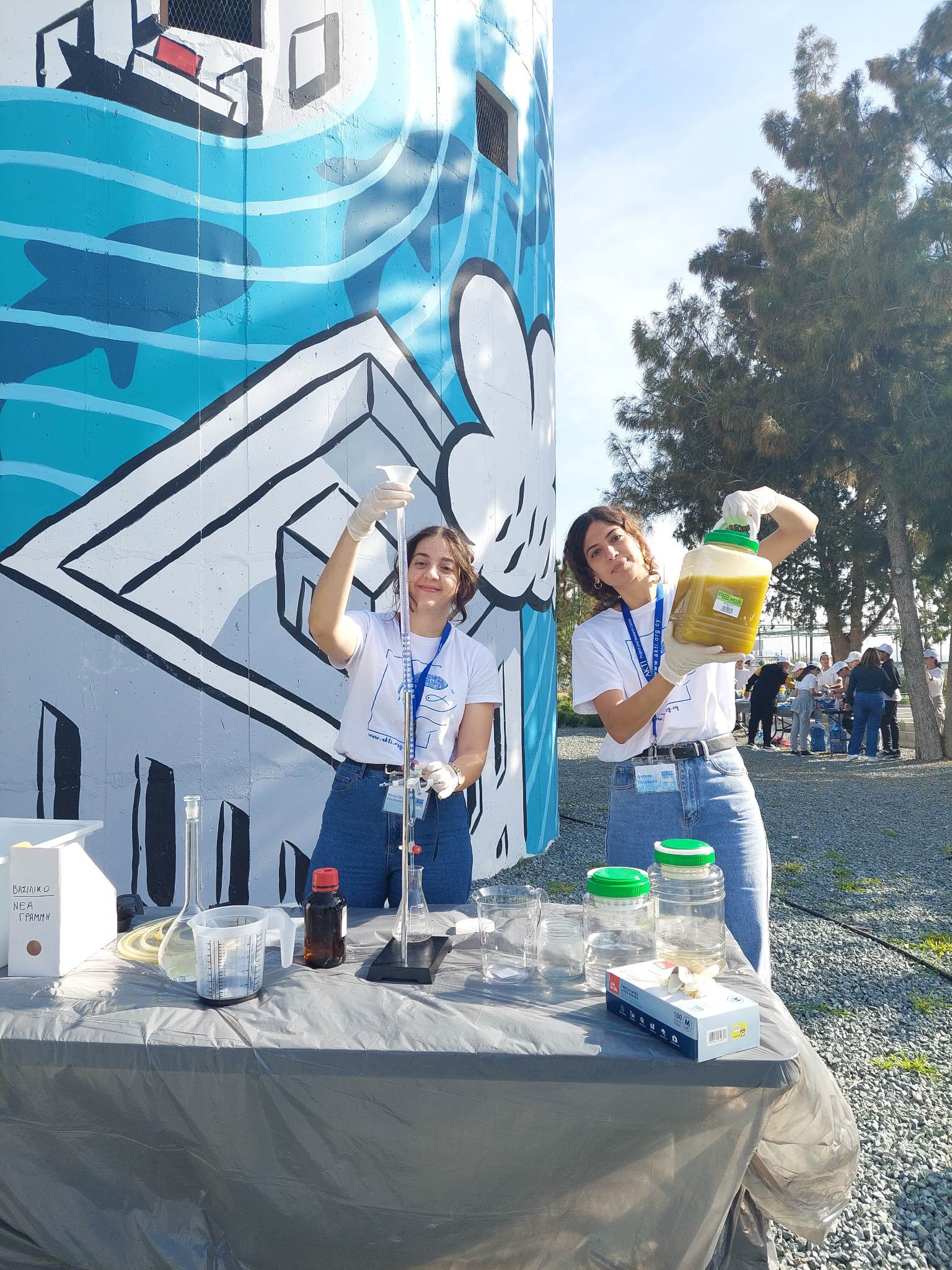
Zero Waste Beach in Cyprus. Zero Waste Future in Malta. Net Zero in Cyprus and Malta
Zero Waste Beach and Future projects
Marine litter is an environmental, economic as well as human health problem with no simple solution. It poses a global, complex and multi-dimensional challenge with significant implications for the marine and coastal environment and human activities all over the world. Recovery and recycling of the most common marine litter items, are important steps in halting the inflow of items into the marine environment and are also critical first steps in promoting the Circular Economy. Recovery and recycling are particularly critical in island countries, such as Cyprus and Malta.
To address the problems outlined above, the initiative proposed here aims to engage citizens, students, local authorities and businesses to take ownership of the environment they spend most time in so as to increase recycling and decrease land and marine litter, using the “producer responsibility” mentality, but through soft, awareness-raising and participatory measures.
Activities for Zero Waste Beach Cyprus:
Click here to learn about some exciting news for Cyprus!
🎥 General Actions_Total Results (video_en)
🎥 General Actions_Total Results (video_gr)
📈Infographic_Total Results (2018-2020) (pdf_gr)
1️⃣. Strengthened and expanded the «Responsible Coastal Businesses Network»: to 310 members, through the implementation of an extensive awareness-raising campaign, targeting all coastal businesses on the island. In these campaigns, AKTI’s staff have been liaised with approximately 800 business owners/managers/employees, informing them about marine litter (sources and impacts) as well as about the upcoming European legislation on single-use plastics and how it affects them and assisting them in implementing practices that will minimize their plastic production and thus minimize the potential for marine plastic pollution from their operations and their customers’ activities. The involvement of local authority representatives has added particular clout to this activity.
❓ HOW and WHY to join the Responsible Coastal Businesses Network_EN_(pdf)
❓ HOW and WHY to join the Responsible Coastal Businesses Network_GR_(pdf)
The RCB network members can be viewed in the below map.
To provide inspiration, a Decalogue and a Guide were developed during the last year implementation of the project and distributed to the Coastal Businesses. Decalogue contained 10 basic possible good practices and the Guide contained examples of these good practices in order to inspire the applicants and encourage them to act against plastic pollution and generally for a more green performance of their businesses.
An electronic version of these, are available here:
✅ Examples of Good Practices_gr
2️⃣. Tracked and recorded recycling waste from the Responsible Coastal Businesses: The members of the Responsible Coastal Businesses Network ought, as a mandatory term of their network membership, to record the amount of recyclable waste (PMD, glass, general) that they dispose. 980 tons of recycling waste collected by the responsible coastal businesses throughout the duration of the project. This has been monitored with regular visits by AKTI’s group of experts, who also provided their suggestions on how the business can become more effective in recycling. In this way, they will be able to set goals and monitor their reduction in the long run, as a result of the implementation of plastic reducing practices.
3️⃣. Beach cleanups in conjunction with the International Coastal Cleanup: AKTI implemented annual beach cleanups on selected beaches with the collaboration of the Responsible Coastal Businesses, local authorities, schools, and volunteers.
AKTI is the national coordinator of the International Coastal Cleanup of the Ocean Conservancy in Cyprus. Therefore, all the cleanups implemented using the International Coastal Cleanup Protocol. The data included in the Regional Marine Litter Database and has also be submitted to the ICC.
📸🌊Some photos from the Beach and Seabed Cleanups, are available here: 1 & 2 & 3 & 4 & 5
🎥🌊Some Videos from the Beach and Seabed Cleanups:
video 1___video 2___video 3___video 4___video 5
video 6___video 7___video 8___video 9___video 10
4️⃣. Tracked and recorded recycling waste from the Responsible Coastal Businesses, on-the-go recycle bins and events : 980 tons of recycling waste collected in Cyprus by coastal businesses-members of the Network throughout the duration of the project, of which, the percentage per source of total recyclable waste, were 46% Paper, 30% PMD and 24% Glass. In these 980 tons of recycling waste collected from the coastal businesses, the 130 tons correspond to PET.
This has been monitored with regular visits by AKTI’s group of experts, who also
provided their suggestions on how the business can become more effective in
recycling. In this way, they will be able to set goals and monitor their reduction in the
long run, as a result of the implementation of plastic reducing practices.
17 tons of recyclable waste was collected from these bins during the implementation
period of the project. The aim was to encourage local authorities and communities to
improve collection infrastructure and implement reduction actions for plastics used.
Source identification activity was performed for this action. AKTI’s staff separated
the collected waste per source, to create an innovative database with data that can be
used for directing budget to the management of the most frequent litter.
📸♻️More information and photos about “On-the-go recycling” research action, can be found here.
5️⃣. Α Competition for the implementation of sustainable practices to reduce marine litter, and especially plastics, was launched and implemented. The Competition targeted members of the Responsible Coastal Businesses Network, in an attempt to promote sustainable practices incorporated by coastal businesses in their operation, and to minimize plastic waste entering the coastal and marine environment, thus mitigating/reducing the pollution they cause. Τhe terms for the participation in the Competition and the application form distributed to the Coastal Businesses along with a Decalogue and a good practices Guide, in order to inspire the applicants and encourage them to act against plastic pollution and generally for a more green performance of their businesses. 390 entries/good practices were received. The entries were evaluated by a five-member independent jury: the Chairperson of the Board of Directors of AKTI, Dr. Xenia I. Loizidou, the Media Relations Director at Digital Tree, Mrs Xenia Xenophontos, the Corporate Affairs and Sustainability Manager at Coca-Cola HBC Cyprus, Mrs Melina Limnati and the two members of AKTI, Mrs Anna Tselepou and Ms Maria-Christina Constantinou. The winners were selected by the jury followings a selection process based on 4 criteria: environmental responsibility, social responsibility, innovation and sustainability and the awards are given in two categories, depending on the type – size of the business.
6️⃣. A highly publicised Award Ceremony, “Zero Waste Beach Awards 2023”, was implemented at the end of the project. The winners had the title of «Zero Waste Beach Champions 2023». The ceremony took place in June 22 at Old Powerhouse in Nicosia. The ceremony attended by 72 people, including the General Director of the Ministry of Agriculture, Rural Development and Environment Mr Andreas Georgiou, , the General Director of the Deputy Ministry of Tourism Mr. Antonis Koutsoullis, the Director of Department of the Environment Mrs Elena Stylianopoulou, the president of the Parliamentary Environment Committee MP Mr. Charalambos Theopemptou, the Mayor of Nicosia Mr Constantinos Yiorkatzis, the president of the ‘Cyprus Hotels Association’ Mr E. Loizides, several NGOs, HoReCa representatives, media (TV, radios and newspapers/e-media), Trade Unions, Thirdparty experts, Tour Agents, Environmental Parliamentary Committee and other stakeholders. The Ceremony was extensively covered by local and national media (TVs, radios and newspapers).
The awards are given in two categories, depending on the type of the business (large or small businesses) .The six championships were distinguished in the categories of environmental responsibility, sustainability, innovation and social responsibility.
In the category of large businesses:
🏆 Aliathon Resort received the Sustainability Award
🏆 St. Raphael Resort & Marina received the Innovation Award,
🏆 Capo Bay Hotel received the Social Responsibility Award and,
🏆 Atlantica Aeneas Resort received the Environmental Responsibility Award.
In the category of small businesses:
🏆 Grape by the Sea received the Sustainability Award,
🏆 Klimataria-Beach Bar Resto received the Sustainability Award.
🏆 Avli tis Nefelis received the Innovation Award
🏆Charalambos Holiday Cottage received the Social Responsibility Award.
🏆 Aplostra Beach Bar received the Environmental Responsibility Award.
Special thanks were given to one person to whom the success of Zero Waste beach is owed.
🏅 Anna Tselepou of AKTI
📸Some photos from the Zero Waste Beach Awards, are available for 2019 here. And 2021-2022 here.
🎥Some Videos from the “Zero Waste Beach Awards 2019”:
Video 1___Video 2___Video 3___Video 4
7️⃣. Extensive communication and dissemination activities took place over the duration of the project, and especially at times with important activities, e.g. the project launch, the cleanup events, the competition and the awards ceremony. Communication and dissemination activities were inclusive all means and media (print, online, social etc), and 6,642,737 people reached via AKTI’s social media.
Activities for Zero Waste Future Malta:
Click here to learn about some exciting news for Malta!
1️⃣. Waste characterization: this activity was carried out in the Three Cities of Malta (Cottonera) to identify the main types of waste disposed of and their relative percentages, depending on the type of establishment. This activity provides a solid base of waste data and indicate where efforts must be focused for more effective recycling. The waste characterisation study was carried out by AKTI’s experts, with the strong support of the councils of the Three Cities of Malta/Cottonera. Waste was sampled from at least 66 sampling points,for 3 sampling sessions.The involvement of 3 local authority representatives has added particular value to this activity. More specifically Birgu Municipality, Cospicua and Senglea (The Three Cities of Malta) had Council meetings on the issue and decided to support the implementation of the
Network in all HoReCa establishments within their territory.
🎥Some Videos from “Waste Characterization” action:
📸Some photos from the “Waste Characterization”, are available here.
2️⃣. Build on the “Responsible Coastal Businesses Network in Malta: through extensive awareness-raising campaigns, where representatives of the Coca-Cola Company of Malta, informing business owners/managers about marine litter (sources and impacts) as well as about the upcoming European legislation on single-use plastics and how it affects them, and assisting them in implementing practices that will minimize their plastic production and thus minimize the potential for marine plastic pollution from their operations and their customers’ activities.The Responsible Coastal Businesses Network Ambassadors have liaised with 50 business owners/managers/employees. The below shows the network members inducted until now.
To provide inspiration, a Decalogue and a Guide were developed during the last year implementation of the project and distributed to the Coastal Businesses. Decalogue contained 10 basic possible good practices and the Guide contained examples of these good practices in order to inspire the applicants and encourage them to act against plastic pollution and generally for a more green performance of their businesses.
An electronic version of these, are available here:
✅ Examples of Good Practices_en
3️⃣Tracked and recorded recycling waste from the Responsible Coastal Businesses, on the-go recycling bins, and events: 46.1 tonnes of recycling waste collected from the Responsible Coastal Business Network. Of the 46.1 tonnes of recycling waste collected, 31.4 tonnes were PET, making PET waste 68% of the total recyclable waste collected.
In order to succeed the collection of any possible PMD which is not disposed in the DRS machines, we cooperated with event organizers such as Festivals Malta and Sports Malta in order to install PMD bins during the events. The Zero Waste Future bins were installed in the following events, collecting 17 tonnes of recyclable waste of which 14.5 tonnes were PET:
• Notte Bianca
• Sports Malta Family Day Open Event
• Festivals Malta NYE Event
4️⃣. Beach cleanups in conjunction with the International Coastal Cleanup: annual beach cleanups on selected beaches with the collaboration of NGOs, local authorities, schools, and volunteers. All the cleanups were implemented using the International Coastal Cleanup Protocol in order to be able to identify the sources of the collected litter and to begin compiling data on beach marine litter in Malta. The data were included in the Regional Marine Litter Database and will also submitted to the ICC.
🎥🌊Some Videos from “Beach/Seabed Cleanups and Turtle Release”:
📸🌊Some photos from the Beach and Seabed Cleanups, are available here.
5️⃣. Zero Waste Champions Competition: 24 entries to the Competition.The competition aims at rewarding and recognising those members of the Network who have taken substantial and / or innovative measures to minimise their contribution to the marine litter problem and minimise the use of plastics. Specific criteria and entries were evaluated by an independent jury of experts to announce the ZERO WASTE FUTURE CHAMPIONS! The final event, which is also the Award Ceremony, was completed on the 2nd of June 2023. The event was hosted at Malta Aquarium, one of the Network’s members, and saw the participation of over 200 participants, including school children, representatives of the Ministry of Education, Local Authorities, Members of the Network etc. The welcome speech was presented by the Ministeer of Environment Ms Miriam Dalli. The implementation of the event this year, alongside schools that implement the Eco-Schools’ Litterless Campaign, and hosted by the
Malta Aquarium, Member of our RCB Network. The awards were presented to the following HoReCa who cooperated with the schools to promote the Zero Waste concept through implementation of solutions:
• Talbot & Bons Restaurant
• Talbot & Bons Boutique Hotel
• Costa Coffee
• Manouche
• St. Thomas Moore Tuckshop
• St. Micheals Tuckshop
6️⃣. Extensive communication and dissemination activities took place over the duration of the project, and especially at times with important activities, e.g. , the cleanup events, waste characterization activities etc. 4,600,000 people reached through Communication and dissemination activities were inclusive all means and media (print, online, social etc).
#Potavristou, όπου και να βρίσκεσαι, να καθαρίσουμε τις θάλασσες και τις ακτές μας!
#potavristou τζαι φέτος!
Η δράση μετά την τεράστια επιτυχία που είχε και τις 3 χρονιές υλοποίησής της, θα επαναληφθεί και φέτος. Ο κάθε πολίτης, η κάθε παρέα μπορεί να ποταβριστεί εκεί που είναι, να μαζέψει τα σκουπίδια που βλέπει γύρω και να ανεβάσει τα δεδομένα του στην δωρεάν εφαρμογή Clean Swell (μπορείτε να την κατεβάσετε από το Play Store/App store), είτε να στείλει μήνυμα στις σελίδες της ΑΚΤΗΣ στα κοινωνικά δίκτυα. Επίσης μπορεί να ανεβάσει φωτογραφίες από τον καθαρισμό στα δικά του κοινωνικά δίκτυα με το #potavristou. Περισσότερες πληροφορίες θα βρείτε στις Οδηγίες #potavrismatos.
Όλο τον Σεπτέμβρη ποταβριζόμαστε!

Ιστορικό της δράσης
Το #potavristou πραγματοποιήθηκε για πρώτη φορά τον Σεπτέμβριο του 2019. Αποτελεί μια πρωτότυπη εκστρατεία που ξεκίνησε από μια αυθόρμητη πρωτοβουλία πολιτών και διοργανώθηκε σε συνεργασία με το Κέντρο Μελετών και Έρευνας ΑΚΤΗ. Αξίζει να σημειωθεί ότι το #potavristou αποτέλεσε μια «προφητική» δράση. Σε ανύποπτο χρόνο η ομάδα του #potavristou σκέφτηκε και υλοποίησε μια ενέργεια που πετυχαίνει τον καθαρισμό των ακτών με τη συμμετοχή πολλών πολιτών/εθελοντών αποφεύγοντας όμως ταυτόχρονα τον συγχρωτισμό, που είναι το μεγάλο ζητούμενο στην εποχή του Covid19!

Το 2020, ο Διεθνής Οργανισμός Ocean Conservancy διοργάνωσε Παγκόσμιο Διαγωνισμό για την ανάδειξη των δέκα πιο καινοτόμων δράσεων καθαρισμού ακτών για το 2019. Στο διαγωνισμό υποβλήθηκαν εκατοντάδες προτάσεις από 130 και πλέον χώρες. Το Κέντρο Μελετών και Έρευνας ΑΚΤΗ συμμετείχε στο Διαγωνισμό με μια υποψηφιότητα που περιλάμβανε τρεις δράσεις: το #potavristou, τη διαδικασία συμμετοχικής λήψης αποφάσεων για τη μείωση των σκουπιδιών της θάλασσας DeCyDe-4 και με τους εξειδικευμένους καθαρισμούς ακτής brand surveys. Η υποψηφιότητα της ΑΚΤΗΣ με τις τρεις αυτές δράσεις, επιλέχθηκε ανάμεσα στις 10 πιο καινοτόμες παγκόσμια!
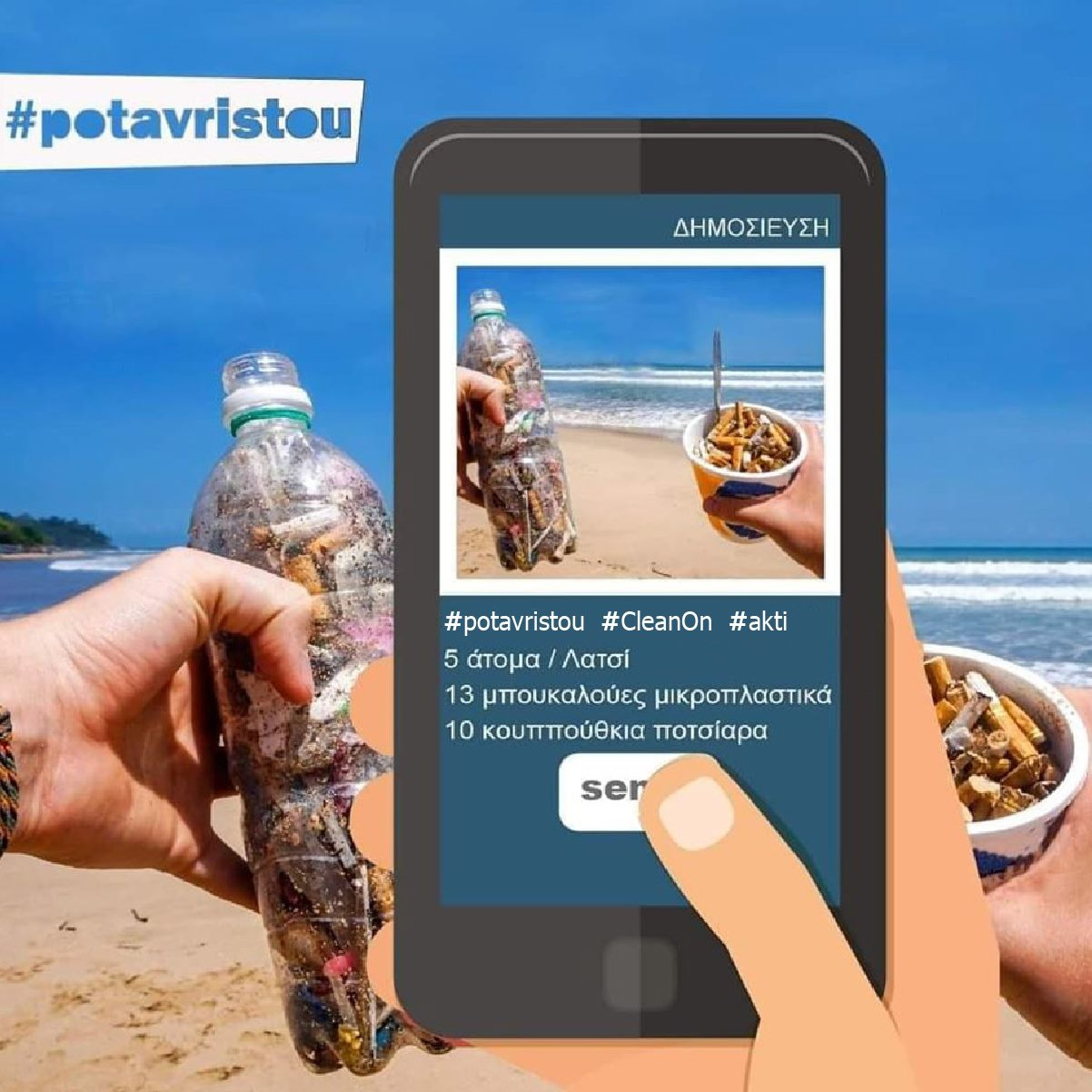
Αποτελέσματα #potavristou μέχρι σήμερα
Συγκεκριμένα, στις 21 Σεπτεμβρίου του 2019, Παγκόσμια Ημέρα Εθελοντικού Καθαρισμού των Ακτών, οι διοργανωτές κάλεσαν το κοινό, όπου και αν βρισκόταν, να βοηθήσει να καθαριστούν οι θάλασσες και οι ακτές μας. Περισσότερα από 500 άτομα, τη συγκεκριμένη μέρα, ποταβρίστικαν και μάζεψαν τα σκουπίδια που βρήκαν γύρω τους, όπως πλαστικά και γυάλινα ποτήρια, μπουκάλια, σακούλες, συσκευασίες τροφίμων, αναψυκτικών, δίχτυα κ.λ.π. Συνολικά μαζεύτηκαν 5,5 τόνοι σκουπιδιών, που περίμεναν τις πρώτες νεροποντές για να ξεκινήσουν τον φαύλο κύκλο τους, να φτάσουν στη θάλασσα και να επιστρέψουν στη ζωή μας «εκδικητικά», ως μικροπλαστικά.

Η δράση μετά την μεγάλη ανταπόκριση που είχε το 2019, είχε επαναληφθεί καθ’ όλη τη διάρκεια του Σεπτεμβρίου του 2020. Τα αποτελέσματα της εκστρατείας #potavristou_2020 ήταν εντυπωσιακά: 2016 εθελοντές συμμετείχαν και έστειλαν τα δεδομένα τους, από 187 τοποθεσίες στην Κύπρο και 20 τοποθεσίες στο εξωτερικό! Συλλέχθηκαν 12 τόνοι απορριμμάτων, εκ των οποίων το 70% ήταν πλαστικά! Επίσης έγιναν 12 εκατομμύρια προβολές σχετικά με τη δράση, μέσα από τα κοινωνικά δίκτυα της ΑΚΤΗς και τα μέσα μαζικής ενημέρωσης!
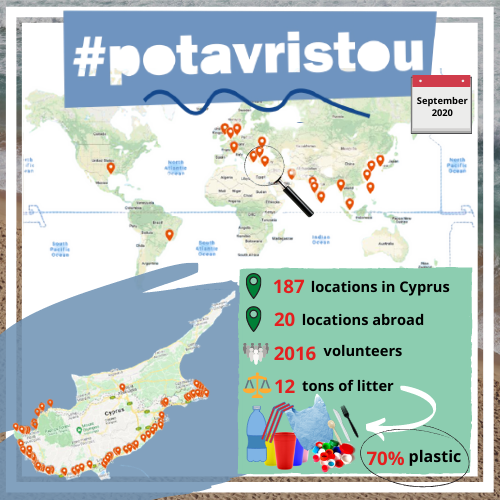
Τα αποτελέσματα του Σεπτέμβριου 2021 ήταν πολύ εντυπωσιακά. 2590 εθελοντές από 114 τοποθεσίες στην Κύπρο και 63 τοποθεσίες στο εξωτερικό μάζεψαν σκουπίδια και μας έστειλαν δεδομένα! Συλλέχθηκαν 13.5 τόνοι απορριμμάτων, εκ των οποίων το 87% ήταν πλαστικά! Επίσης έγιναν 12 εκατομμύρια προβολές σχετικά με τη δράση στα κοινωνικά δίκτυα της ΑΚΤΗΣ, εθελοντών και οργανώσεων της Κύπρου και του εξωτερικού καθώς και στα μέσα μαζικής ενημέρωσης!
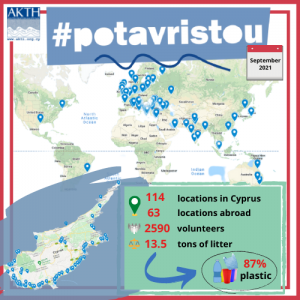
Τα αποτελέσματα του Σεπτέμβριου 2022 ήταν ακομη πιο εντυπωσιακά: 2620 εθελοντές από 243 σημεία στην Κύπρο και 72 στο εξωτερικό μάζεψαν σκουπίδια και μας έστειλαν πολύτιμα δεδομένα πεδίου! Συλλέχθηκαν 16 τόνοι απορριμμάτων, εκ των οποίων το 86% πλαστικά! Επίσης έγιναν 12.3 εκατομμύρια προβολές σχετικά με τη δράση στα κοινωνικά δίκτυα της ΑΚΤΗΣ, εθελοντών και οργανώσεων της Κύπρου και του εξωτερικού καθώς και στα μέσα μαζικής ενημέρωσης!
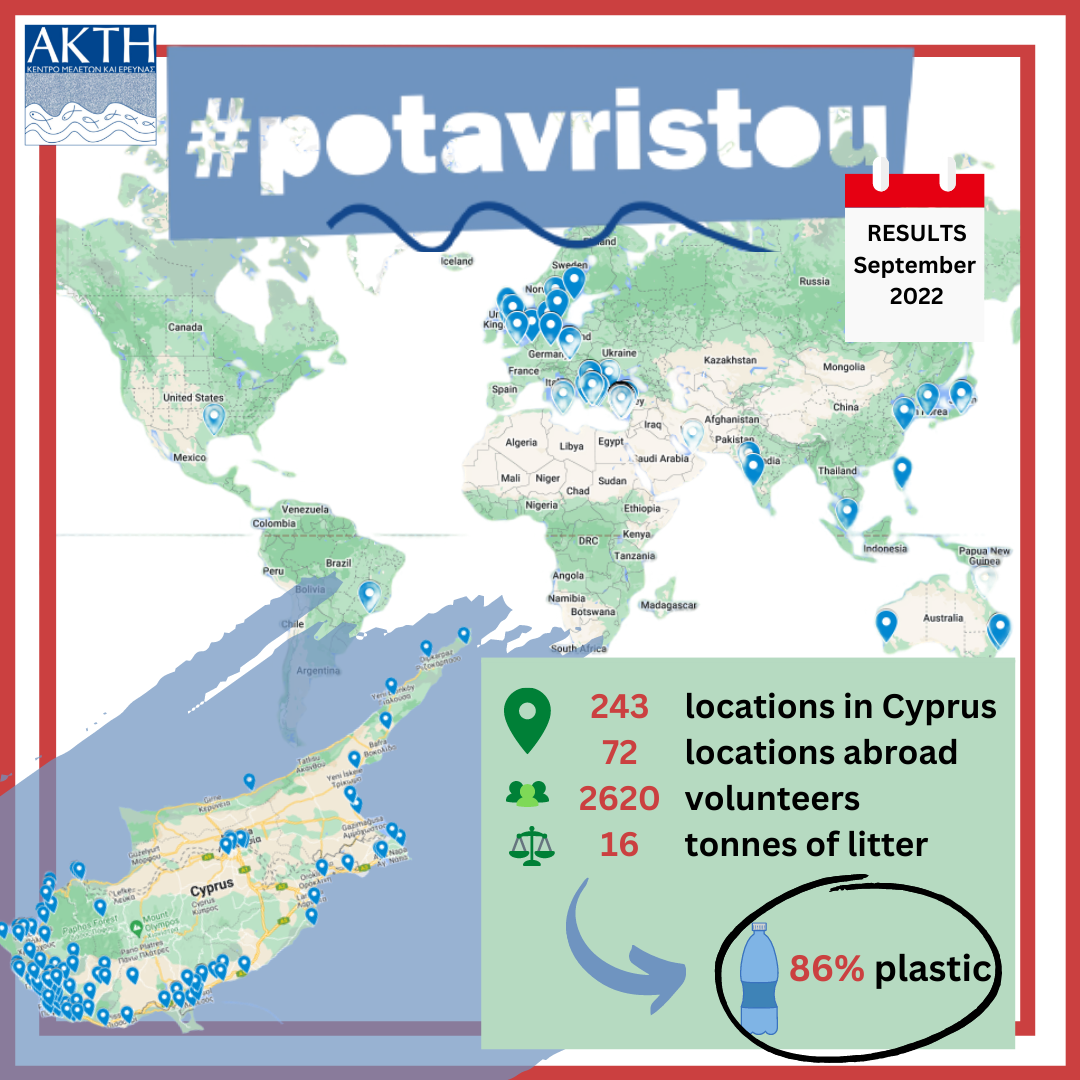
Οδηγίες #potavrismatos
- Μπορείς να συμμετέχεις ατομικά, με την παρέα σου ή με κάποιο οργανωμένο σύνολο.
- Όπου και να βρίσκεσαι είτε αραχτά στην παραλία, είτε σε σκάφος, άπλωσε το χέρι σου και … #potavristou! Μάζεψε ό,τι σκουπίδι βλέπεις γύρω σου. Αν είσαι σε σκάφος, μάζεψε ό,τι σκουπίδι επιπλέει. Αν θέλεις, βέβαια, μπορείς να επεκταθείς και να κάνεις ένα πιο εκτενή καθαρισμό ακτής!
- Χώρισε σε ομάδες και μέτρησε πόσα σκουπίδια μάζεψες: π.χ. τόσα πλαστικά ποτηράκια, τόσες μπουκάλες, τόσες γόπες τσιγάρων, τόσες σακούλες
- Βγάλε τα φωτογραφία.
- Ανέβασε τη φωτογραφία στο Twitter /Instagram, με #potavristou, #teamocean και #akti, μαζί με τις πληροφορίες για τα σκουπίδια που μάζεψες, που είσαι (τοποθεσία) και πόσα άτομα συμμετείχατε στο συγκεκριμένο καθαρισμό.
- Μπορείς να κατεβάσεις και να χρησιμοποιήσεις την δωρεάν εφαρμογή “Clean Swell” που ανέπτυξε το Ocean Conservancy για αυτό τον λόγο (μπορείτε να την κατεβάσετε από το Play Store/App store).
- Σε περίπτωση που ο λογαριασμός σου στο Instagram είναι ιδιωτικός (private), οπότε δεν θα μπορούμε και να εντοπίσουμε τα # hashtag σου, τότε ανέβασέ τα στο facebook, στην προσωπική σου σελίδα με tag ΑΚΤΗ / AKTI Project and Research Centre ή στη σελίδα της ΑΚΤΗΣ κατευθείαν ή στείλε μας μήνυμα με τον Messenger! Η ενέργεια αυτή είναι σημαντική για το Κέντρο Μελετών και Έρευνας ΑΚΤΗ, αφού έτσι θα γίνει εφικτό να καταγραφούν δεδομένα πεδίου και με αυτό τον τρόπο θα υπάρχουν συγκριτικά στοιχεία με αντίστοιχες προσπάθειες που έγιναν στο παρελθόν και θα ακολουθήσουν στο μέλλον. Αυτό είναι πολύ σημαντικό για την έρευνα!
- Τι θα κάνεις τα σκουπίδια που μαζέψες?
- Αν βρίσκεσαι σε ερημική παραλία, πάρε τα μαζί σου!
- Αν βρίσκεσαι σε παραλία λουομένων, βάλε τα στους κάδους ανακύκλωσης (κάδοι για PMD υπάρχουν αρκετοί).
- Αν βρίσκεσαι σε σκάφος, βγάλε τα στο πλησιέστερο λιμανάκι, στους αντίστοιχους κάδους.
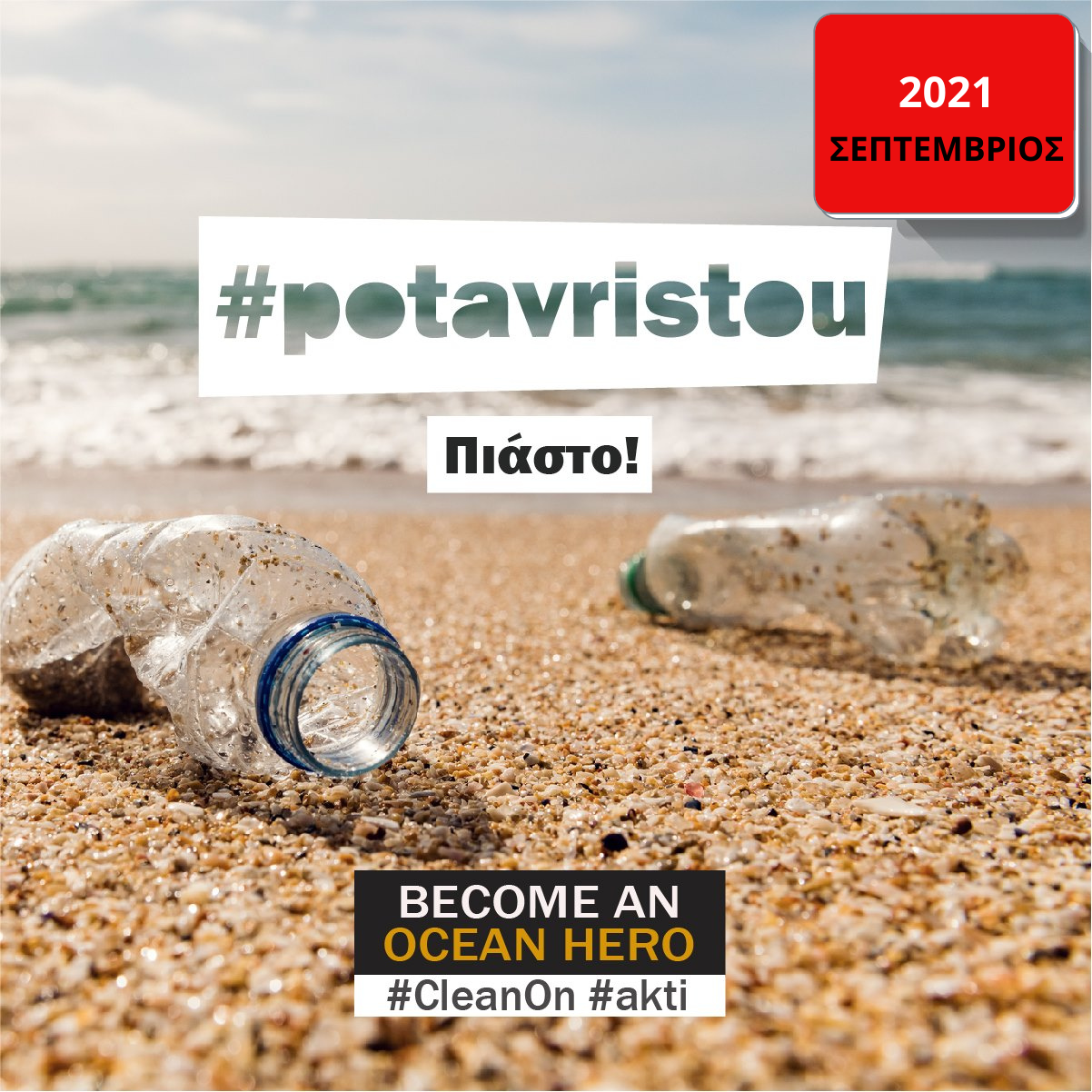
Από πέρσι όπου η πανδημία του ιού έχει προκαλέσει και μέγα τσουνάμι πλαστικής πανδημίας η ανάγκη για μεγαλύτερη συμμετοχή γίνεται ακόμη πιο σημαντική.
Γι’ αυτό … #potavristou, όπου και να βρίσκεσαι, να καθαρίσουμε τις θάλασσες και τις ακτές μας!
Το ποτάβρισμα οφελεί γενικά την υγεία …#potavristou …μπορείς!
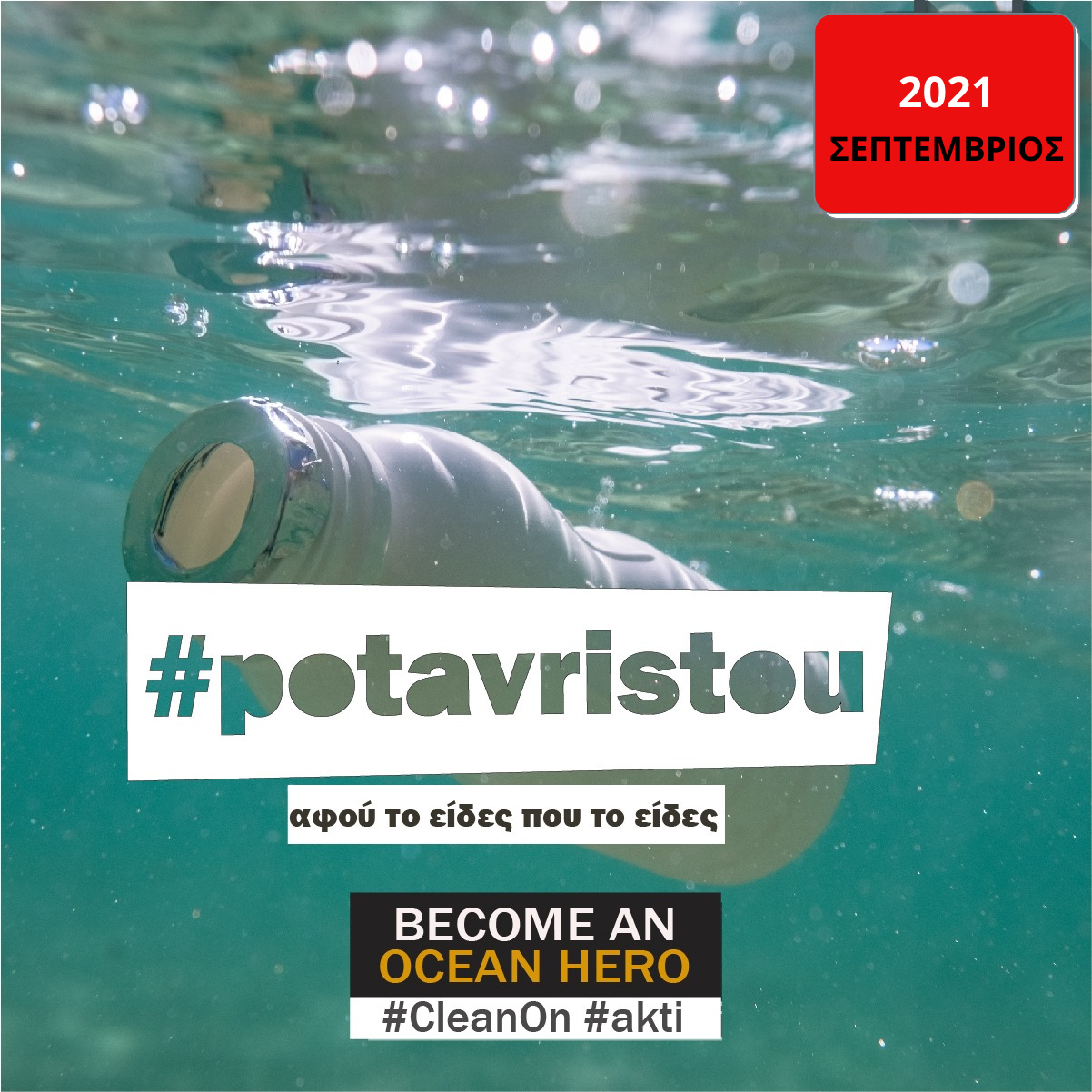
AdvocaCY: Participate, learn, challenge, decide
AKTI’s project titled ”AdvocaCY: Participate, learn, challenge, decide: stronger Cypriot Civil Society for sustainability, advocacy and change!” has been selected amongst 54 applications and awarded funding from the Active Citizens Fund Programme in Cyprus .
Having the UN Sustainable Development Goals at its core, this project aims to engage Greek Cypriot and Turkish Cypriot civil society organizations and informal groups, with a focus on the younger generation and in ensuring gender balance, in understanding their human right to a sustainable and healthy environment.
With “Knowledge leads to awareness; Awareness leads to change” as its motto, the aim of this proposal is to create synergies and join forces among CSOs and informal groups and to build networks of active citizens across the divide. The project has a solution-oriented approach which leads to the achievement of two targets: (1) build skills and capacity, raise awareness and promote advocacy among citizens for their right to a sustainable environment as set by SDGs (2) to boost bi-communal cooperation on promoting sustainability, an issue that affects both communities and is a win-win field of cooperation. In so doing, transform this collaboration into a peace building tool.
The overall result of the project will be its demonstrable (through KPIs) contribution to a stronger and more sustainable civil society on the island, greater bicommunal cooperation and intercultural dialogue, and more active citizens.
The AdvocaCY project benefits from a grant under the Active Citizens Fund Cyprus programme, funded by Iceland, Liechtenstein and Norway, through the EEA and Norway Grants 2014-2021.
The full press release and announcement can be found here.
AdvocaCY – Awareness-raising campaigns
- civil rights, specifically as they relate to the environment; (throughout February 2023)
- the role of CSOs in society; (throughout June 2023)
- public consultations, their use and why it is important to contribute. (throughout September 2023)
This activity aims to develop and apply the tools that will help raise awareness about human rights, specifically the right to a healthy and sustainable environment, and about the role of CSOs to advocate for these rights.
Check out our Awareness-raising campaigns below:
3rd Awareness-raising campaign: Public consultations and why it’s important to contribute
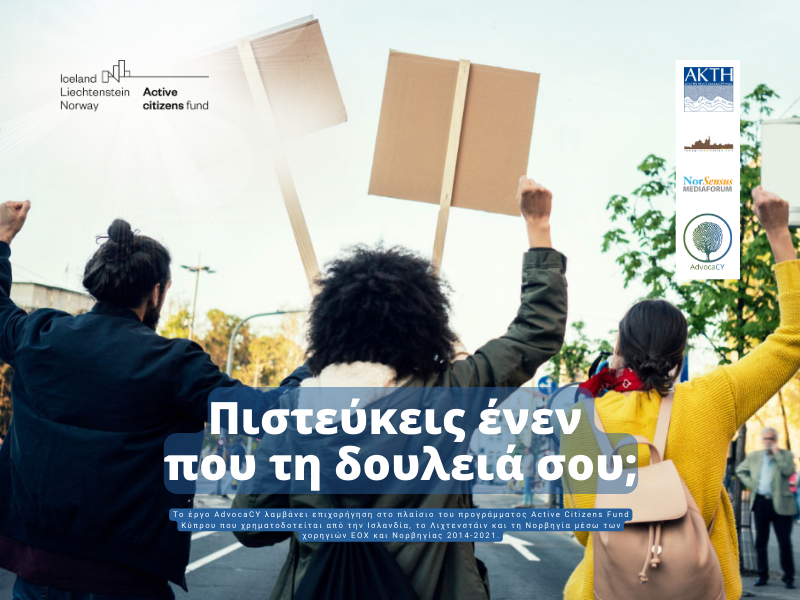
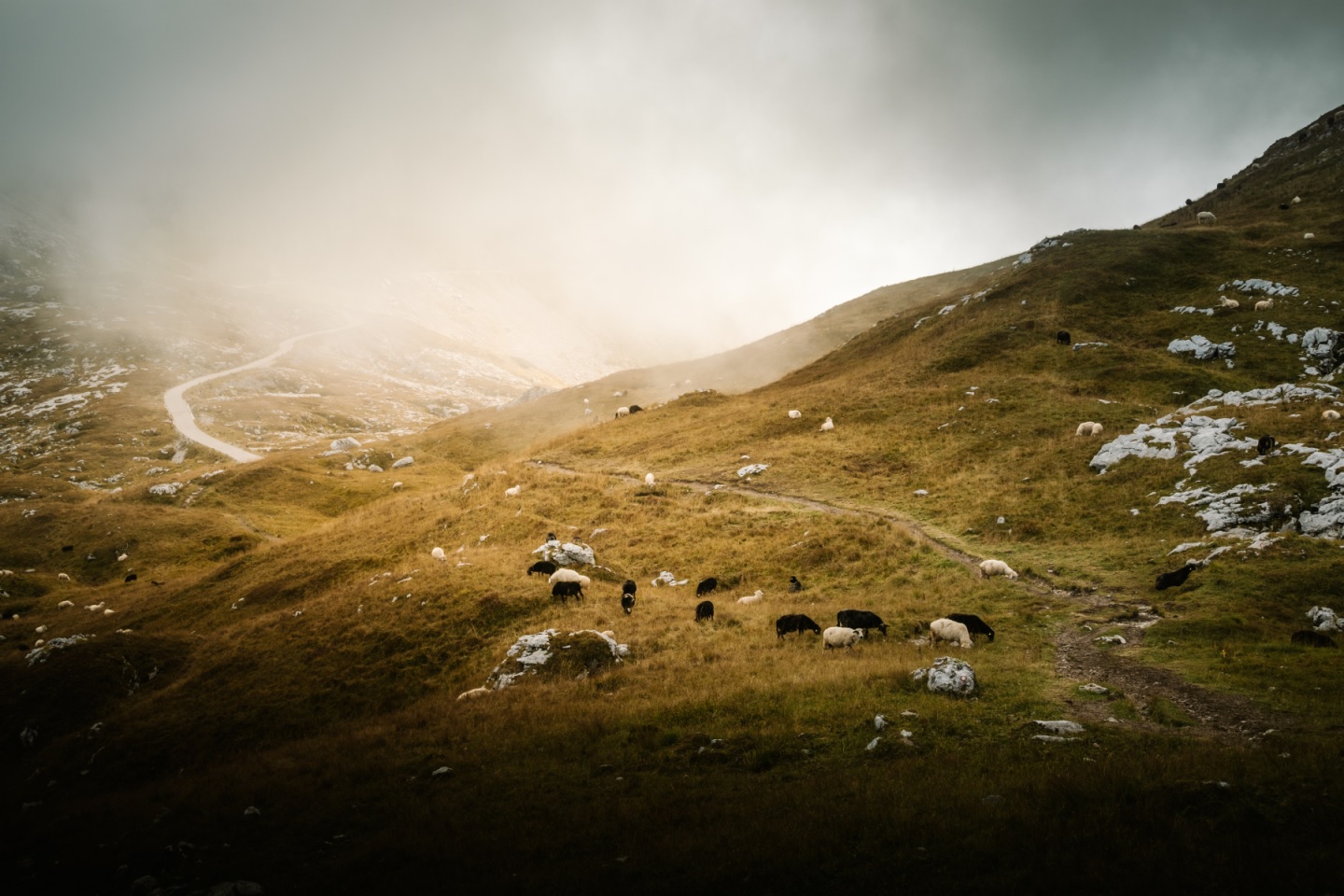
In 2015, the United Nations Environment Programme (UNEP) initiated an implementation guide to assist policy and decision makers to apply Rio Principle 10.
But, what is the Rio Declaration and why is its accelerated and effective implementation at all levels so important? Learn more here.
‘Putting Rio Principle 10 into Action’ Implementation Guide.
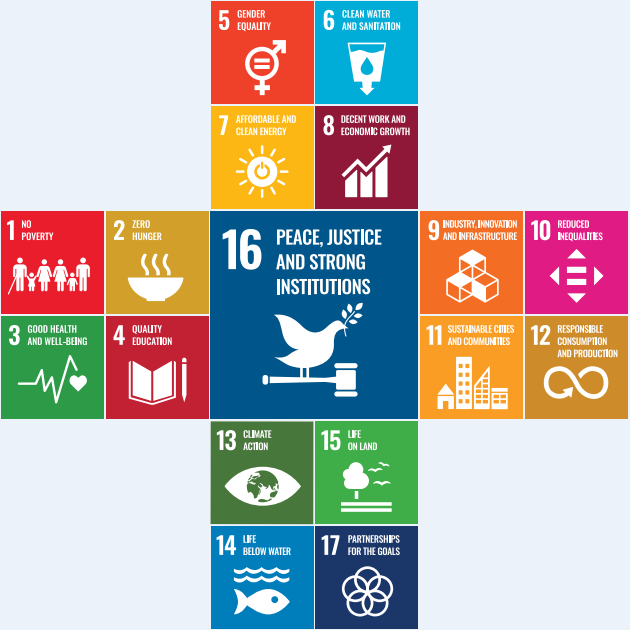
SDG16+ Civil Society Toolkit is a guide of practical steps and resources to advance peaceful, just and inclusive societies.
The toolkit is freely available in several languages here.
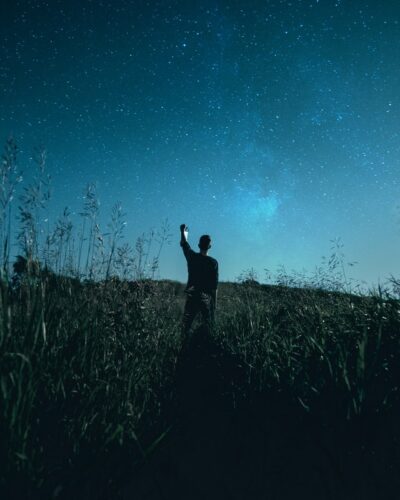
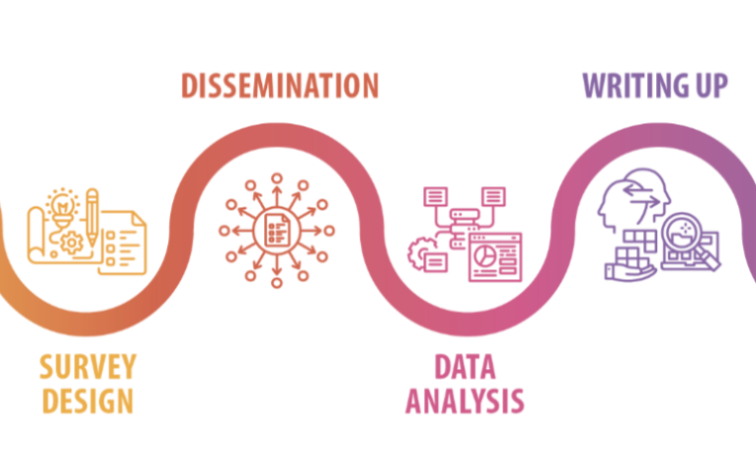
UNESCO IESALC’s project ‘Futures of Higher Education’ records the views of people of all ages in 100 countries on the future of higher education. Check out the public consultation’s results in this interactive website.
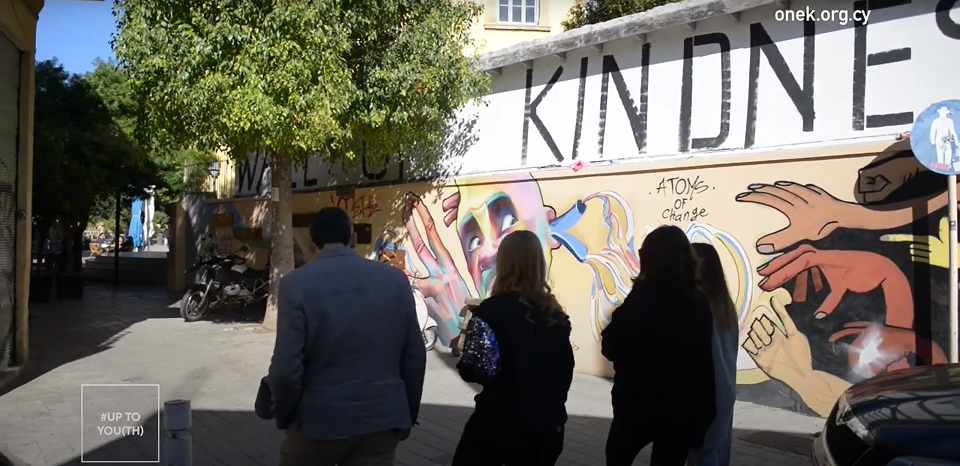
EU Youth Dialogue allows youth in Cyprus to speak their mind and express their concerns on the issues that directly influence them. Check out this video to learn more (video is in Greek).
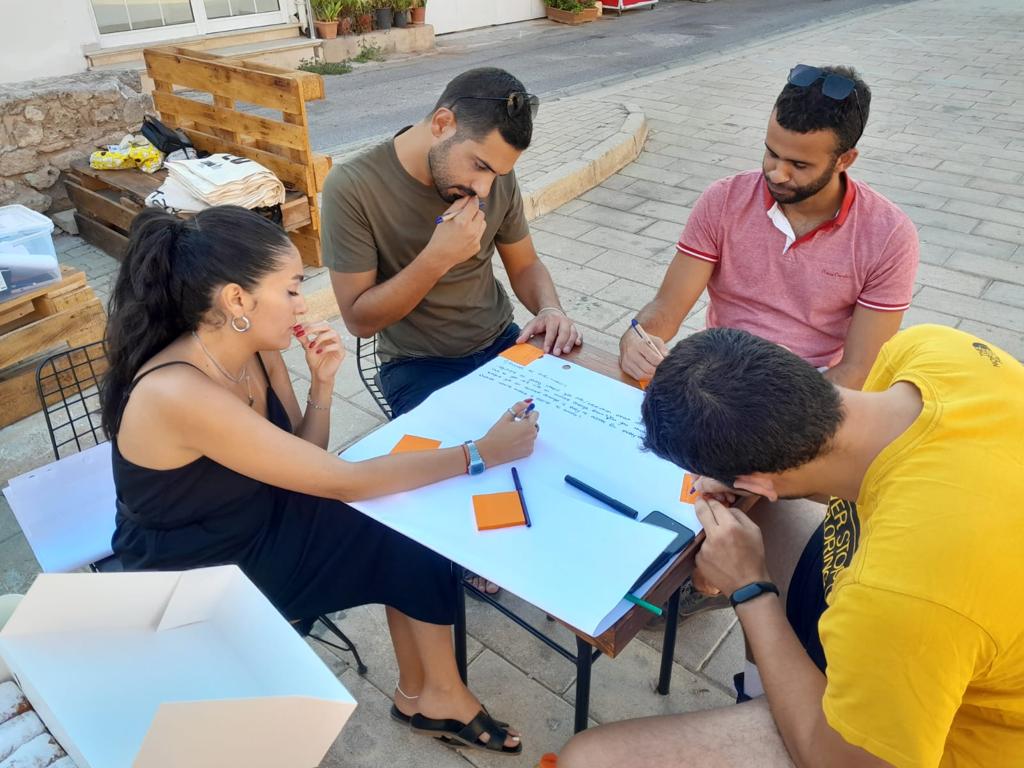
‘Green, Sustainable Europe and the creation of an Inclusive Society’ Consultation by Cyprus Youth Council, within the framework of the 9th cycle of EU Youth Dialogue, 26th August 2022, Famagusta.
The Cyprus Youth Council is giving voice to young people across the island.
Participate and let your voice be heard. Visit Structured Dialogue to learn more.


Fit for Future (F4F) is a digital platform developed by the European Commission where citizens and stakeholders can share their opinions to ensure EU laws help, not hinder, people and business.
Share your suggestions to make EU laws more efficient and fit for the future, here.
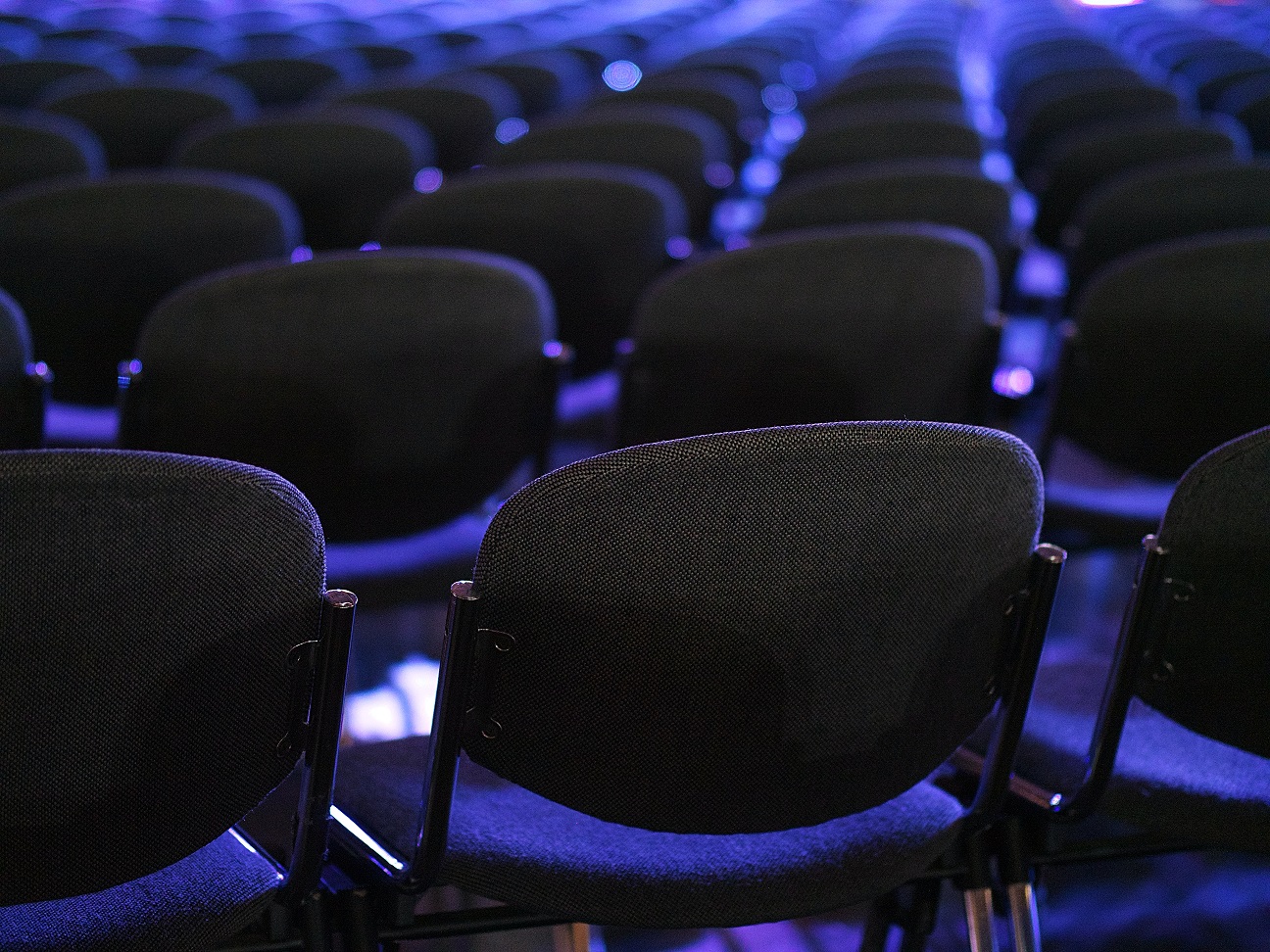
How can we improve citizens’ participation in public consultation processes?
Here’s 4 tips based on the analysis of key-challenges to public participation.
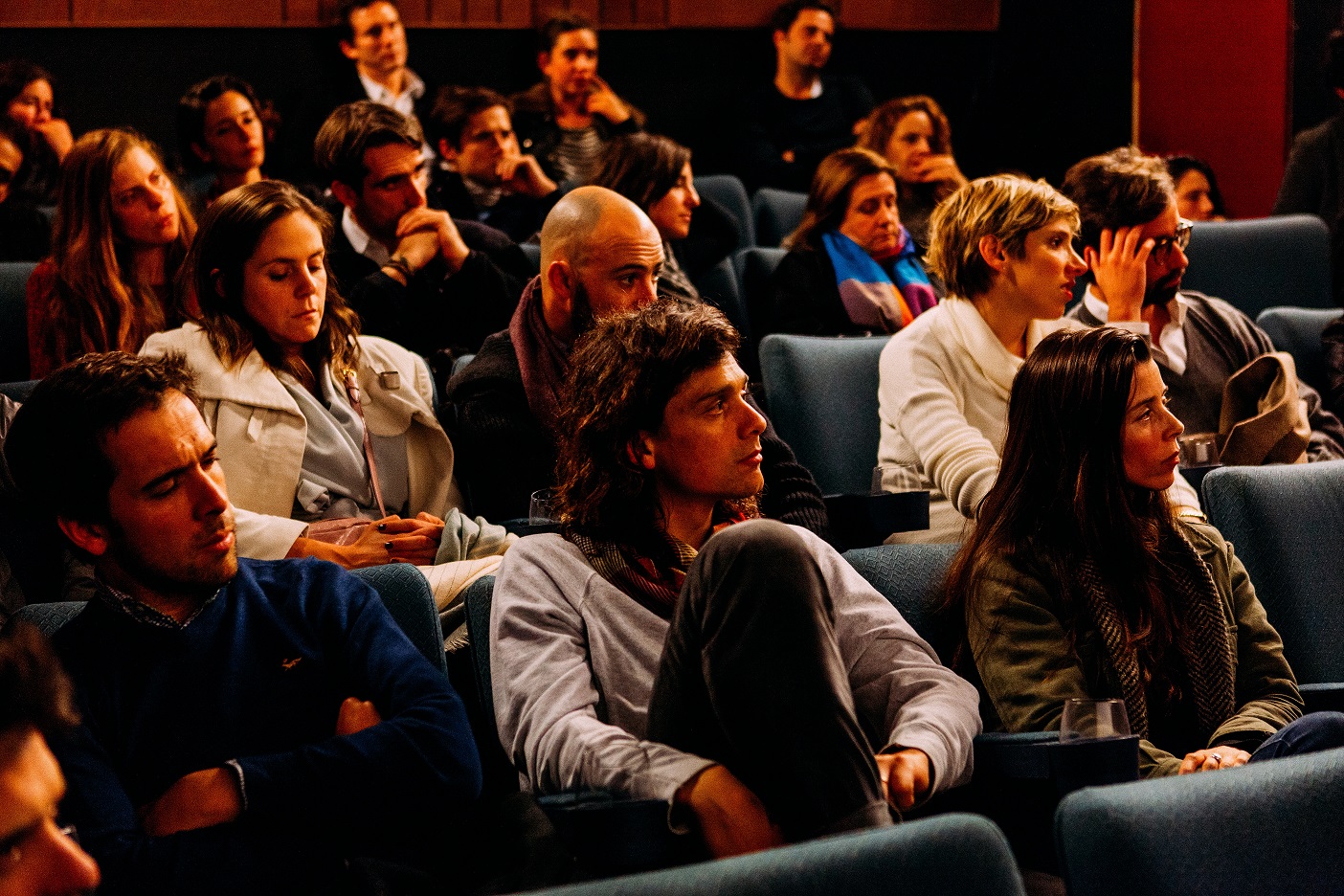


What are the main barriers to public participation consultation processes?
Public participation processes are vital for democratic societies, responsive to public needs. However, public participation can be constrained by many factors. Exploring the reasons hindering public participation is crucial for effective consultation processes and achieving better results.
Learn more here.
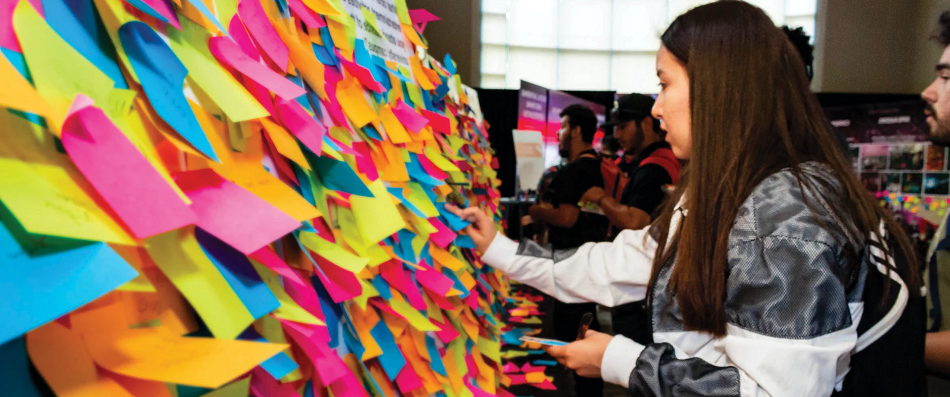
How can we improve community engagement?
5 easy steps for breaking down barriers and encouraging participation here.
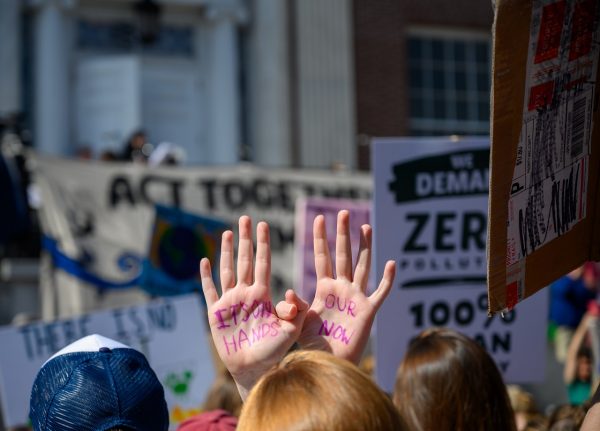
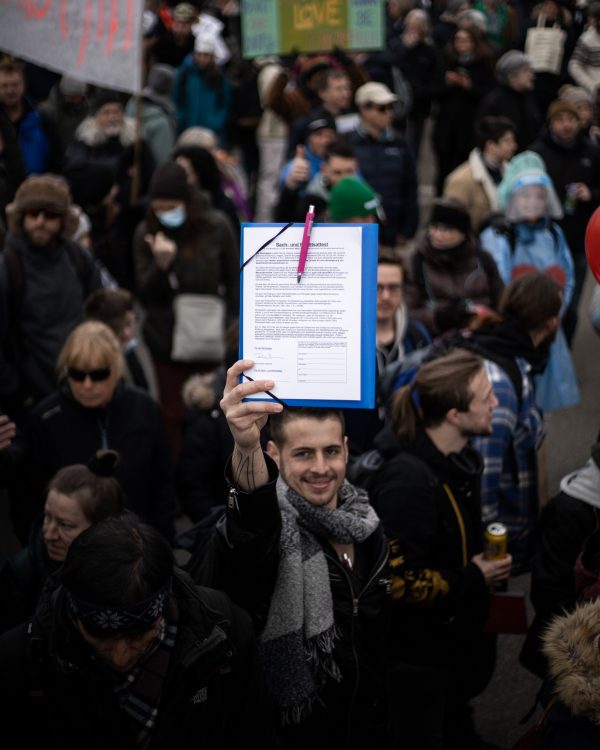
Citizens in Northern Ireland are able to participate in consultations and surveys for governmental initiatives through the online consultation tool Citizen Space.
The online platform is developed and run by the Northern Irish government and features activities from several governmental departments, including the Department of Communities (DfC), Department for the Economy (DfE), Department of Education (DE), Housing Executive (NIHE), etc.
Once a consultation is completed, all responses are carefully analysed and the results are made widely available, with an account of the views expressed and the reasons for decisions finally taken, in line with Northern Ireland’s Open Data Strategy for 2020-2023.
Are you familiar with any similar online tools for public consultations?
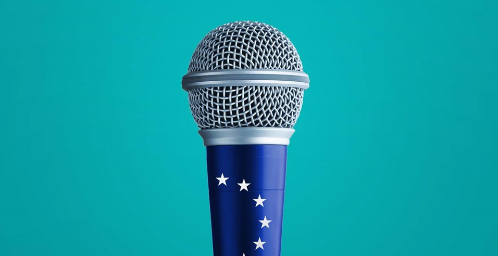
The European Commission regularly seeks the views of citizens for developing policies and legislations.
Visit their website to find out more about active public consultations.

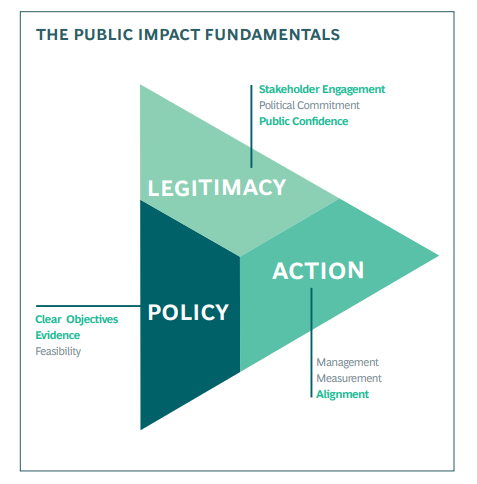
Care to learn more about Public Consultations?
Have a look at this brief introduction
What is a public consultation, when is it required, and what are its benefits?
Check out this brief step-by-step guide to learn more.
2nd Awareness-raising campaign: The role of CSOs in society
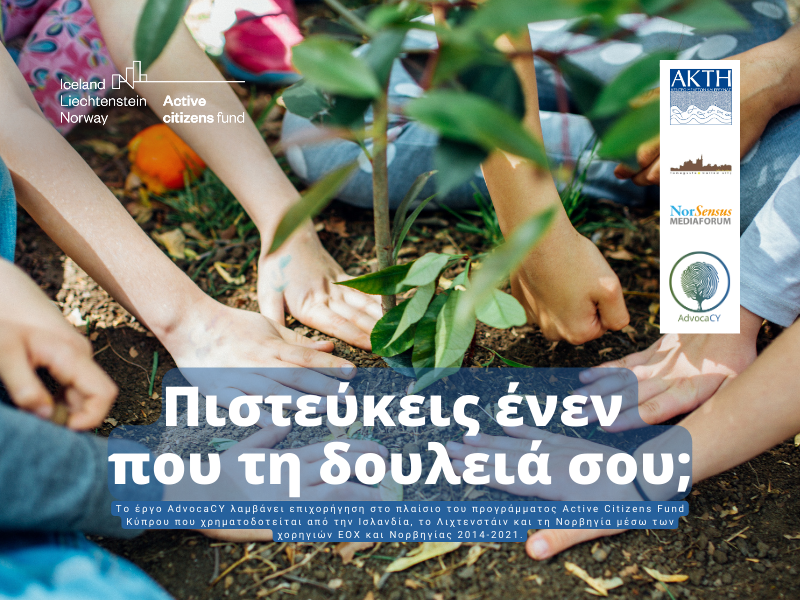
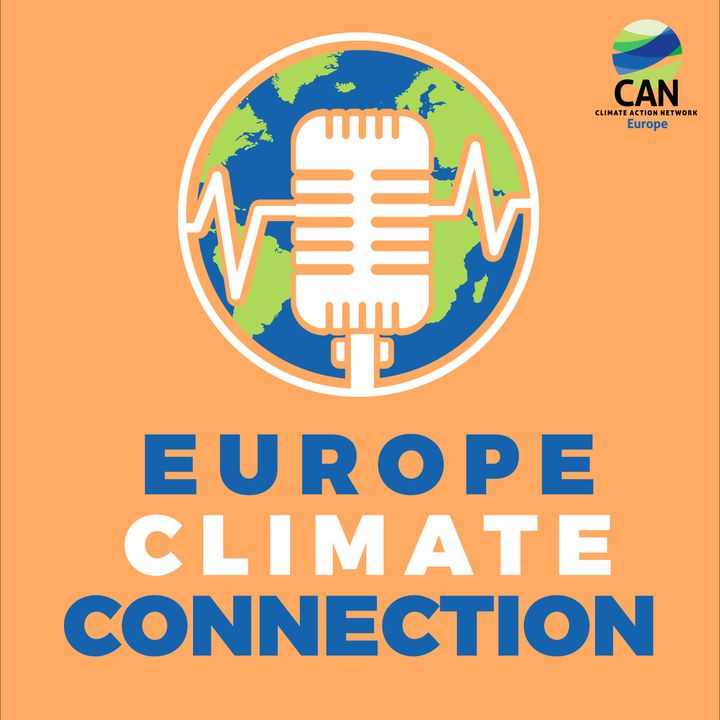
Climate Action Network (CAN) Europe is a podcast dedicated to climate action across Europe.
Tune in and listen to their inspirational guests from civil society organisations and their efforts to fight the climate crisis.
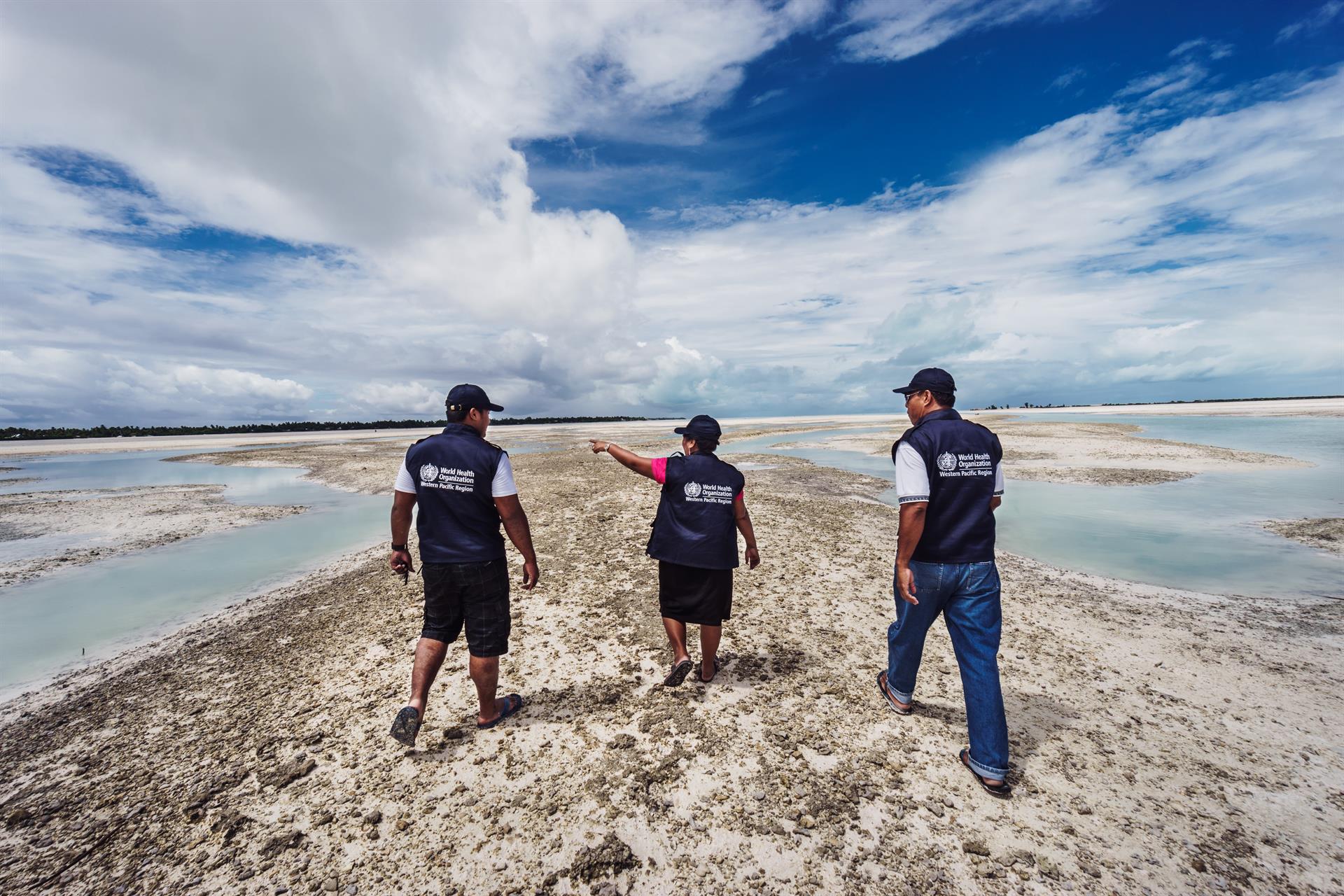
Climate Change is impacting human lives and health by threatening access to clean air, safe drinking water, nutritious food supply and safe shelter. World Health Organization (WHO)’s ‘Civil Society Working Group’ brings together WHO representatives with NGOs working on health and climate to increase the health sector’s engagement with climate action.
Learn more about their work here.
Check out the Climate Action Stories of Civil Society across the world.
Do you know any similar initiatives in Cyprus?

Did you know there are more than 260 Civil Society Organisations operating across the island?
Visit Civic Space’s CSO database to learn more.
Global Citizens is an organisation bringing together people across the globe to call on world leaders, to ACT NOW! Join the movement, change the world.
Learn more here.
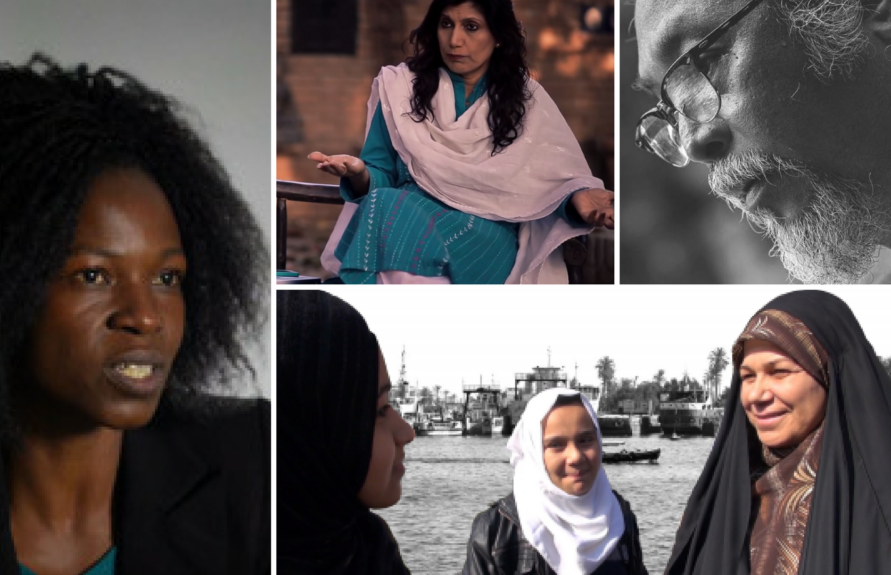
“Faces of Civil Society” is a short film series sharing the stories of inspiring activists from Burma, Iraq, Pakistan, and Zimbabwe. Learn more and watch the series here.
Are you aware of any similar stories from Cyprus?
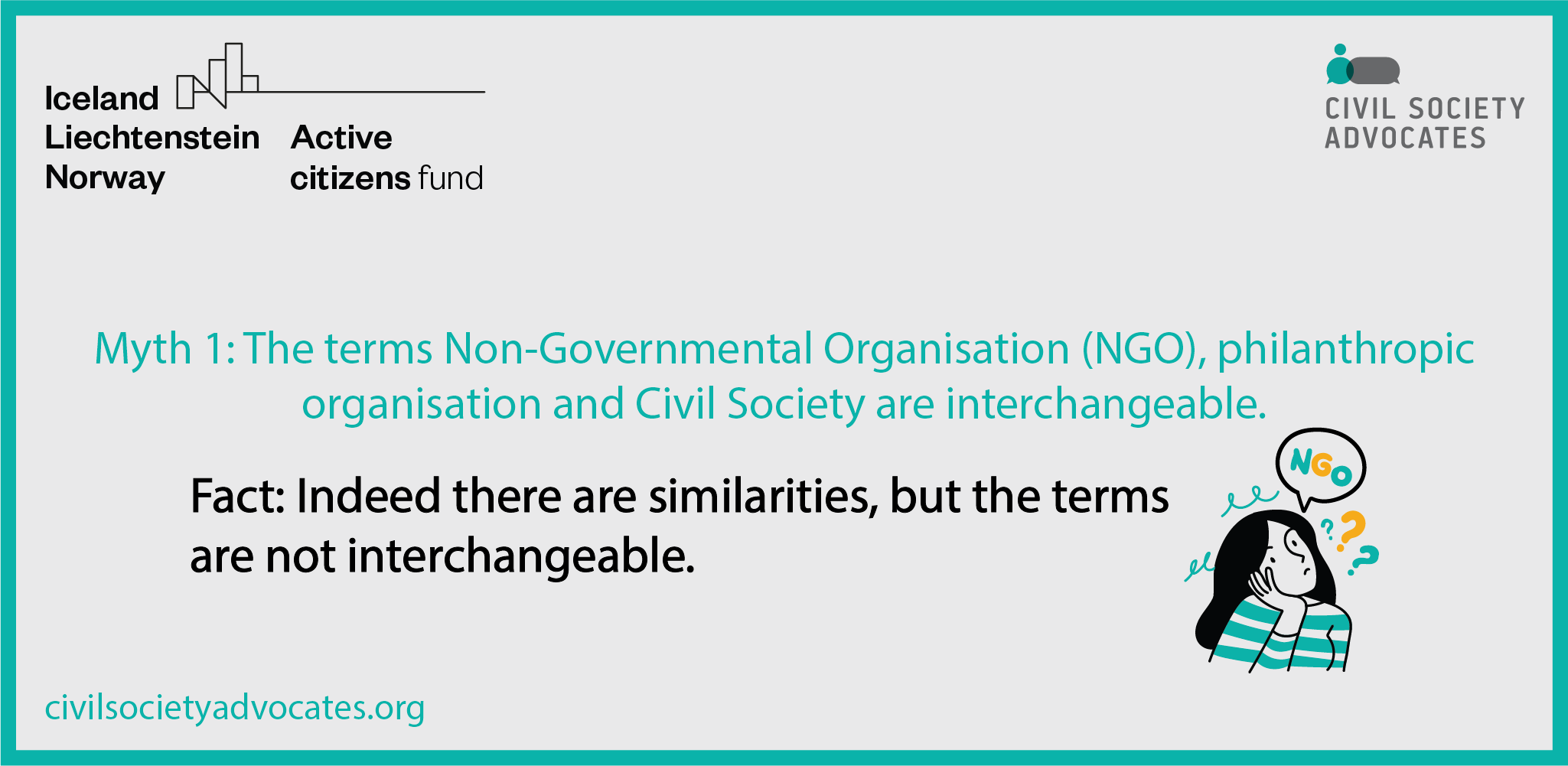
“10 Myths And Facts About Non-Governmental Organisations” is an awareness raising campaign by Civil Society Advocates debunking myths and misconceptions about the work of NGOs.
Myth 1, tackles CSOs and how their work differs from NGOs.
Learn more here.
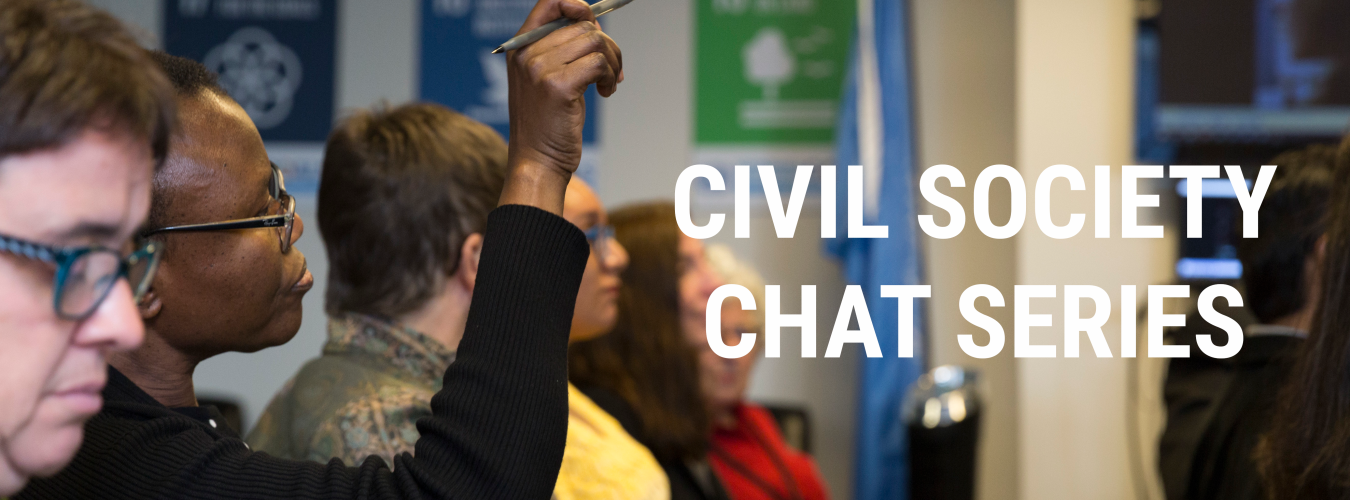
The ‘Tuesday Chat Series’ is a monthly meeting bringing together CSOs and the United Nations’ Civil Society Unit to discuss ideas, initiatives, and best practices for promoting positive change within societies.
Learn more here.

CIVICUS Voices is a podcast that brings you voices of people, communities, and organisations defending civil liberties and human rights; with themes ranging from the fight for climate justice to reproductive rights.
Check it out here.
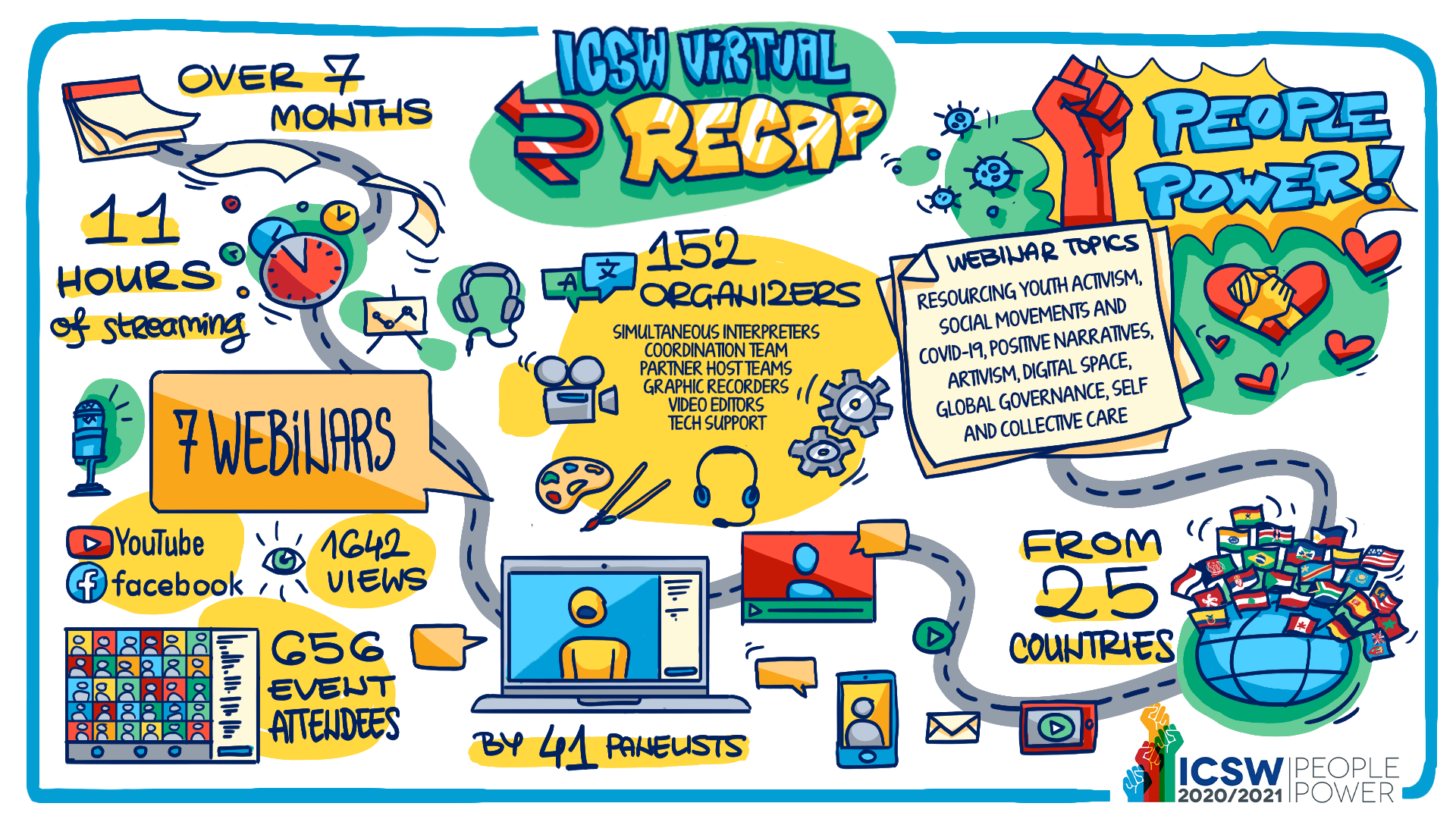
International Civil Society Week (ICSW) promotes a global conversation about the collective power of people acting together for social and political change. Check out the 7 virtual events of ICSW2020/2021, with themes ranging from ‘Artivism for Inclusion’ to ‘Positive Narratives for People Power’ here.
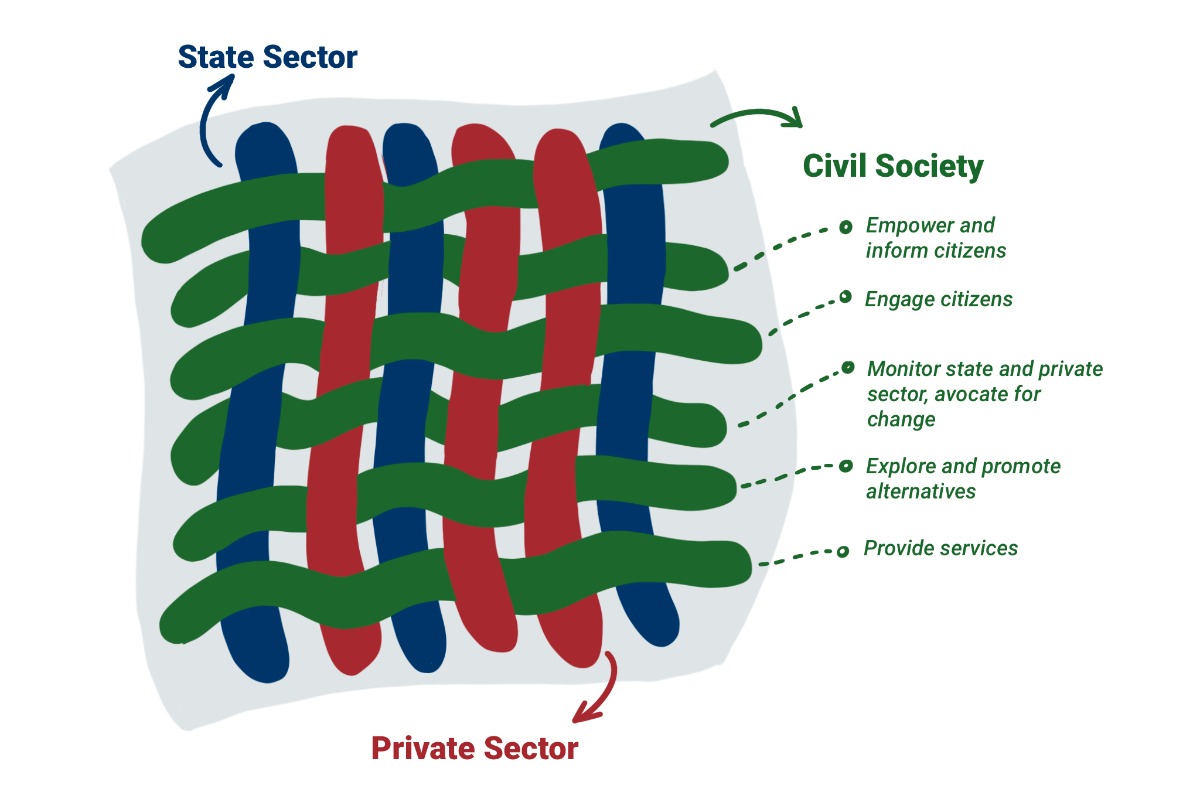
Civil society organisations offer a platform where people can talk, create, engage, and support each other. But they also do much more than that!
Learn more about why civil society is so important.
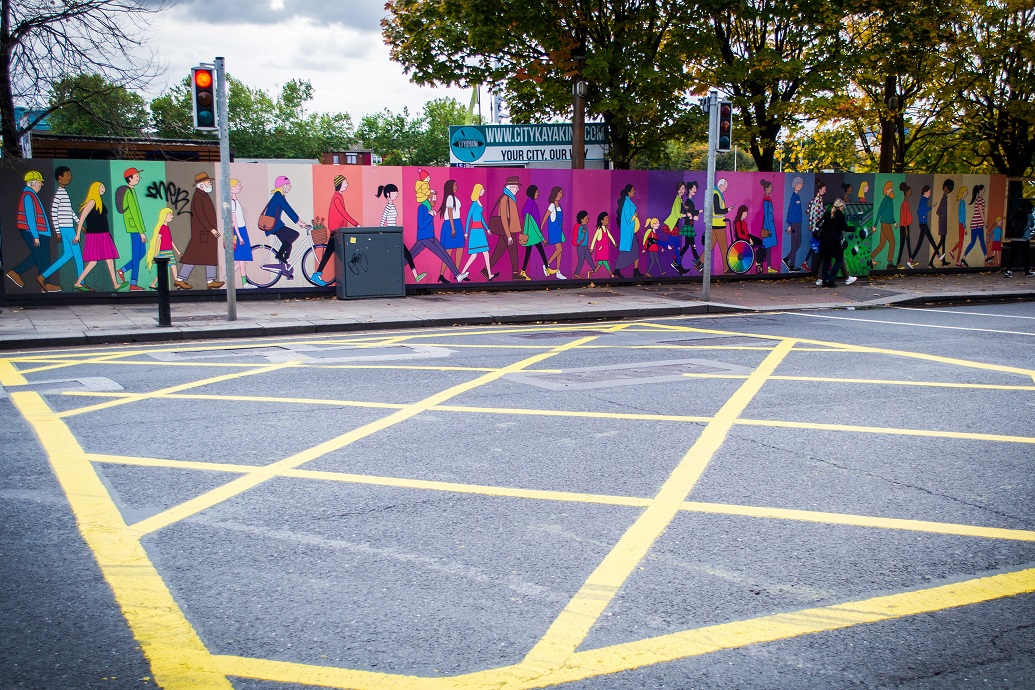
Who and what is ‘civil society‘?
Check out this article by World Economic Forum to learn more.
What are Civil Society Organisations (CSOs) and what do they do?
Learn more in this short video.
1st Awareness-raising campaign: Environment as Civic Right
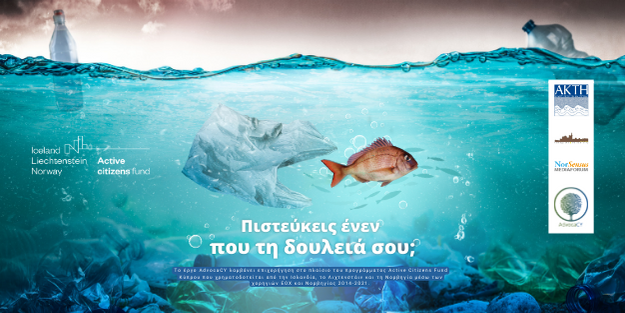

Did you know that access to a healthy and sustainable environment is a recognised human right? But what does that mean exactly? Here’s 6 key-things you need to know.
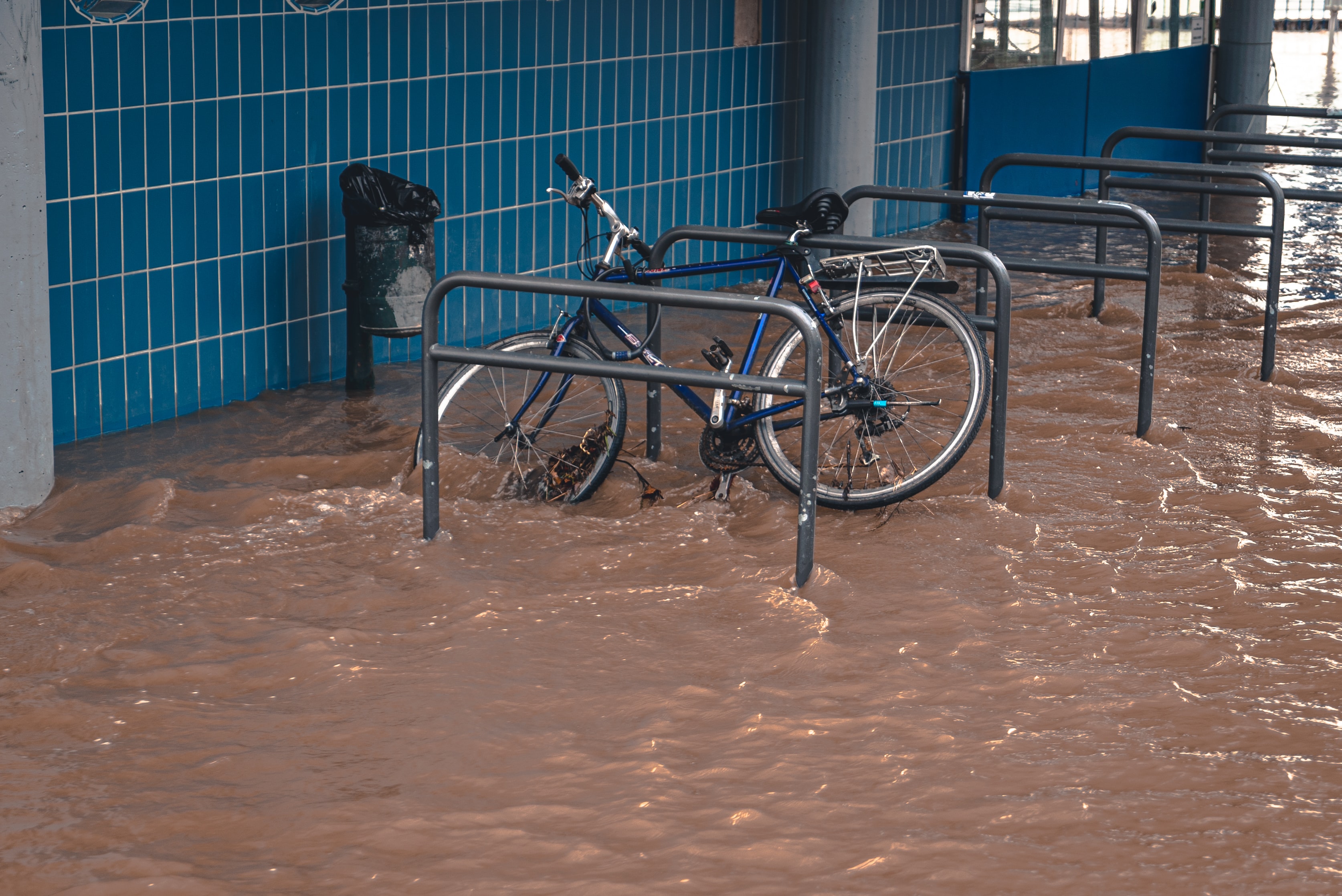
WWF’s Living Planet Report 2022 highlights the emergency of changing the ways we produce, consume and govern.
We hope it inspires you to be part of the change for building a nature-positive society.

Here’s 9 things YOU can do about climate change as an active citizen!

A clean and healthy environment is part of our rights and responsibilities as citizens.
What can you do to fight climate change?
Whether you love him or hate him, here’s some ideas by Bill Gates.
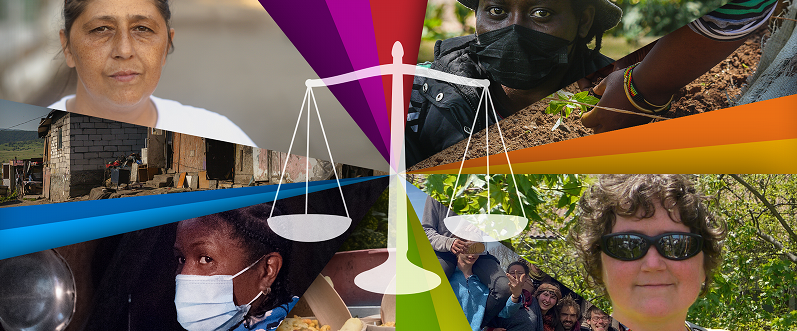
Civil rights and protecting the planet go hand-in-hand.
Learn why here.
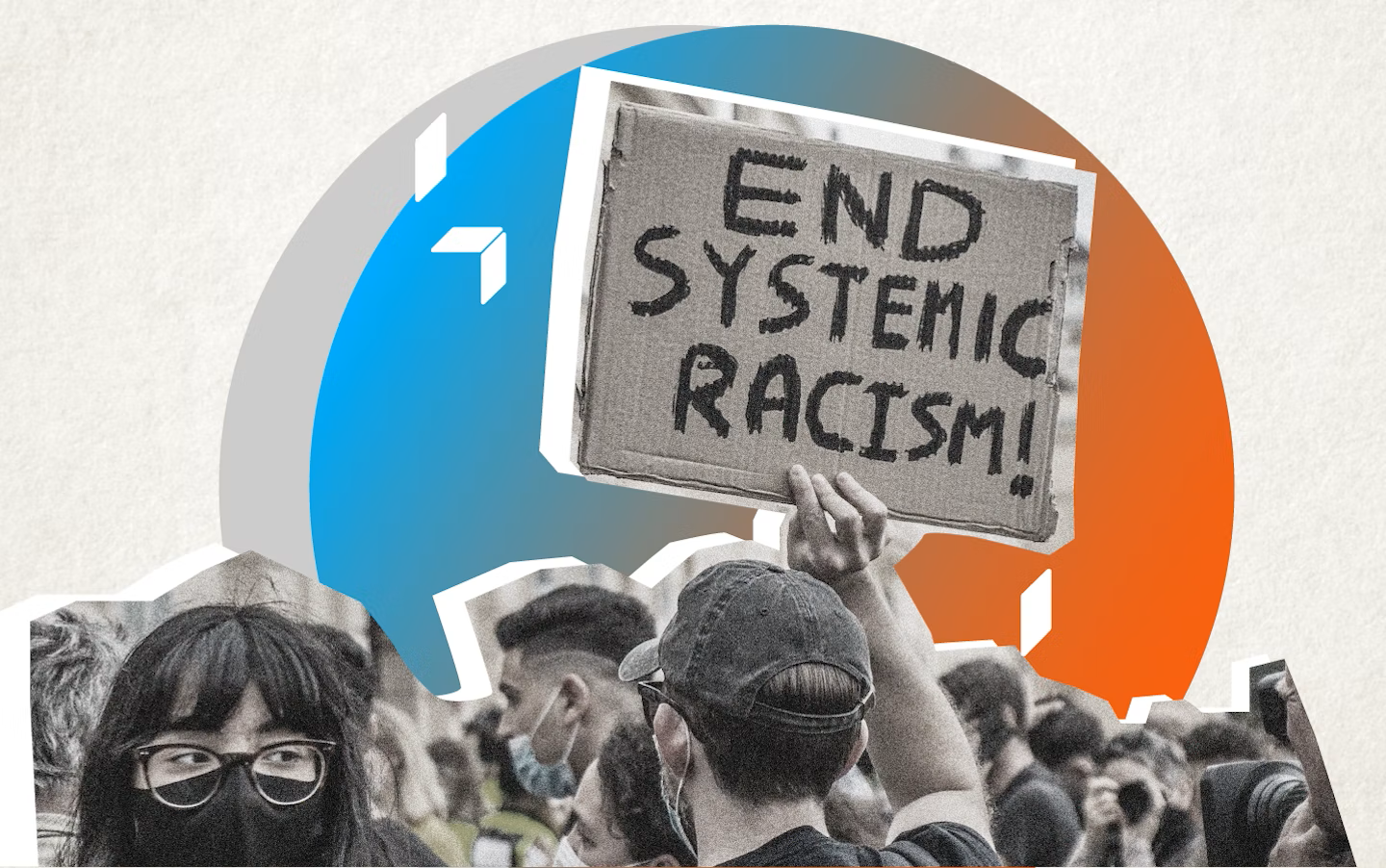
What are civil rights?

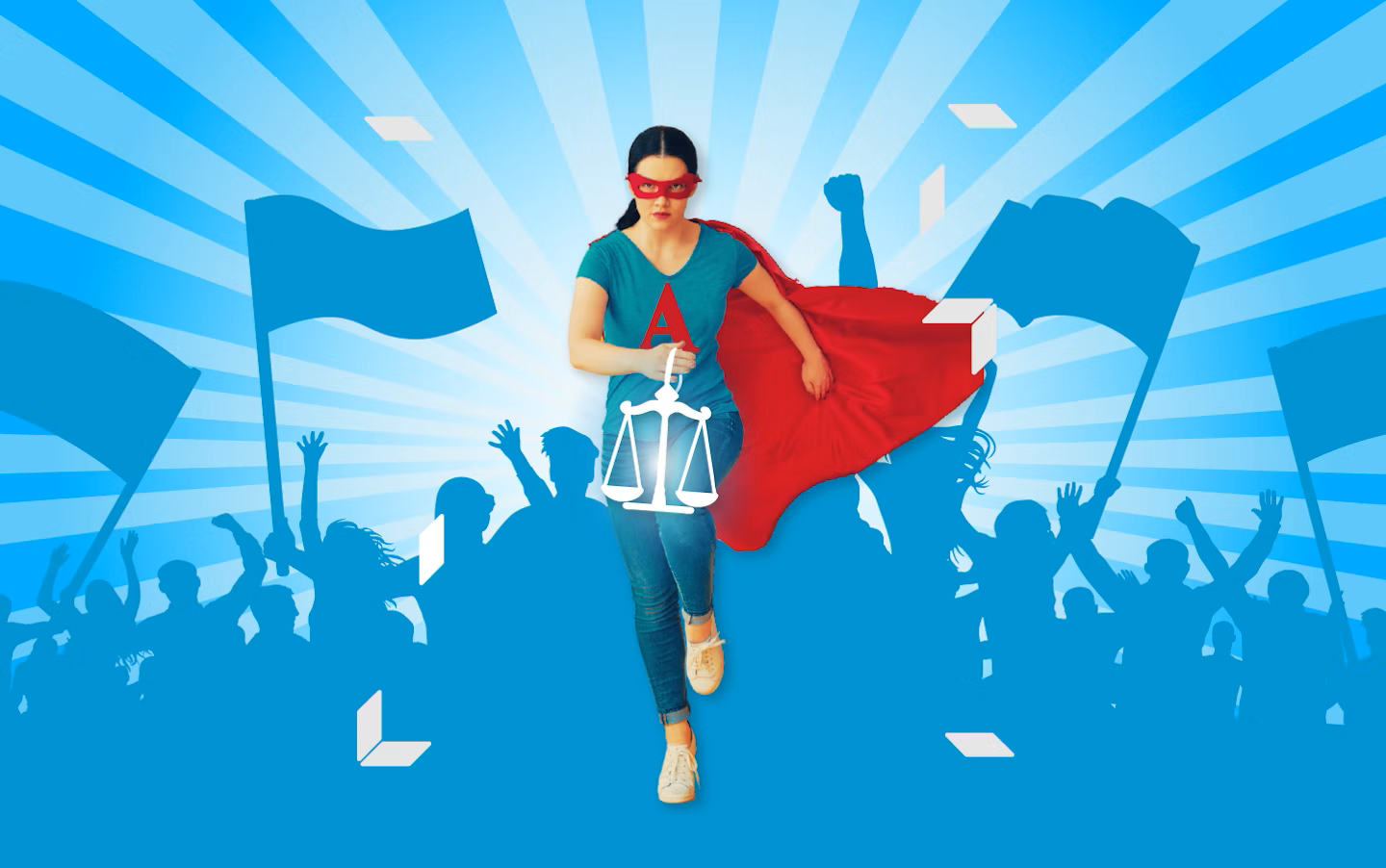
We are kicking-off our first AdvocaCY awareness raising campaign by taking things frοm the top. What does advocacy mean? Learn more here.
TIGANOKINISI: turning domestic used cooking oil into biodiesel
Turning a harmful waste, such as cooking oil, into biodiesel while promoting development and civic action
Combatting Desertification in Cyprus through Composting
The challenge
Cyprus is one of the 13 Member States that have declared to be affected by desertification under the United Nations Convention to Combat Desertification. Estimates suggest that by 2050, about 70% of agricultural land will be very sensitive to desertification and there will be a lack of water for irrigation. The enrichment of active soil carbon concentration and the enhancement of soil productivity are considered the most effective ways to combat desertification. This can be achieved by sustainable green waste management and particularly by composting of green waste and the application of compost to agricultural land. In rural and remote areas, green waste is currently mismanaged by being landfilled, burned, or inappropriately disposed of in open fields posing a constant fire hazard. Instead, this compost raw material should be treated locally in a simple and sustainable way taking into consideration scale and ownership. In order for any waste management scheme to be successful in these particular areas, economies of scale must be developed through the cooperation of neighbouring Local Authorities, farmers and relevant stakeholders.
The solution
The project aims to create a roadmap for 7 communities in rural Nicosia (Mitsero cluster) where a Waste Management Scheme for local agricultural green and garden waste is designed and proposed. The goal is to promote the composting of green waste and the application of compost in agricultural land by proposing a solution that addresses both desertification impacts and green waste management. The developed Waste Management Scheme is based on a symbiotic relationship between all key actors in the compost value chain, from waste producers to waste management, to compost end-users, that will minimise costs for compost production and application. The idea is to use existing resources and infrastructure to collect green wastes from farmers and garden wastes from the Local Authorities and to develop a basic local compost facility that will produce quality compost to be provided to local farmers for land application. All key actors will be the owners of the Scheme which will be financed by a combination of three options: farmer’s own contribution (membership fee), government incentives currently under development (subsidies for compost per treated land) and local authorities’ contribution.
This project is funded under the Cyprus Environment Foundation
MIO-ECSDE MEDITERRANEAN ACTION DAY 2020: Fishermen for the Akamas Marine Protected Area
The Akamas Pensinsula in Cyprus has been designated a Natura 2000 site for its rich and pristine terrestrial biodiversity. The marine area around the Akamas Peninsula has also been designated as a Marine Protected Area, the only one in Cyprus, because it is home to the island’s most important marine turtle reserve. Nonetheless, the wider Paphos District, within which the Akamas Pensinsula is located, has seen rapid development in recent years, as a result of increased touristic and foreign investment opportunities. Consequently, there is an ongoing, often heated debate, on the need of the conservation status of the peninsula as most of the land is privately owned. At the same time, the Cypriot fishing community, already struggling as a result of the relatively poor, oligotrophic waters of Cyprus, is eager to expand its fishing area within the Akamas Marine Protected Area. The root cause of the problem is a lack of understanding of the importance of the Akamas Natura 2000 site not only to the local and national environment but also to the local and national economy.
AKTI has extensive experience in working with local stakeholders in the wider Paphos/Akamas area and in environmental awareness-raising in general. This experience has demonstrated that bridging the knowledge and awareness gap can have significant positive impacts in changing behaviors and supporting environmental protection actions. A notable example is the very recently launched by AKTI (June 2020) Fishing for Litter initiative in Paphos (the first in the Republic of Cyprus), under the name Seanergy, with the active and eager collaboration of the Paphos District Fishermen’s Union. These are the same fishermen that operate in the periphery of the Akamas Natura 2000 site!
Also through several other activities in the area (such as Blue Cafes, the MELTEMI project activities etc), for the last 10 years, AKTI has created a base of stakeholders that can act as a core group to spread the word that protecting Akamas as a precious MPA is a win win situation! Through this proposal, AKTI would like to build on the success of its activities in the Akamas Pensinsula and boost public engagement so as to have more stakeholders supporting the protection of Akamas Natura 2000 site.
This has been achieved through the organization and implementation of a series of awareness-raising activities, as follows:
✅ The organization of a hike in the Natura 2000 site and more specifically at Avakas Gorge
✅ The implementation of semi-structured interview, virtual and over the phone, with fishermen, NGOs, tour operators and educators in the area to identify the main bottlenecks as well as solutions on how the Akamas Marine Protected Area can become a significant asset for the economic prosperity of the area.
✅ A social media campaign on Natura 2000 and especially the Akamas site.
Urban Sustainability
Climate Change impacts in Cyprus’ Cities are significant. The need to build urban resilience is imperative, at a bicommunal level, both in south and north. Through a novel, participatory, solution-oriented decision support process, we aim to develop policy tools and a roadmap for implementing solutions. We aim to enhance the awareness of society through participation, developing the feeling of ownership and long-term commitment through the development of the alumni group #TogetherForOurCities. The project is structured around three workshops, 2 mini-workshops one in the south, one in the north followed by a Final Workshop. The major target groups are decision makers and citizens, local Authorities, teenagers/youth, educators and professionals, e.g. urban planners, landscapers, tourism. This activity will initiate the involvement of this wide spectrum of citizens in the effort to build city resilience around the three main pillars: urban green, sustainable mobility, and nature-based solutions. Each workshop will include training/capacity building and a special “smart” session of a participatory and decision support process to identify gaps-needs-suggestions. The experts will be both Turkish and Greek Cypriots. A British expert will be invited for the Final Workshop, where results will be combined, prioritized and will lead to the policy tool and the road map.
The Urban Sustainability Project will run from September 2021 to March 2022, is supported by the British High Commission in Cyprus and is funded as part of the International Programme Fund of the Foreign, Commonwealth and Development Office.
Το Νερό είναι στα Χέρια μας (Water is in our Hands)
A project in collaboration with Finish and Strovolos Municipality, aiming to reduce water use in Nicosia. The project is run in the area of Strovolos in Nicosia where businesses in the area are identified and visited to distribute a kit including water-reducing filters. These filters are installed in the businesses and the water usage documented over the period of a year. The aim of the project is to save 1 million litres of water in the area over the span of that year.
Astrotourism
Astrotourism is a 36-month long project funded by the Research and Innovation Foundation.
The project aims in using a professional approach in astrotourism product research and development for Cyprus along with a high-end astrotourism policy and governance.
Astrotourism’s research objective is to initiate a new section in the Cyprus tourism industry by increasing the number, the quality, the expenditure of the tourists and the number of local jobs in the periphery. Within this objective, we aim to research and create direct and indirect experiences within real, virtual and blended augmented reality environments where the visitor could expand his/her astronomical knowledge in a practical, simple and efficient way. This experience will be an added value tool for Cyprus, where the weather conditions secure clear skies for most of the days and nights. The overall goal is to conduct research that will focus on “beyond the state-of-the-art” innovation in the field of astrotourism leading Cyprus to be added on the world map of the astrotourism “hot” destinations and creating the proper environment to host and offer astronomy experiences for both experts and enthusiasts at an entry level.
Cyprus has one of the clearest night skies as well as optimal geographical location in the world, offering great advantages for astrotourism development.
Added value of the project:
- will strengthen the tourism competitiveness in Cyprus;
- will research and develop an innovative product that will give Cyprus the leverage to include itself in the international arena of astrotourism destinations;
- will provide solutions in diminishing the long-standing problems of tourism in Cyprus, i.e. the low-income tourism & and the seasonality issues;
- will give dedicated care for the environment;
- will provide the opportunity for many local citizens to experience and learn about the universe in both real and virtual environments;
- will be the driver for the creation of local jobs.
Project products:
- Astro-Parks & Astro-Villages Eco-System set-up.
- Astro-Tour Guides, Material and Training: fun-and-learning activities for age groups 3-5, 6-9, 10-12 to be implemented in Astro-Parks.
- Astro Programme & Astro Events: Yearly Calendar of Astronomical Events and a calendar specifically highlighting high-profile astronomical phenomena visible from Cyprus.
- Astro-Tourism Packages: for attracting visitors to the astroparks and astrovillages, and to be used for the pilot study.
- Material on augmented reality/virtual reality.
- Strategic Business Plan: for the commercialization of the Astrotourism project.
The project consortium is composed by seven partners with different expertise in relation to the project. Along with AKTI, Project and Research Centre, the project’s consortium is consisted by Top Kinisis (coordinator), the Research Centre on Interactive Media, Smart Systems, and Emerging Technologies (RISE), the University of Nicosia Research Foundation, the Enrico Fermi Institute at the University of Chicago, Adelve and 1010 Asteroskopeion.
Ocean Conservancy: Citizen-science, Advocacy and Social Co-Responsibility for Trash Free Seas in Cyprus
A recent EU survey on the environment demonstrated what we have long known: while Cypriots express concern about the environment they are unlikely to act on environmental issues at the individual level. In the run-up to the 2019 ICC, AKTI launched a media campaign to encourage individuals to act spontaneously, as responsible citizens, against marine litter. The campaign was named “#potavristou”, which literally means “reach out” in the Cypriot dialect, but also has the meaning of “giving a helping hand”. AKTI, through its social media and with the support of several public media (TV & radio), asked individuals to simply “reach out”, anywhere they were on September 21st, collect the litter lying around them, take a photo and post it on social media using the hashtag “#potavristou”. Facts on marine litter and plastic pollution were shared on social media in the week leading up to the event to exemplify the #potavristou meaning. Over 500 people posted pictures and data on collected litter all around the coastline of Cyprus. It was a great achievement for Cyprus! This was the first campaign that targeted the self-responsibility of Cypriots as citizens, without organized groups or beach clean-up events on specific beaches. It is obvious that there is public sensitivity on the issue. And there is a definite need for more concerted actions, awareness, and stronger advocacy work. Cyprus has one of the lowest recycling rates in Europe. While lack of citizen action plays a role in this, inappropriately enforced legislation is also an important contributor. A striking example of this is the fact that the hospitality sector (HoReCa) is not obligated to separate and recycle their waste! With this proposed activity, capitalizing on the success of #potavristou, AKTI aims to strengthen its outreach for enhancing citizen engagement and its capacity to offer broader advocacy to a larger spectrum of citizens groups through (1) empowering/encouraging citizens to act against marine litter, (2) gathering important-for-research citizen-science data that are scarce in Cyprus, (3) liaising with key stakeholders to identify effective measures to stop the flow of litter to the marine environment.
The proposed activity is supported by the Cypriot Commissioner for Environment.
Activity Goals:
– Instill a sense of social co-responsibility about marine litter by capitalizing on the success of the 2019 ICC in Cyprus and the #potavristou campaign.
– Collect important citizen-science data to inform AKTI’s future actions/messages on marine litter.
– Advocate for stricter measures to reduce the flow of litter to the marine environment.
Procedure:
A. Call to Action for the 2020 ICC and #potavristou initiative using the “Clean Swell” application to record the litter collected.
B. Brand Data Surveys: AKTI will select 3 beaches around the island and implement the Ocean Conservancy Brand Data Survey in October/November 2020, identifying the main brands but also determining whether this litter originates in Cyprus or is washed ashore from neighboring countries.
C. Policy Tool Development: In the winter 2020/spring 2021 AKTI will implement 3 specially designed workshops to gather stakeholder opinions on suitable, effective and applicable measures to address the marine litter issue. The first two workshops will take the form of ‘Blue Cafes’ i.e. get togethers at informal settings where participants, comprised of a mixture of local decision-makers, business owners (i.e. hospitality sector), NGO representatives and citizen groups will discuss the issue of marine litter within their area (sources, impacts) and identify potential solutions. The third workshop will be the wrap-up event: it will bring together decision-makers at the local and national level. Based on a dedicated decision support method and the suggestions from the Blue Cafes, the participants will identify and select the most effective measures to address marine litter in Cyprus. The outputs from this workshop will be used to form a Policy Tool i.e. an Advocacy Tool for AKTI to present to high-level decision-makers. The support of the Cypriot Commissioner of the Environment is a very important asset for the action’s success.
The Seanergy Project
Η CYMEPA, το Κέντρο Μελετών και Έρευνας ΑΚΤΗ μαζί με τα εστιατόρια Ocean Basket ανακοίνωσαν την έναρξη της δράσης Ψαρεύω τα Σκουπίδια (Fishing for Litter) στο πλαίσιο του προγράμματος “The Seanergy Project”, την Παρασκευή 3 Ιουλίου στο λιμανάκι της Κάτω Πάφου σε συνεργασία με τον Σύνδεσμο των ψαράδων της Πάφου. Η δράση «Ψαρεύω τα σκουπίδια» θεωρείται από την Ευρωπαϊκή Επιτροπή ως καλή πρακτική για την μείωση των σκουπιδιών της θάλασσας. Ξεκίνησε από ένα λιμάνι στην Ολλανδία και σήμερα υλοποιείται σε πάνω από 70 ψαρολίμανα σε όλη την Ευρώπη. Στην Κύπρο υλοποιείται για πρώτη φορά. Στόχος είναι να ενημερωθούν οι ψαράδες μας, οι Αρχές και το κοινό της Κύπρου για το ζήτημα των σκουπιδιών της θάλασσας.
Οι δύο οργανισμοί παρείχαν στους ψαράδες εκπαίδευση και ειδικές μεγάλες ανθεκτικές σακούλες, για να μαζεύουν τα σκουπίδια που πιάνονται στα δίχτυα τους και να τα φέρνουν στην ξηρά.
Επιπλέον, η δράση στοχεύει στην καταγραφή των τύπων και των ποσοτήτων των σκουπιδιών που συλλέγονται. Τα στοιχεία αυτά αποτελούν πολύτιμα δεδομένα για την επιστημονική έρευνα και θα καταχωρηθούν στην Περιφερειακή Βάση Δεδομένων της ΑΚΤΗΣ.
Τη δράση υποστηρίζει η εταιρεία εστιατορίων Ocean Basket με τα έσοδά της από την πώληση επαναχρησιμοποιούμενων τσαντών.
Φωτογραφίες και βίντεο από την Ενακτήρια Εκδήλωση, μπορείτε να δείτε πιο κάτω:
#επιΜενουμεΜαζι : Στηρίζουμε τους μικρούς παραγωγούς της Κύπρου.
#ΑΚΤΙ_ngo #greencluster
Το Κέντρο Μελετών και Έρευνας ΑΚΤΗ ξεκινά σήμερα εκστρατεία για την υποστήριξη μιας μεγάλης ομάδας συμπολιτών μας που έχει πληγεί από την καραντίνα: οι μικροί παραγωγοί της Κύπρου, βρίσκονται σε όλη την επικράτεια, παράγουν καταπληκτικά προϊόντα και αυτή τη στιγμή έχουν αποκλειστεί από τις αγορές και δεν έχουν τρόπο πρόσβασης σε πελάτες.
Η ΑΚΤΗ εδώ και 5 χρόνια έχει αναπτύξει την πλατφόρμα μικρών επιχειρήσεων της Κύπρου, Green Cluster (http://www.greenclustercy.org) που σήμερα αποτελεί το μεγαλύτερο δίκτυο μικρών επιχειρήσεων της Κύπρου με 380 μέλη. Με βάση την πατφόρμα μας, ξεκινάμε σήμερα μια προσπάθεια να φέρουμε σε επαφή τους «αποκλεισμένους» καταναλωτές με τους «αποκλεισμένους» μικρούς παραγωγούς. Έχουμε ήδη μιλήσει με πάνω από 50 παραγωγούς, που είναι σε απόγνωση και πιστεύουν σε αυτή την προσπάθεια: μέλι, χαλούμι, τυρί του Πάσχα, χαρουπόμελο, τραχανάς, ραβιόλες, λάδι και άλλα πολλά. Δεν έχουν μεν δίκτυο διανομής, αλλά αν έχουν παραγγελίες θα συνεργαστούν και μεταξύ τους και θα βρεθεί μια λύση.
Καλούμε τους συμπολίτες μας να επισκεφθούν την πλατφόρμα της ΑΚΤΗΣ, www.greenclustercy.org, και να ακολουθήσουν την ΑΚΤΗ στο fb ΑΚΤΗ / AKTI Project and Research Centre, στο Instagram https://www.instagram.com/akti_ngo/. Κάθε μέρα θα παρουσιάζουμε παραγωγούς από τα μέσα κοινωνικής δικτύωσης και την ιστοσελίδα μας. Ο κάθε πολίτης ας κάνει την προσπάθεια, να βρει τους παραγωγούς που είναι όσο το δυνατό πιο κοντά τους ή και μακρύτερα, να επικοινωνήσει, να προσπαθήσουν μαζί να βρουν λύση για το πώς θα γίνει η διανομή. Εμείς στην ΑΚΤΗ θα επικοινωνήσουμε με εταιρείες διανομής, π.χ. φαγητού, μεταφορικές εταιρείες κλπ για να μπορέσουμε όλοι μαζί να βρούμε τη λύση. Καλούμε όποιον μπορεί να βοηθήσει να επικοινωνήσει μαζί μας.
Η κοινωνική αποστασιοποίηση δεν σημαίνει να κλειστούμε στο καβούκι μας και να μιζεριάσουμε.
#ΜένουμεΣπίτι και #επιΜενουμεΜαζι: Στηρίζουμε τους μικρούς παραγωγούς της Κύπρου.
Σχετικά με την πρωτοβουλία της ΑΚΤΗς, παρακολουθήστε τις πιο κάτω συνεντεύξεις της Προέδρου του Δ.Σ. της ΑΚΤΗς, Δρ. Ξένιας Ι. Λοϊζίδου:
https://www.facebook.com/farosonair/videos/544690592714752/
https://www.facebook.com/watchparty/523422311937383/?entry_source=FEED
https://www.youtube.com/watch?v=HerxZxGAtPY&t=1s
———————————————————————————————————————
Let’s #PersistTogether: We support small Cypriot producers
AKTI Project and Research Center is launching a campaign today to support a large group of our quarantine-affected citizens: the small-scaled Cypriot producers all over the country, are producing great products and are currently excluded from the having no way to reach their customers.
AKTI has developed during the past 5 years the Cyprus Small Business Platform, Green Cluster (http://www.greenclustercy.org), which is today the largest small business network in Cyprus with 380 members. Based on our platform, today we are starting an effort to bring ‘excluded’ consumers into contact with ‘excluded’ small producers. We have already spoken to over 50 producers who are in despair and believe in this endeavour: honey, halloumi, Easter cheese, carob syrup, tarhana, ravioli, oil and many more. They do not have a distribution network, however if they have orders they will cooperate with each other and a solution will be found.
We invite our fellow citizens to visit AKTI’s platform, www.greenclustercy.org, and follow AKTI on Facebook ΑΚΤΗ / AKTI Project and Research Centre and on Instagram https://www.instagram.com/akti_ngo/. Every day we will present producers on our social media and website. Let every citizen make the effort to find the producers that are close to them or even further away, contact them and work out a solution on how to get their products delivered. We at AKTI will contact distribution companies, e.g. food, shipping companies etc so we can all come together and find a solution. We invite anyone who can help to reach us. We can set up this network of mutual support.
These days let’s all show solidarity. Social distancing does not mean stay locked, impassive and miserable. We #StayHome and #PersistTogether: We support small Cypriot producers.
SEALIVE: Strategies of circular economy and advanced bio-based solutions to keep our lands and seas alive from plastics contamination
Project Background:
SEALIVE aims at demonstrating innovative circular strategies for bio-based plastics in land and sea applications. The project will be driven by economically and technically sustainable business models based on materials with advanced properties, design for circularity techniques and end-of-life solutions. It will establish a partnership of raw material providers, convertors, end-users, recyclers, policy experts, certification organizations and NGOs to demonstrate solutions within a shared vision for circular plastic strategies. Solutions for reusable, recyclable and biodegradable bio-based plastics to prevent and significantly reduce marine pollution of all kinds will be demonstrated in four pilot territories (Cyprus, Ireland, France and Denmark, or Non-European site) and will be applied to 8 end-applications with high potential for pollution reduction of soils and water media: rigid food containers, flexible packaging, agricultural films, fish crates, fishing nets and aquaculture mesh bags. Pre-normative research will be carried out to improve current standards for biodegradation, composting and recycling with regards to eco-toxicity, safety and influence of plastic ageing. Policy recommendations at EU and global level will be provided in order to build a common framework enabling pollution reduction of land and sea via sustainable bio-based plastics solutions.
SEALIVE’s General Objective:
The general objective of SEALIVE is to develop innovative business models for advanced bio-based plastics directly supporting the Plastics Strategy set by the EC. The project aims at standing as a reference to be disseminated and widely used in Europe and beyond.
To achieve this goal SEALIVE will implement sustainable solutions based on novel bio-based plastics to avoid plastics ending-up on land and sea. Along the SEALIVE project, we will join the ambition of biopolymer producers with cutting-edge processing technologies, to follow the best end of life channels, targeting to build up a strong reference framework for the policy-makers and harmonisation.
AKTI’s Specific Objectives:
AKTI Project and Research Centre as a Partner to the Project will be involved in policy formulation and knowledge transfer to end-users. Specifically, AKTI will be responsible for:
– identifying the barriers, opportunities, synergies and coherence problems, the relevant legislation and policy instruments related to bio-plastics;
– proposing policy recommendations at the EU and global level, supporting the development and the uptake of new materials needed to unfold the full potential of bio-based plastics in the context of the existing policy framework;
– organizing media events in non-partners countries to create a network that will facilitate the expansion of the Project and contribute to the sustainability of SEALIVE and its outputs/products during and after the funding period.
SEALIVE_Press Release_KoM_FINAL_16 01 20
For more details about SEALIVE and for updated information on the project’s progress please visit www.sealive.eu
Sincerely, Food Cyprus
Tackling the Universal Problem of Food Waste
The Cypriot production of household waste per capita is among the highest in Europe. According to the Statistical Services of the Republic of Cyprus in 2017 the waste generation reached 636 kg per capita, placing us second only to Denmark which generates 781 kg. Overall European Union averages to 486 kg per capita, a third of which (i.e. 88 million tons) is Food Waste. This also means that one third of food produced for human consumption in the world is lost or wasted, while one out of nine people globally is undernourished! (details and references can be found in the notebook and booklet attached below as pdf)
Sincerely Food, Cyprus, is an eight-month long, bi-communal project which is EU-funded under ‘Global learning approach on food waste in non-formal education’ (Project No. CSO-LA/2017/388- 342). It aims to utilise the engaging material developed by ‘Sincerely, Food’, adapt it to the Cypriot reality, disseminate it and raise awareness about food waste to as wide an audience as possible.
Reasons for the importance of ‘Sincerely, Food Cyprus’:
1. It takes a lot of time, human work and resources to produce food.
2. More than a half of food waste EU-wide is generated in homes.
3. Consumers have a big role to play in tackling food waste.
4. Tropical forests are being cleared to produce wasted
5. Food waste contributes to the global warming which causes extinction of animals and plants.
6. It’s easy to avoid food waste by planning your food needs.
7. Food will stay fresh much longer if we store it correctly.
8. Reducing food waste means saving money, resources, and our Planet.
Main Project Activities:
1.”Food for Peace” campaign: A bi-communal action which will focus on the culinary students of two Universities.
2.Presentations at schools to create awareness.
3.Door-to-Door Awareness Raising in two Municipalities.
4.Cooking Competition focusing on reducing food waste during the preparation process.
The focus will be on those target groups that have the greatest potential to make a difference in the amount of food waste that is being created: urban households, domestic workers from third countries, culinary students and children. A decrease in the food waste will contribute to meeting the following UN Sustainable Development Goals:
AKTI supports the Sustainable Development Goals
Urban Households amount to more than half of the food waste- other sources of food waste include retail and wholesales, production, processing. Thus, they are our main target group and most of our activities will directly or indirectly lead to a creation of their awareness. One of the actions will be a Door-to-door Awareness Raising in two Municipalities, one in the north part of Cyprus and one in the south part.
University culinary students, children and youth are particularly important, since environmental awareness and consciousness are formed from an early age. The project will therefore encourage children and youth to become involved in the reduction of food waste in households. Through the involvement of university culinary students, we hope to develop a more considerate and environmental culture to could be adopted by the future cooking professionals, cooks and chefs. Project activities with these target groups in mind include Interactive Presentations for awareness raising and promotion of best practices in schools and the “Food 4 Peace” bi-communal campaign which will reach two Universities, one in the northern part and one in the southern part of Cyprus.
Domestic Workers are the ones managing the cooking and consumption in many of the households in Cyprus, a fact that makes them a very important contributing factor on Food Waste. Informational material will be translated in Filipino as well, the language of the majority of domestic workers in Cyprus. Furthermore, the closing event will be a Cooking Competition in which one of the criteria will be Zero Waste. Such a scheme is also promoting the integration of migrants in the Cyprus community.
Guides:
Little Informational Booklet – English
Little Informational Booklet – Greek
Little Informational Booklet – Turkish
Little Informational Booklet – Filipino
 This website was created and maintained with the financial support of the European Union. Its contents are the sole responsibility of AKTI Project and Research Centre and do not necessarily reflect the views of the European Union.
This website was created and maintained with the financial support of the European Union. Its contents are the sole responsibility of AKTI Project and Research Centre and do not necessarily reflect the views of the European Union.
BeMed: The Cyprus Responsible Coastal Businesses Network against Single-Use Plastics
Marine litter is an environmental, economic as well as human health problem with no simple solution. It poses a global, complex and multi-dimensional challenge with significant implications for the marine and coastal environment and human activities all over the world. Single-use plastic products constitute more than 70% of all marine litter items. The European Commission in May, 2018 proposed new EU-wide rules that target to reduce the ten most common single-use plastic products found on Europe’s coastal areas and seas.
This year-long project funded by the Beyond Plastic Med Foundation aims to raise awareness on the impact of single-use plastics on the environment and consequently on human health and provide practical solutions to the problem targeting key stakeholders of the Cypriot society, specifically coastal businesses.
📌The specific OBJECTIVES OF THE PROJECT are:
1️⃣. Awareness-raising of key stakeholders who contribute to, are affected by and are responsible for taking decisions regarding the usage of single-use plastics, particularly coastal businesses and local authorities, as well as the general public. Promote the need to reduce the use of single-use plastics, presenting their detrimental effects on the marine environment and offering a solution oriented campaign (as presented in following points (2) and (3).
2️⃣. Collection and dissemination of best practices for the reduction of single-use plastics through synergistic, novel and practical solutions to the problem. Collaboration of the key stakeholders will be encouraged and recorded.
3️⃣. Expansion of civic engagement through capacity building and skills development in conscious single-use plastic usage, in order to have a societal level change (i.e. coastal business owners, beachgoers, local authorities, students) in regards with the latest proposed EU Directive which aims to reduce marine litter.
📌 The six activities that were implemented over the duration of the project are:
1️⃣. Field trips for marine litter assessment and source identification were implemented, engaging coastal business owners, beachgoers and local communities. More specifically, AKTI implemented annual clean-ups on selected beaches with the collaboration of the Responsible Coastal Businesses, local authorities, schools, and volunteers. A total of 13 marine litter assessments were implemented: 12 beach clean-ups and 1 seabed clean-up, with the participation of almost 400 volunteers, including representatives of 10 local authorities.
AKTI is the national coordinator of the International Coastal Cleanup (ICC) of the Ocean Conservancy in Cyprus. Therefore, all the clean-ups were implemented using the International Coastal Cleanup Protocol. The data have been included in AKTI’s Regional Marine Litter Database and have also been submitted to the ICC. Over 18,000 litter items were collected, weighing more than 300 kilos.
📸🌊Some photos from the Beach and Seabed Cleanups, are available here:
2️⃣. A Guide that highlights the practices that can be applied by each stakeholder/target group in order to reduce the use of single-use plastics, has been developed, printed and distributed to all the Network Members as well as the coastal authorities we visited and informed about single use plastics. The Guide developed as part of this activity, aims to support businesses that are members of the Cypriot Responsible Coastal Business Network to implement practices that will minimize their consumption of single-use plastics, reduce the amount of litter that they produce, and thus contribute to the overall reduction of marine pollution. In so doing, the guide will help prepare coastal businesses for the Single-Use Plastics Directive of the European Union, which will come into force in 2021 and that will ban the use of the most common types of single-use plastics that end up in the marine environment. In summary, the guide seeks to fill a significant information and awareness gap by engaging key stakeholder groups and encouraging them to make a difference by incorporating more sustainable practices in their operations and thus contributing to the fight against plastic marine pollution.
200 copies of the Guide (100 copies in English and 100 copies in Greek) were produced and distributed to the Members of the Responsible Coastal Business Network, and other stakeholders
An electronic version of the Guide, is available here:
3️⃣. Strengthened and expanded the «Responsible Coastal Businesses Network» to 204 members, through the implementation of an Extensive Awareness-raising Campaign, which was implemented from May 2019 to September 2019 (in the tourist season) targeting all coastal businesses on the island. In these campaigns, AKTI’s staff liaised with business owners/managers/employees, informing them about marine litter (sources and impacts) as well as about the upcoming European legislation on single-use plastics and how it affects them, and assisting them in implementing practices that will minimize their plastic production and thus minimize the potential for marine plastic pollution from their operations and their customers’ activities. The aim of the Network is to engage businesses in the fight against marine litter, by (i) raising awareness about the problem,(ii) sharing some best practices and examples on how to actively minimize their contribution to the problem through the Guide which was developed during the implementation of the project and distributed to coastal businesses and (iii) getting them invested in the protection of their nearby coastal environment as a means of securing and expanding their business.
✅ The Responsible Coastal Businesses Network is visible on this Map.
The awareness raising campaign also included visits to 16 Coastal Authorities to inform them about the project and the serious problem of single-use plastics, their impact on the environment and consequently on human health.
The involvement of representatives from these local authorities in the awareness raising visits to coastal businesses, added particular clout to this activity.
4️⃣. School visits were implemented to inform and raise awareness in children and youth about the problem of single-use plastics and its negative impacts on the marine environment. Dr. Michael Loizidis and Dr. Xenia I. Loizidou prepared an interactive presentation on marine litter and provided a ‘train the trainers’ workshop to AKTI’s team so they could more effectively engage students of all ages during the school visits. Presentations were given at 10 schools reaching 1244 students.
During these interactive presentations, children learned about marine litter and specifically the impact of single-use plastics on the marine and coastal environment, through fun games and hands-on activities. The presentation finished with ways to reduce single-use plastic consumption and a call to action.
📸Some photos from the Training of the Trainers by Dr. Michael Loizides and Dr. Xenia Loizidou for the presentations in schools, are available here:
📸Some photos from the School Visits, are available here:
In the framework of the project, an additional action was implemented which was not included in the project’s specific goals. An awareness raising campaign on marine litter was implemented in 2 Cypriot Universities, twice at Cyprus University of Technology and once at University of Cyprus, to inform and raise awareness in 400 students about the problem of single-use plastics and its negative impacts on the marine environment.
📸Some photos from the Awareness Raising Campaign in Universities, are available here:
5️⃣. A highly publicised Final event was implemented at the end of the project. The ceremony took place on June 5, 2020 on the occasion of the World Environment Day, at the Municipal Beach of Geroskipou in Paphos. During the event, the overall results of the initiative were presented, and two artistic installations on marine litter were inaugurated. For the installations, AKTI Project and Research Centre collaborated with the Municipality of Geroskipou and the Second Primary School of Geroskipou, under the supervision of Ms Elena Daniel, a Cypriot artist.
The philosophy behind the installation, is the participation of visitors to the beach in the drastic reduction of the inappropriate disposal of plastic waste. The installations are a fun and interactive way to engage children and adults alike in the fight against plastic marine pollution, and act as a reminder that we must find ways to adopt a more environmentally friendly lifestyle. The event took place in the presence of the Environment Commissioner of Cyprus Mrs. Klelia Vassiliou and was attended by over 60 people (observing social distancing practices), including the Geroskipou Mayor Mr. Michael Pavlides and council members, the artist of the installation Ms. Elena Daniel, the Chairperson of Fishermen Federation in Paphos Mr. Leonidas Leonidou, Koloni Green Point manager Mr. Michael Michael, media (TV, radios and newspapers/e-media), Members of the Paphos Winter Swimmers Association, Members of Paphos Fishermen Association, representatives of the First and Second Primary School of Geroskipou, the Gymnasium of Agia Paraskevi and Giannaki Talioti High School in Geroskipou, Members of the Cultural Movement of Geroskipou and Local Community Members. The Ceremony was hugely successful with high Media coverage and publicity, and all stakeholders gave AKTI very positive feedback!
You can find below news clips, about the final event:
📸Some photos from the Final Event, are available here:
6️⃣. Extensive communication and dissemination activities took place over the duration of the project, and especially at times when important activities were implemented, e.g. the project launch, the participation of a representative of ΑΚΤΙ in the Ocean Week in Monaco, the cleanup events, the plastic free July campaign through marine litter facts and tips about single use plastics, the awareness raising campaign against single-use plastics in Universities, the interactive presentations in schools about marine litter and the final event.
Communication and dissemination activities were inclusive of all means and media (print, online, social etc) and included 30 publications about the project by third parties (national circulation newspaper articles, online news portals etc.), 1 TV and 4 Radio appearance, 37 Facebook posts by AKTI with a total reach of 63,529 and 1238 likes, 16 Instagram posts by AKTI with a total reach of 6,168 and 665 likes, 9 YouTube videos uploaded on AKTI’s channel.
MarLitCy: Marine Litter for Synergies, Capacity-building and Peacebuilding
MarLitCy ‘Marine Litter for Synergies, Capacity-building and Peacebuilding’ building on the success of the MarLitCy (2014-2017), is a 36-month long, bi-communal project funded by the European Union, under the Civil Society in Action VI Programme.
MarLitCy aims to use the problem of marine litter as a tool for promoting dialogue and building closer relations between various unconventional target groups in Cyprus. This will be achieved through the implementation of activities that aim to raise awareness to key target groups and the general public about the issue of marine litter, and to promote the uptake of practices that aims to minimize the creation of marine litter across the island.
This project aims to enhance the role of civil society in active citizenship and decision making and to promote grassroots bi-communal collaboration, focusing on an environmental issue of European importance: marine litter. Marine litter is a powerful peace-building tool that has the potential to combat hatred and prejudices, while fostering cooperation among the two communities, providing a common win–win goal for all: keep our seas and coasts clean!
The project will contribute to the enhancement of the role of civil society in democracy, governance and peace building by using marine litter as a tool:
– To create an enabling environment to reduce marine litter
– To equip CSOs and other key stakeholders with the skills and tools to improve the marine environment
AKTI and the other project partners, Famagusta Walled City Association (MASDER), Enalia Physis Environmental Research Centre and Scuba Divers Association will focus their actions on the following target groups:
University students, children and youth are particularly important, since environmental awareness and consciousness are formed from an early age. The project will therefore encourage children and youth to become involved in voluntary activities, such as beach cleanups, promote active citizenship through the involvement of university students in the decision- making workshop, and support children and youth to express their views and opinions, share them with their peers and take action in identifying solutions through the joint competitions. The project places significant emphasis in creating opportunities for collaboration of children and youth across the divide, in a safe environment that will allow them to build group dynamics and work as a team, through the up- cycled competition, the field activities for university students and the joint final exhibition and event.
Coastal enterprises, the fishing industry and divers are directly exposed to the problem of marine litter. Marine litter can pose a threat to their business through the loss of tourism, loss of fish stocks, or risk to their customers. Project activities that involve the implementation of best practices, such as the “Responsible Coastal Businesses” campaign, the “Fishing for Litter” initiative and “Dive Against Debris”, have been developed with these target groups in mind. Not only will the involvement of coastal enterprises, fishermen and divers in these activities educate them, but it will also build capacity as they will learn new management tools and techniques and they will engage with their local community, other enterprises and university students, enhancing or even creating links between public-private sectors, youth and entrepreneurs.
Coastal local bodies will therefore have an important role to play in the implementation of these best practices and will thus become both project target groups and beneficiaries. The enhancement of collaboration between local bodies and coastal/marine entrepreneurs will lead to the mutual understanding of the issues faced and how to address them. Additionally, participation of local bodies in a workshop that will bring together key decision-makers and stakeholders to discuss the current problems and provide suggestions on the reform of relevant ‘legal text’ in the northern part of the island, to bring it in line with European Directives, will benefit local bodies both in terms of greater understanding and collaboration and in terms of cleaner and safer beaches/sea.
The activities of the project have been designed to meet the needs, capacity and expertise of each target group, and particularly the unconventional target groups such as coastal local bodies, coastal businesses and the fishing industry. Societal needs are coupled with environmental concerns, environmental education and entrepreneurial development, through an integrated set of activities that promote the benefits resulting from cooperation and synergies, while providing solutions and structures to support peace-building and reconciliation.
The proposed activities include:
1. The Responsible Coastal Businesses Campaign and associated Award scheme
2. The expansion of the Fishing for Litter initiative to more ports/harbors in Cyprus
3. A decision-making workshop in the northern part of Cyprus that will bring together local/central decision-makers and key stakeholders
4. Capacity building and educational activities targeting children, youth and university students, an extensive and innovative island-wide awareness campaign
5. Joint competitions and exhibitions on marine litter
The autonomous but inter-connected activities have been designed to engage these target groups in a way that develops synergies and networks.
Sustainable Conferences and Events
Project Background
Conference Tourism is a major business sector; according to the International Congress & Convention Association, it has witnessed a rapid growth during the last decade. Although the conference & events industry is highly contributing to Cyprus’s economy, at the same time the arrival of hundreds of participants can overwhelm the local infrastructure, creating a significant amount of waste and generating a large amount of greenhouse gases, which leave behind a big carbon footprint.
Stakeholders involved in the sector need to understand the carbon impact of the Conferences & Events industry and undertake the responsibility of keeping the positive impact higher than the negative by educating themselves and by using the right tools to plan and manage their conferences/events in a sustainable way. Adapting sustainability in planning conferences/events will lead to financial advantages, environmental improvements, social benefits, the creation of a positive image for the stakeholders involved and to raising awareness of climate change issues and actions that must be taken to reduce or offset greenhouse gas emissions.
The Sustainable Conferences and Events Project
AKTI Project and Research Centre is a partner in the Sustainable Conferences and Events (SCE) project, which is being led by Top Kinisis Travel. The SCE project aims to substantially contribute towards the achievement of a sustainable future according to the EUROPE 2020 Strategy through balancing the environmental, social and economic responsibilities of the conferences and events that are organized by Top Kinisis Travel and other conference organisers.
Details about the project can be found in this presentation.D2.4-SCE-DISEMINATION-Presentation-updated April 2020_AKTI
AKTI will lead on all the sustainability aspects of the project. Specifically, AKTI will be responsible for:
- – Mapping the event and conference sustainability status in Europe and elsewhere
- – Identifying best practices and determining their key factors for success
- – Mapping the sustainability level of the tourism and conference industry in Cyprus
- – Undertaking a survey to determine the awareness of key stakeholders in the conference and event sector in Cyprus on sustainability issues
- – Ensuring that sustainability principles are incorporated into all the project’s outputs and activities.
– – – – – – – – – – – – – – — – – – – – – – – — – – – – – – – – – – – – – – – – – – – – – – – – – – – – – – – – – — – – – – – – –
The project is funded by the Research and Innovation Foundation of Cyprus, under the Restart 2016-2020 Funding Program.
Go Social: Supporting Employability through Social Entrepreneurship
AKTI participates as partner in the bi-communal project called ‘Go Social: Supporting Employability through Social Entrepreneurship’, August 2018.
«ZERO WASTE BEACH»: Tackling marine pollution with the support of The Coca-Cola Foundation
AKTI Project and Research Centre implemented the project «ZERO WASTE BEACH», which was supported by Coca-Cola Foundation in an attempt to tackle marine litter.
MALIA – Marine Litter Awareness Through Learning by Doing Together
AKTI is a partner in the ‘MALIA’ project, ERASMUS+ KA2.
MELTEMI – Marine Litter Transnational Legislation Enhancement and Improvement
AKTI is a partner in the ‘MELTEMI’ project, Interreg V-B BALKAN-MEDITERRANEAN 2014-2020.
Marine litter is a complex and transboundary environmental problem, with increasing concern worldwide. Today is evident that effective policy and reduction measures should be urgently put in place, not only on local/national level, but also in regional/sub-regional; transnational cooperation being a real challenge. The overall objective of the MELTEMI project is along with the assessment of marine litter in beaches and sea, MELTEMI foresees an active engagement of the society and the key-players by informing, ‘educating’ training and networking them on a science and policy assessment framework of marine litter.
MELTEMI’s approach is based on the creation of transnational networks among GR, CY, BG and AL, where coastal marine litter will be assessed, with the aim to review world’s best practices and tools and adapt them to countries’ needs.
As main outputs MELTEMI will:
- Deliver a baseline assessment of marine litter on specific coastal zones
- Review the existing national legal and policy framework for the regulation of waste and the protection of the environment from marine litter
- Enhance and propose legal and policy frameworks based on existing policy and management tools and best practices at local, national and international level
- Engage society, increase public awareness and boost environmental education practices towards an ocean literate society on marine litter issues
- Assist decision makers to co-develop National & Transnational Action Plans Proposals for the reduction of marine litter at source
The project is co-funded by the European Union and National Funds of the participating countries.
________________________________________________________________________________
Διαγωνισμοί Βίντεο και Δημιουργικής Γραφής
Ημερομηνία Έναρξης: 20 Δεκεμβρίου 2019
Ημερομηνία Λήξης: 31 Μαρτίου 2020
Δικαίωμα Συμμετοχής: Μαθητές/Μαθήτριες Δευτεροβάθμιας Εκπαίδευσης στην Επαρχία Πάφου
Διαγωνισμός Δημιουργικής Γραφής
Όροι και Προϋποθέσεις
Έντυπο Υποβολής
Διαγωνισμός Βίντεο
Όροι και Προϋποθέσεις
Έντυπο Υποβολής
Project is co-funded by the European Union and National Funds of the participating countries
Beach and Seabed cleanup campaign 2019
Η ΑΚΤΗ Κέντρο Μελετών και Έρευνας, πραγματοποίησε και φέτος το καλοκαίρι 2019, την καθιερωμένη εκστρατεία καθαρισμού ακτών και βυθών, σε συνεργασία με τις Τοπικές Αρχές, καταδυτικών κέντρων, σχολείων αλλά και εθελοντών!
- Οι συγκεκριμένοι καθαρισμοί ακτής είναι στοχευμένοι: διεξάγονται σε ακτές τουριστικές ή/και που έχουν Γαλάζια Σημαία και στόχο έχουν να αναδείξουν το πρόβλημα με τα μικρά σκουπίδια που κρύβονται στην άμμο, αφού οι παραλίες καθαριστούν από την οικεία Τοπική Αρχή. Σημαντική είναι και η συμβολή ομάδων εθελοντών!
- Οι καθαρισμοί ακτών, γίνονται κάθε χρόνο στις ίδιες ακτές, με συγκεκριμένη μέθοδο, έτσι ώστε τα στοιχεία που συλλέγονται να μπορούν να είναι συγκρίσιμα, και να οδηγούν σε συμπεράσματα που βοηθούν την παγκόσμια έρευνα. Για την καταγραφή των απορριμμάτων και το διαχωρισμό στις πηγές χρησιμοποιείται το Διεθνές Πρωτόκολλο Ocean Conservancy. Τα δεδομένα εισάγονται στην διεθνή βάση δεδομένων του Διεθνούς Οργανισμού Ocean Conservancy, ώστε να αποτελέσουν υλικό για σύγκριση δεδομένων και μελλοντική έρευνα.
Τα αποτελέσματα από τους φετινούς καθαρισμούς (μέχρι σήμερα), ήταν τα εξής:
- 26 καθαρισμοί ακτής
- 4 καθαρισμοί βυθού
- 360 εθελοντές (ενήλικες)
- 667 εθελοντές (παιδιά)
- ΣΥΝΟΛΟ: 25.700 τεμάχια σκουπιδιών τα οποία ζύγιζαν πάνω από 1130 kg!
Πιο συγκεκριμένα, τα ποσοστά που αντιστοιχούν σε κάθε κατηγορία ανά τεμάχιο σκουπιδιών, ήταν τα εξής:
- Γόπες από τσιγάρα: 50%
- Πλαστικά: 34%
- Χάρτινα: 7%
- Μεταλλικά: 4%
- Άλλα (μεικτά): 3%
- Απόβλητα υγιεινής και ιατρικά απόβλητα: 1%
- Γυάλινα: 1%
Η εκστρατεία καθαρισμού ακτών και βυθών θα συνεχιστεί τον Σεπτέμβρη!
Ευχαριστούμε όλους όσους συμμετείχαν στην προσπάθεια μας αυτή να καθαρίσουμε τις ακτές και τους βυθούς μας και να προστατέψουμε τη θαλάσσια ζωή που απειλείται!
Όσο πιο πολλοί συνειδητοποιημένοι και ευαισθητοποιημένοι πολίτες, τόσο λιγότερα σκουπίδια στις θάλασσες και τις ακτές μας!
ΟΛΟΙ ΜΑΖΙ ΓΙΑ ΤΗΝ ΚΑΤΑΠΟΛΕΜΗΣΗ ΤΗΣ ΘΑΛΑΣΣΙΑΣ ΡΥΠΑΝΣΗΣ!
#BeachandSeabedCleanupCampaign2019 #No_more_waste_on_the_beaches #Together_we_can
Fighting Plastic Pollution in Cyprus: The Responsible Beach Bars Initiative
Project “Fighting plastic pollution in Cyprus: The Responsible Beach Bars Initiative” has been recognised as an innovative social initiative and therefore awarded by Beyond Plastic Med organisation (http://www.beyondplasticmed.org/).
This initiative aims to engage beach bars, snack shacks and beach restaurants (henceforth called beach bars), strewn around Cypriot beaches, to take ownership of ‘their’ stretch of beach in order to protect it and minimise the amount of marine litter, and especially plastic, left on it by their customers and in general beach goers.
The initiative, and particularly the outcomes of the Responsible Coastal Businesses award, was the focus of CYBC’s ‘Spiti sti Fisi’ (Home in Nature) show which aired in October 2018. You can see the entire broadcast (in Greek) below:
Timeline of Project Activities
The Initiative was launched on 28 June 2017 in Paphos, in the presence of His Excellency the Spanish Ambassador in Cyprus, Mr Angel Lossada, and the Mayor of Yeroskipou. The launch event included a beach cleanup with the participation of students from Paphos Technical School and other volunteers, as well as informational campaign to the beach bars of the area.
The highlights from the Launch Event are presented in this short video:
Some photographs from the launch Event are available here.
The Event was also covered by CYBC news, and you can see the relevant Video here.
Project “Fighting plastic pollution in Cyprus: The Responsible Beach Bars Initiative” will achieve its aims through six interrelated activities, which are presented below.
(1) Organisation and implementation of a workshop bringing together stakeholders from around the island to record their opinions and views with regards to plastic waste, to identify the problems they face with regards to its management and to pinpoint easy to implement and effective solutions for its management.
Three workshops were organised within the framework of the project: one with the local authorities responsible for Blue Flag beaches in Cyprus, one in Paphos with key stakeholders and one in Nicosia with the collaboration of the Spanish, Italian and Portuguese embassies on the island.
(2) Development of a concise but comprehensive guide for beach bars outlining the practices that they can implement to minimise plastic waste;
Guide for Responsible Beach Bars
(3) Awareness-raising campaign in the summer of 2017 targeting all beach bars on the island, where the Guide and a Decalogue of Good Practice will be disseminated.
The awareness-raising campaign involved visiting beach bars around the island, sharing information about marine litter and encouraging them to become members of the Responsible Beach Bars Network, by adhering to the Decalogue of Good Practice (Decalogo EN_F Decalogo GR_F).
The Responsible Beach Bars Network Members are visible on this Map.
Selected photos from the Beach Bar Visits are available here.
(4) Launch a competition for sustainable practices implemented by beach bars around Cyprus.
The competition was launched in March 2018, in collaboration with the Pancyprian Association of Entertainment Venue Owners (PASIKA). The deadline for the competition was the 31 March 2018.
All the competition documents can be found here (in Greek):
(5) Organise an awards ceremony for the winning beach bars.
The Awards Ceremony, which took place on 24 April 2018 on board the vessel M/V DOREMI, was a great success. In addition to the awarded beach bars, attendees included the Mayor of Larnaca, Mr Andreas Vyras, His Excellency the Ambassador of Spain, Mr Angel Lossada, Her Excellency the Ambassador of the Kingdom of the Netherlands, Ms Nathalie Jaarsma, representatives from the British High Commission and other distinguished guests, including representatives of the Cyprus Association of Recreation Venue Owners.
There was extensive coverage of the ceremony in local media (both online and print), including CYBC’s morning news broadcast (click here to view the broadcast clip).
AKTI developed the following highlights video of the award ceremony:
Beat the Microbead
Beat the Microbead: A worldwide campaign to ban plastic microbeads
Beat the Microbead is an international campaign supported by AKTI Project and Research Centre along with numerous NGOs worldwide against microbeads used in cosmetics.
Microbeads and Pollution
Microbeads are tiny particles of plastic that have been added to possibly thousands of personal care products sold around the world. These microbeads, hardly visible to the naked eye, flow straight from the bathroom drain into the sewer system. Wastewater treatment plants are not designed to filter out microbeads and that is the main reason why ultimately, they contribute to the Plastic Soup swirling around the world’s oceans. Sea creatures absorb or eat microbeads. These microbeads are passed along the marine food chain. Since humans are ultimately at the top of this food chain, it is likely that we are also absorbing microbeads from the food we eat. Microbeads are not biodegradable and once they enter the marine environment, they are impossible to remove.
About the campaign
The campaign aims to prevent manufacturers and retailers from using and selling products containing microbeads, and asks governments to ban their use in cosmetics. It was launched in 2012 and it is currently supported by 86 NGOs from 37 countries and 446 brands from 117 different manufacturers. This positive response shows that more and more of these microbeads are being removed from personal care products and replaced by natural alternatives. It is still a far cry to say that all personal care products are free from plastic microbeads though.
In October 2013, an internationally functional, smartphone application and supporting online platform (www.beatthemicrobead.org) were launched to support the campaign. The Beat the Microbead app makes it easy to check whether a product contains plastic.
For more information, click here.
”The Hub” Cypriot Women’s Leadership Network
Hub: the effective centre of an activity, region, or network
“The Hub” is the Cypriot Women’s Leadership Network to provide opportunities for networking, engagement and advancement. The overall aim of the network is to become the hub, the reference and the supporting mechanism to boost Cypriot women leaders to become active participants in decision making at all levels: public, private and civil society sectors. ‘The Hub’ was established in 2015, designed and developed by AKTI Project and Research Centre, with the support of the US Department of State, under the program Global Women, Peace and Security Initiative.
”The Hub” is being created within a framework of a wider project. Read below about the project.
About the Project
This project addresses the second pillar of the UN Security Council Resolution on Women, Peace and Security, ”Participation” which states that ” Women participate equally with men and gender equality is promoted in peace and security decision-making processes at national, local, regional and international level”
What is the Goal?
The overarching goal of the project is to empower Cypriot women to become active participants in decision-making at all levels: public, private and civil society sectors more broadly.
What are the Project Objectives?
The main objective of the project was to provide much needed opportunities for networking, engagement and advancement of women on the island, introduce innovation, as well as successfully tackle gender bias. This was achieved through the following:
The Mediterranean Institute of Gender Studies (MIGS) conducted a study through desk research and enhanced with experts opinions. This study focuses on gender inequality in decision-making and leadership and provides an understanding of the root causes in such inequality in Cyprus,the main barriers to women’s leadership and possible strategies to overcome gender inequality and increase the participation of women in decision-making at all levels.
- Desk based study to identify successful leadership networks in Cyprus, Europe and internationally.
This study helped to identify Best Practices of Leadership Networks, from Cyprus, Europe and Internationally, which could be emulated by the pioneering Cypriot Women’s Leadership Network. The best practices are presented in the map below.
The trainings, events and meetings aimed to allow women leaders to exchange views and opinions and identify opportunities for collaboration and mutual support.
The Green Cluster
Cluster: a bunch, a bundle, a collection… a group of similar things or people positioned or occurring closely together.
Green Cluster is a new initiative being developed by AKTI Project and Research Centre. It is a dynamic form of collaboration aiming to strengthen joint activities, to increase innovation, networking, trust building, business development and business environments.
The Green Cluster emerges from a need to bring together businesses with a common interest, the environment, in a collective that will promote business growth and extroversion, will allow access to funds and will encourage and support the creation of start-ups. Watch our Green Cluster video.
Green Cluster Cluster Activities
The Green Cluster aims to bring together individuals and companies working in the environment and green sector in Cyprus. The aim is to identify individuals that could both contribute and benefit from the creation of the Cluster, since it is envisioned that the Cluster will work symbiotically.
The main activities of the Cluster will involve:
- The identification of opportunities and market needs in the green sector in Cyprus;
- Sector-specific and solution oriented networking events;
- A host of online tools, the Green Cluster e-platform, to share knowledge and information;
- A web-database of green best practices, and
- much much more.
The Green Cluster Sectors
One of the first actions of Green Cluster is the identification of promising green sectors, i.e. green sectors with potential to be expanded in Cyprus, which will cover nano and small enterprises, green workers and green leaders.Click here to view the sectors.
For more information and to apply to become a member, visit the Green Cluster website.
MarLitCy: Marine Litter – Together for Clean Coasts!
MarLitCy is a 28 month long project, funded by EuropeAid Programme.
INTERACT: Inclusion Through Environmental Activities
The EU funded project ‘INTERACT’, focuses on social inclusion through environmental activities.
ARGONAFTIS Work Experience Programme
ARGONAFTIS is a 6 month in service training for young scientists in the field of environment!
‘Shop 06: Public Engagement Centre for Environmental Issues’
An urban intervention to encourage the public to learn about, and to actively participate, in Tiganokinisi.
The World Climate Changes and We Care
Raise awareness among the youth of Cyprus to work for the protection of the global climate, ‘Youth in Action’ Prog.
Awareness raising measures for water saving
An island-wide initiative as a confidence-building measure under the auspices of the Environment Technical Committee.
Shape Project
Share and shape common European values on consumption lifestyles with a view to contribute to sustainable environmental development.
Litusgo
Training Mediterranean Local Authorities And Civil Organizations On Integrated Coastal Zone Management And Reaction To The Impacts Of Climate Changes
1, 2, 3…Action!
Discovering the “know- how” on Sub-actions 1.1, 1.2, & 1.3 is a Gantalcalá initiative, ‘Youth in Action’ Programme.
Youth in Action for Sustainable Living
Stimulate awareness among the youth of Cyprus on the importance of coastal environment, ‘Youth in Action’ Programme
Rare endemic plants within the Cyprus buffer zone
Cooperation for the conservation of rare endemic plants of Cyprus within the buffer zone
Perceptions On Sustainable Development And Climate Change In Cyprus
Survey conducted on the perceptions on sustainable development and climate change in Cyprus
Environmentally-Friendly Practices in Schools
Increase awareness on environmental issues and trigger environmental-friendly behavior.
Recycling on Cycles
Cooperation on solid waste management, including recycling through a mobile information centre
Network for a sustainable future
Promote effective partnership among CSOs in Cyprus and the Mediterranean, EU and other countries, on environmental issues, sustainable development and stakeholder participation processes.
Ecomobility
Increase young people’s awareness and society in general on the environmental impact of transportation.
Building a sustainable and dynamic future
Develop AKTI’s human capacity and organisational structure to make the organization more a more effective CSO.
Water saving education program
Water saving: An integrated environmental education program for schools in South-East Europe
Stay Healthy, Stop Mercury
“Stay Healthy, Stop Mercury” campaign which is aiming at raising awareness of a potential “child brain drain” as a result of environmental mercury pollution
COASTS WITHOUT FRONTIERS
A summer camp for the youth of Cyprus to learn, discuss and act upon a sustainable future for their island.
Natural Solutions for Agriculture in Cyprus
A bi-communal workshop on mycorrhizal technology in Cyprus
Education for Peace
Screening of school textbooks to identify historical myths that may encourage conflict across the communities in Cyprus while initiating dialogue among educators.
Promoting Organic Agriculture in Cyprus
Providing information to farmers and supporting the efforts for the promotion of organic agriculture in Cyprus
Inventory of Biodegradable Waste
Creating an inventory of the major sources of biodegradable waste in urban and rural areas of Cyprus
Promote Organic Agriculture among Cypriot Farmers
Promoting awareness-raising on organic agriculture among farmers across communities in Cyprus.
ENVIS PLUS
Utilizing ENVISwith a wide range of GIS applications allowing the experts and their departments across communities to produce a set of maps for the entire island of Cyprus.
Green Cyclists and Excursionists
Raising awareness of cyclists and excursionists regarding the conservation and protection of the environment.
ENVIS
Water experts from both sides of the island cooperating through the use of a shared water database system called ENVIS (Environmental Information System).





